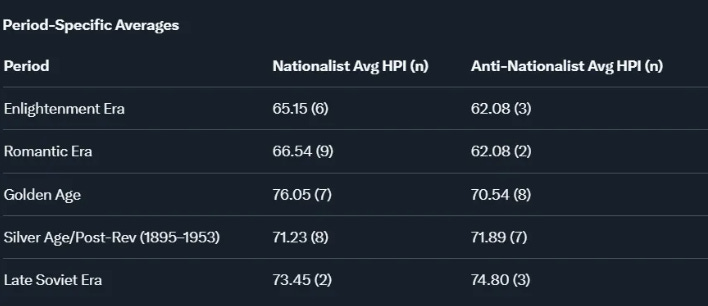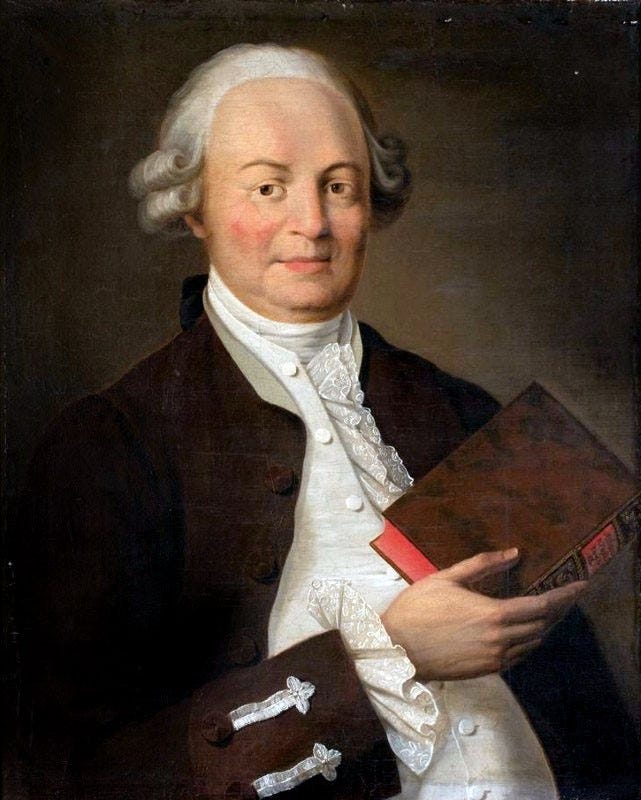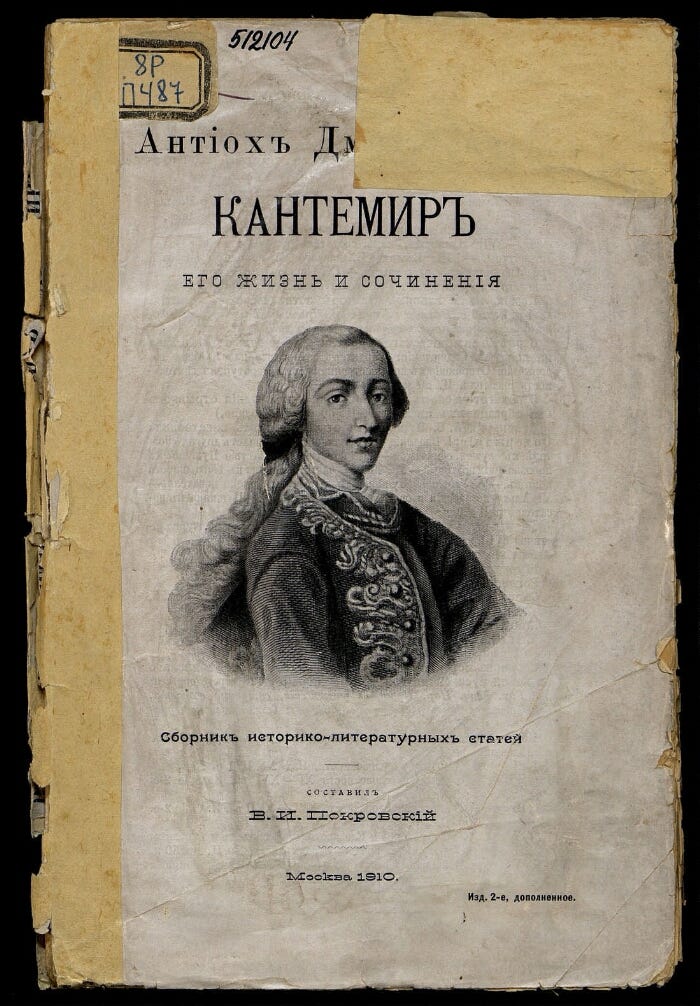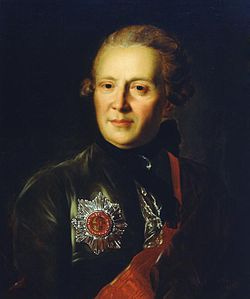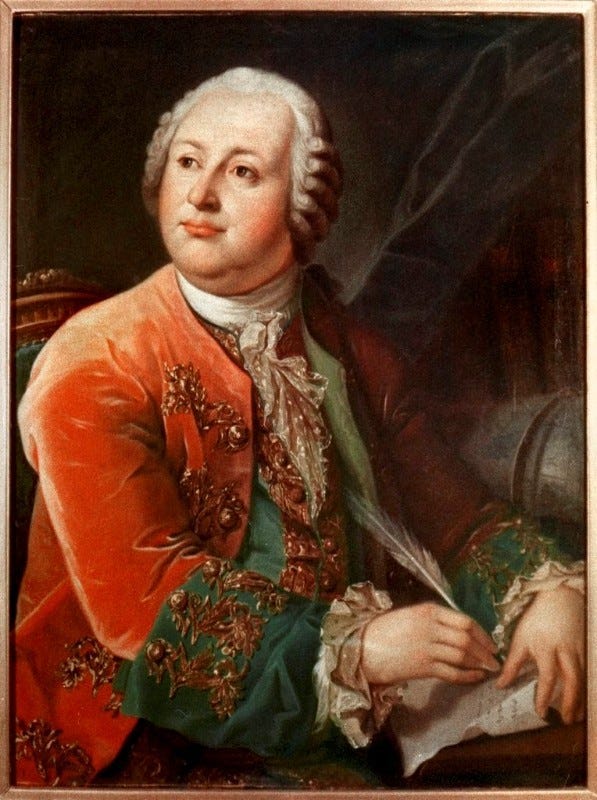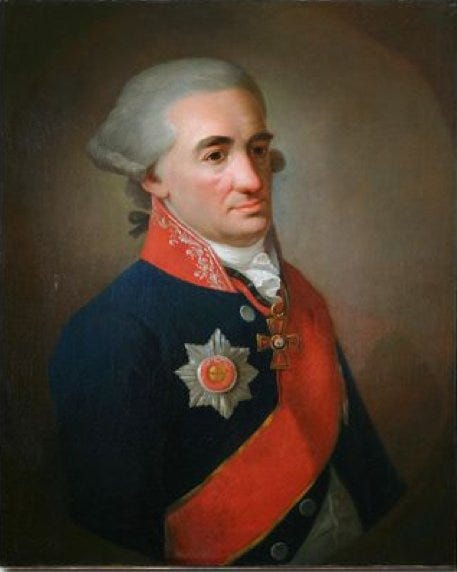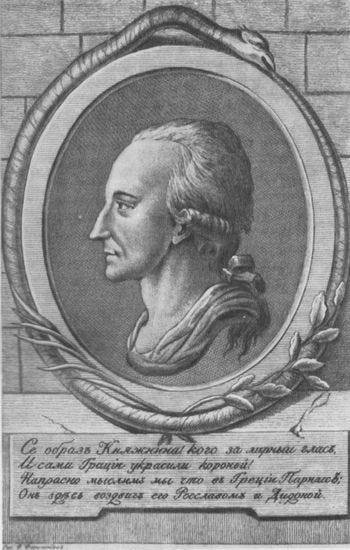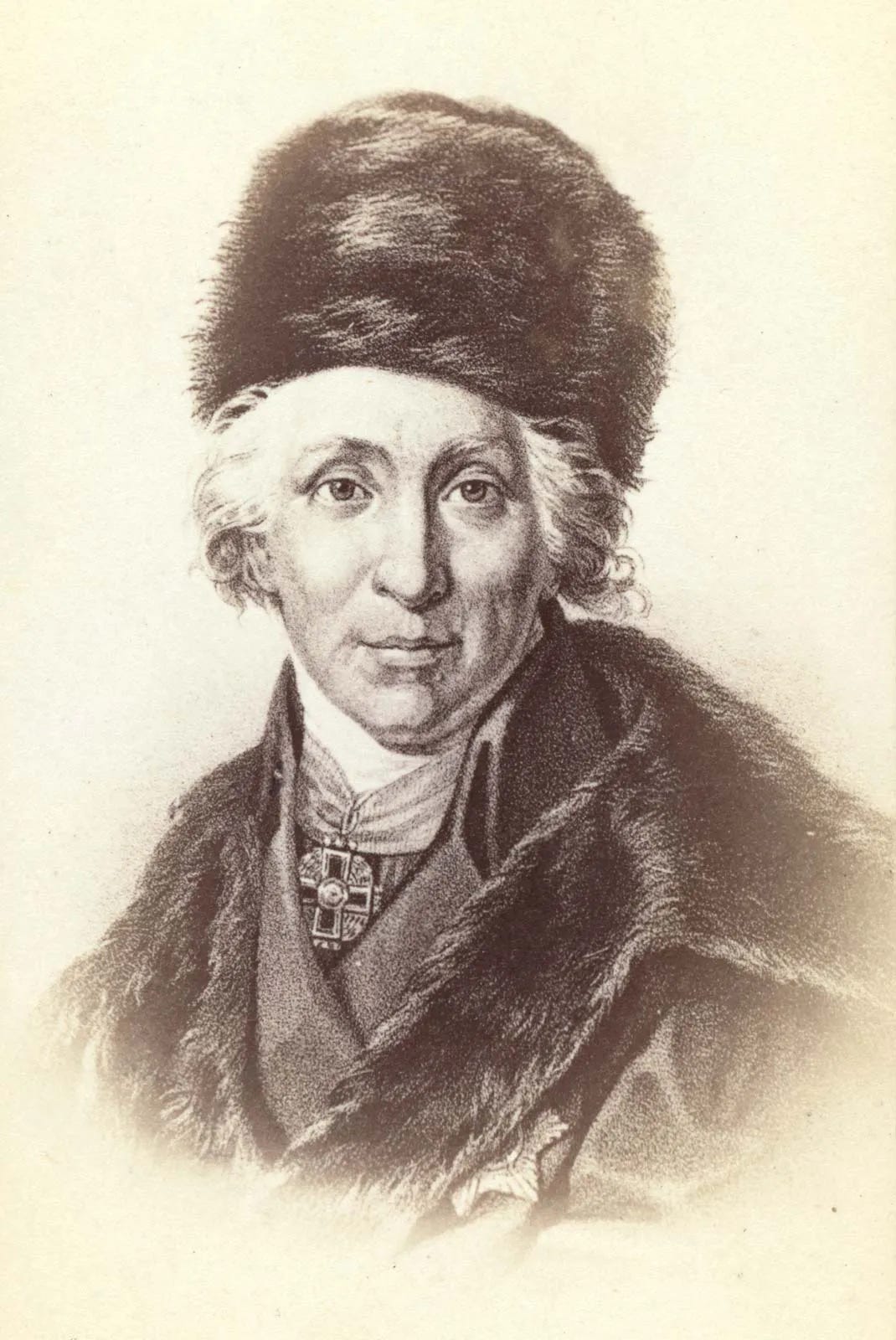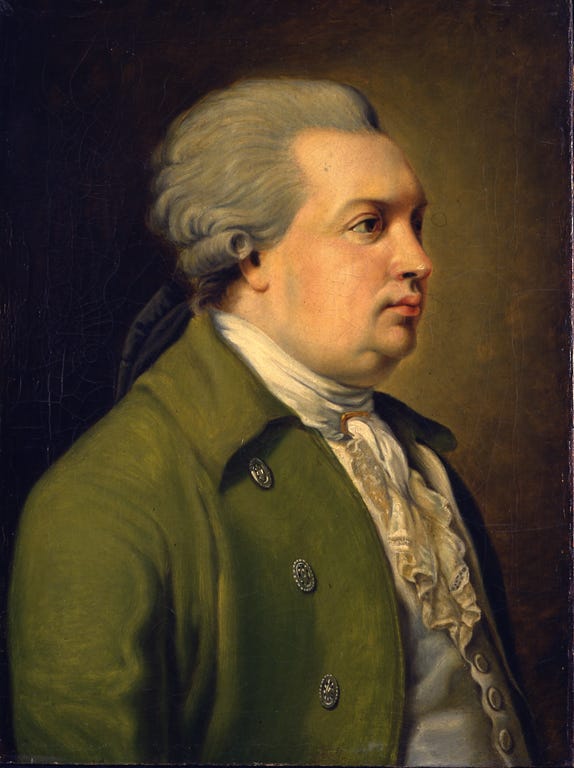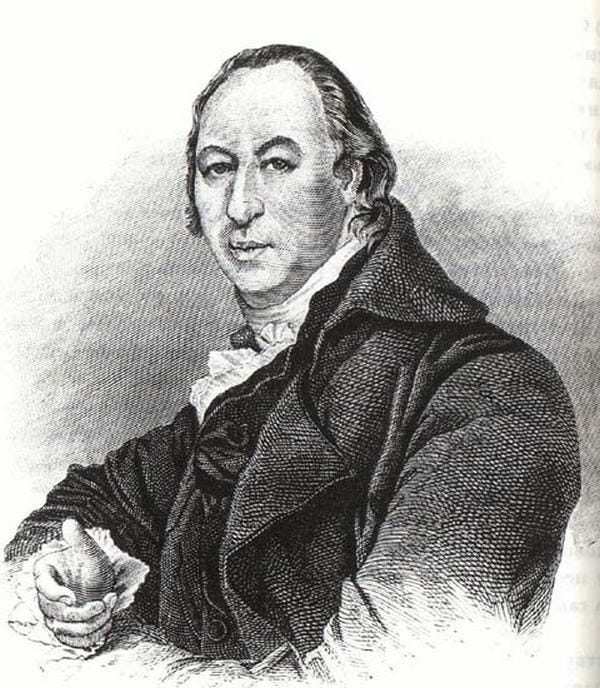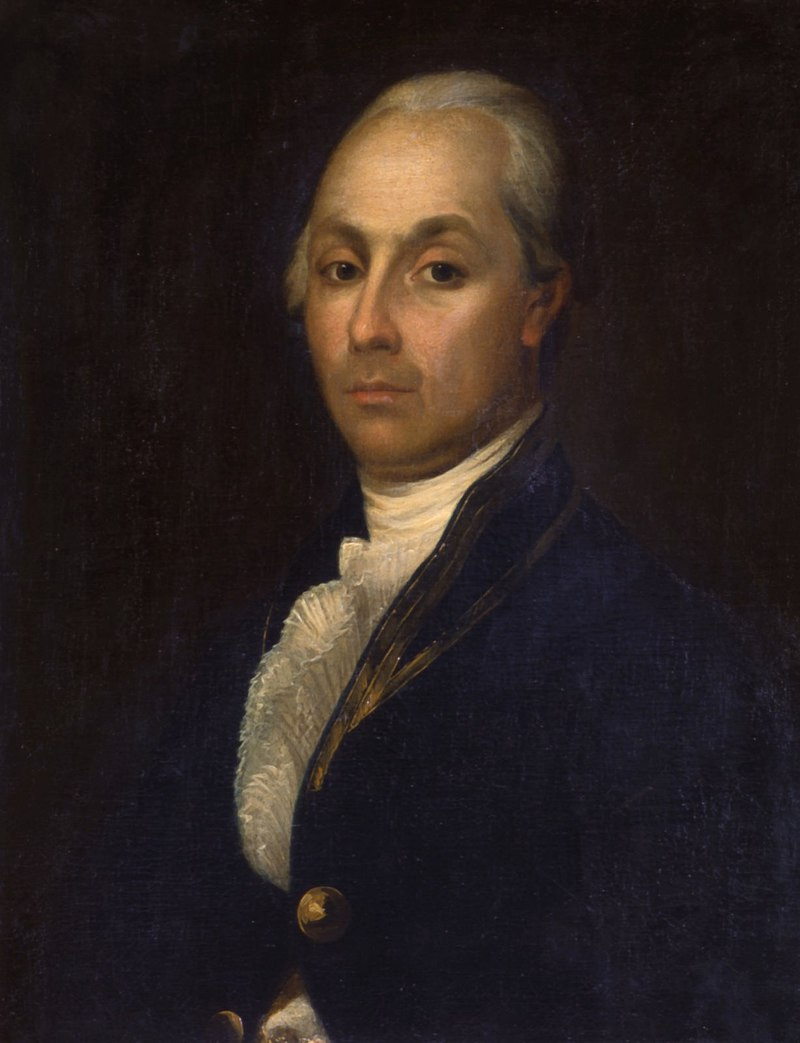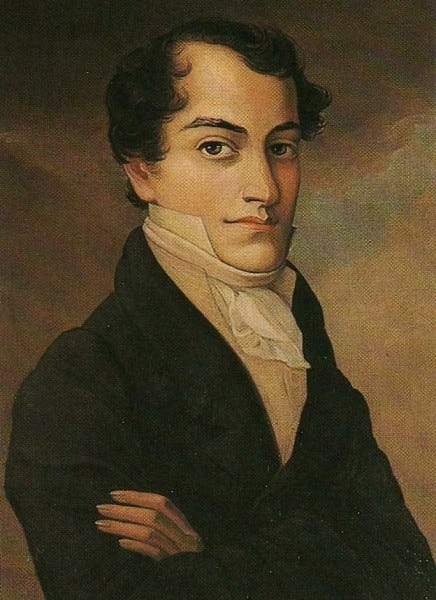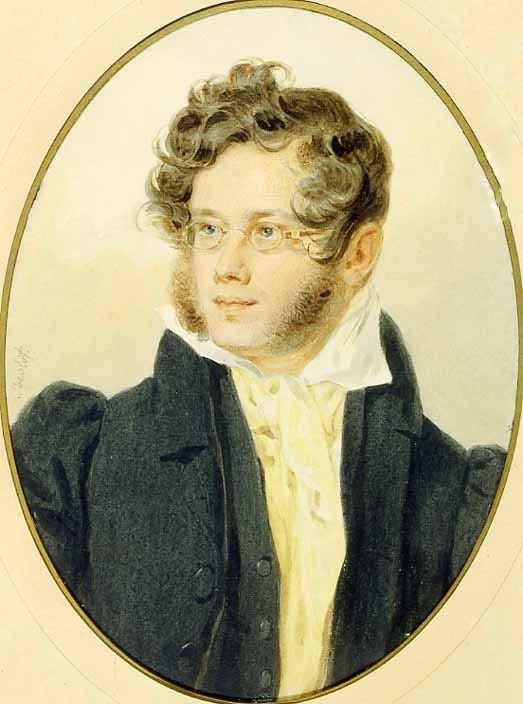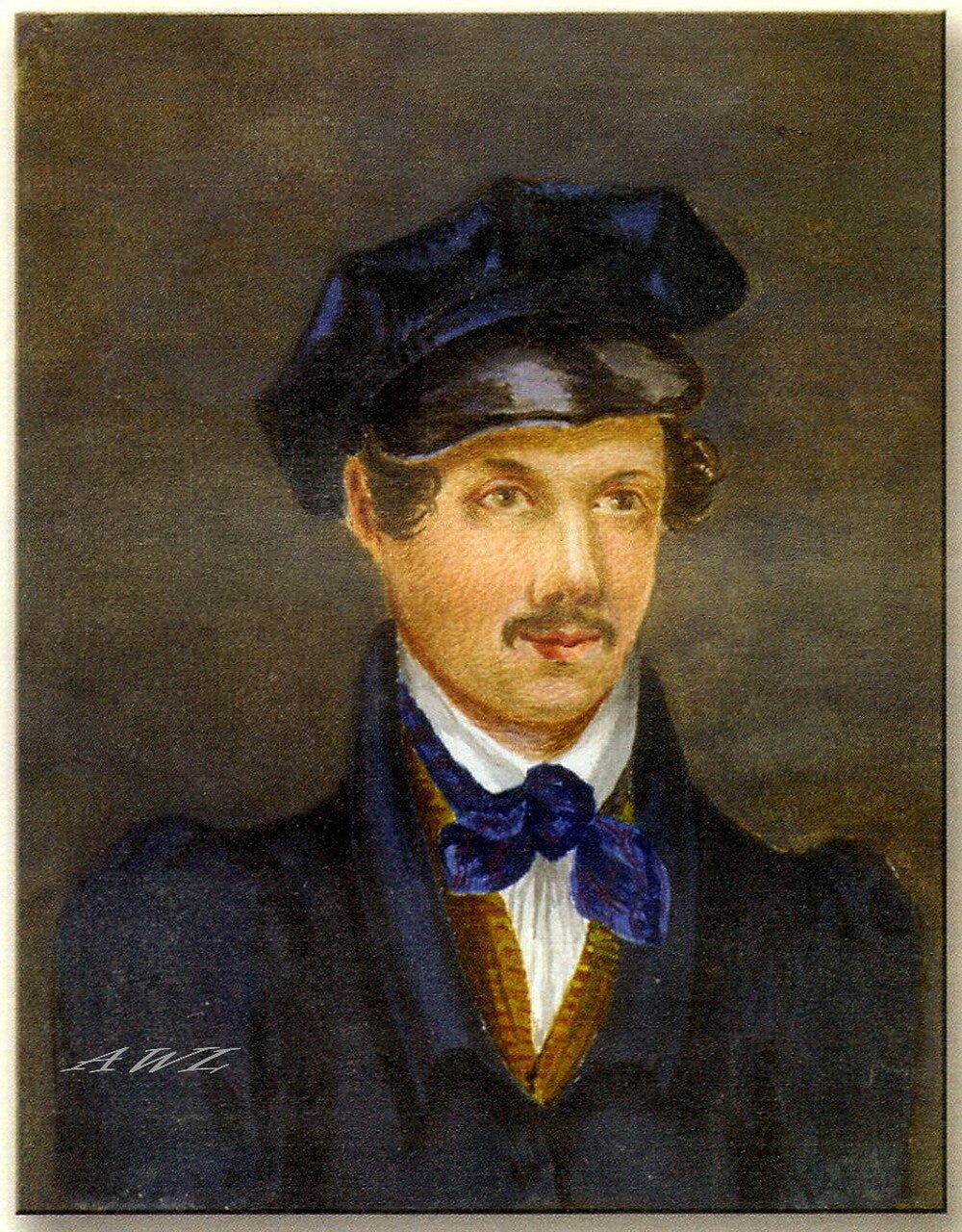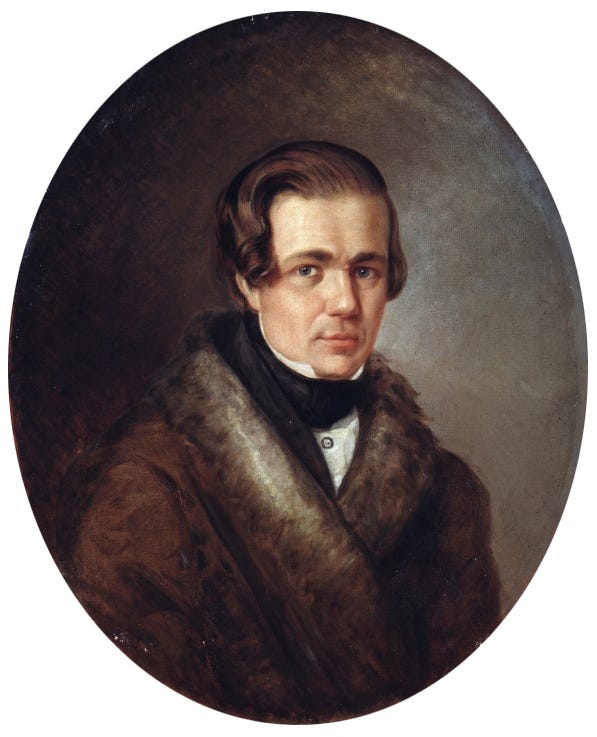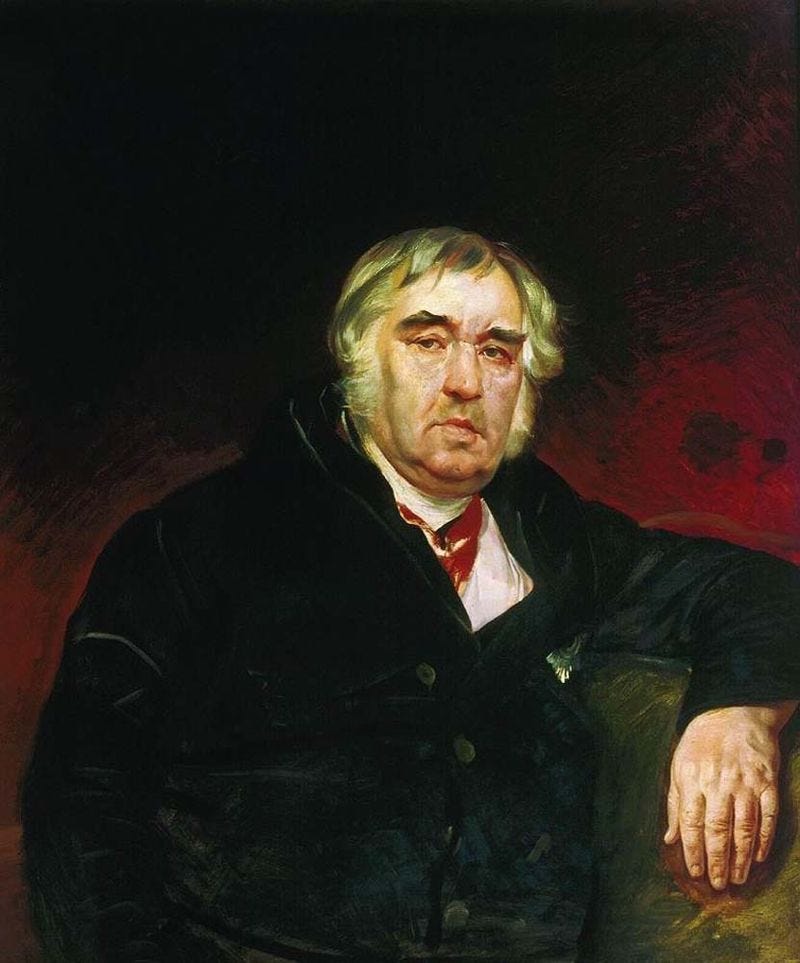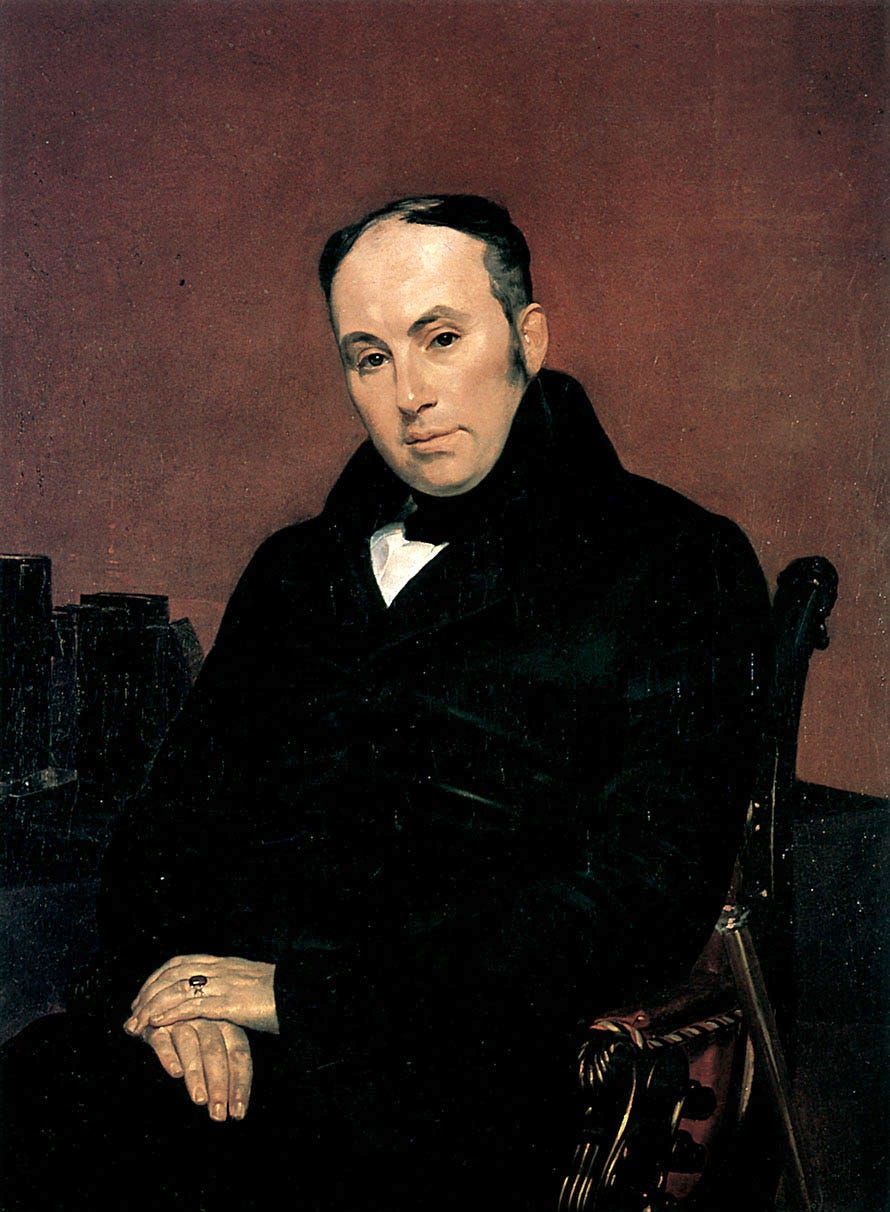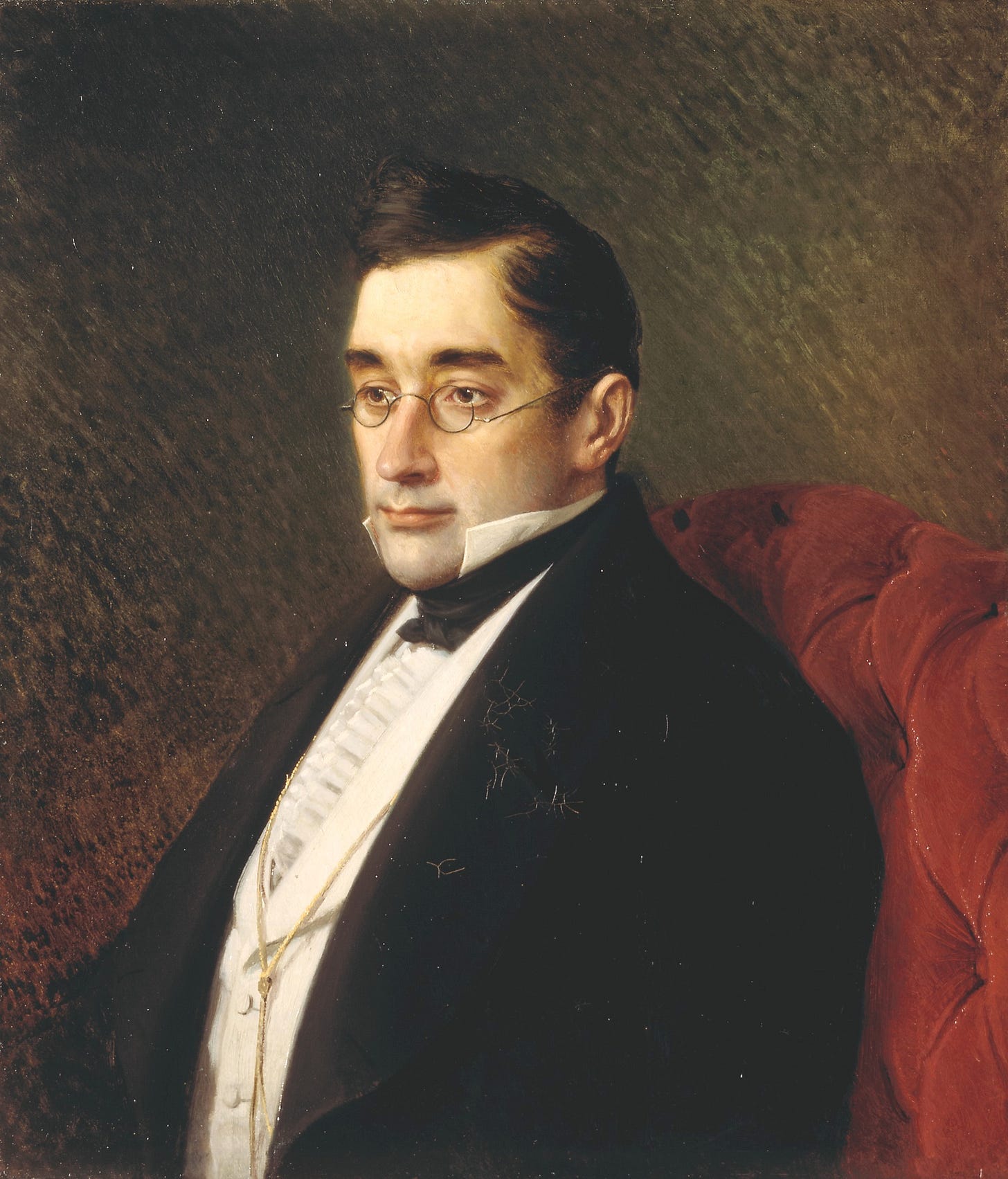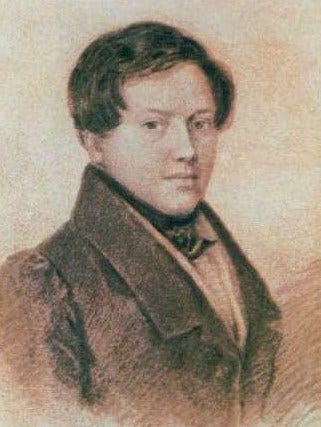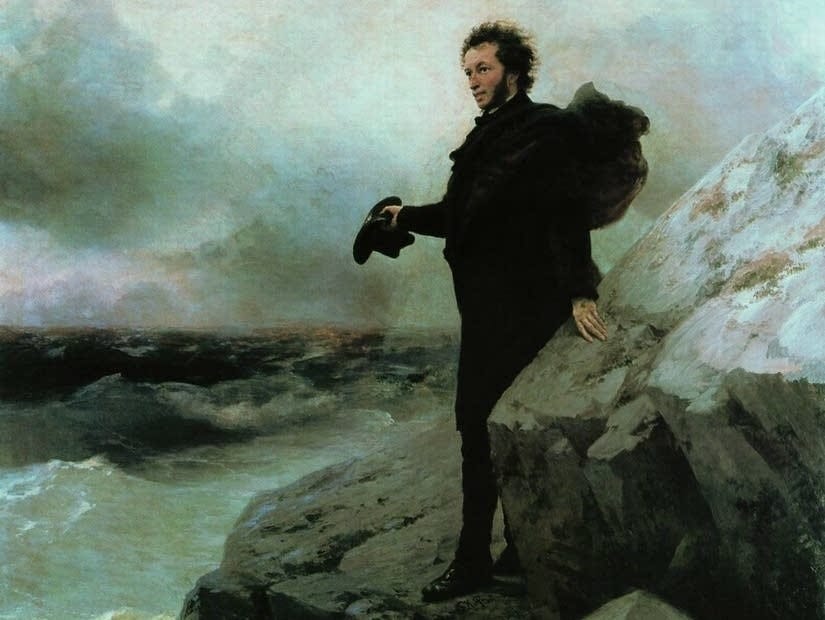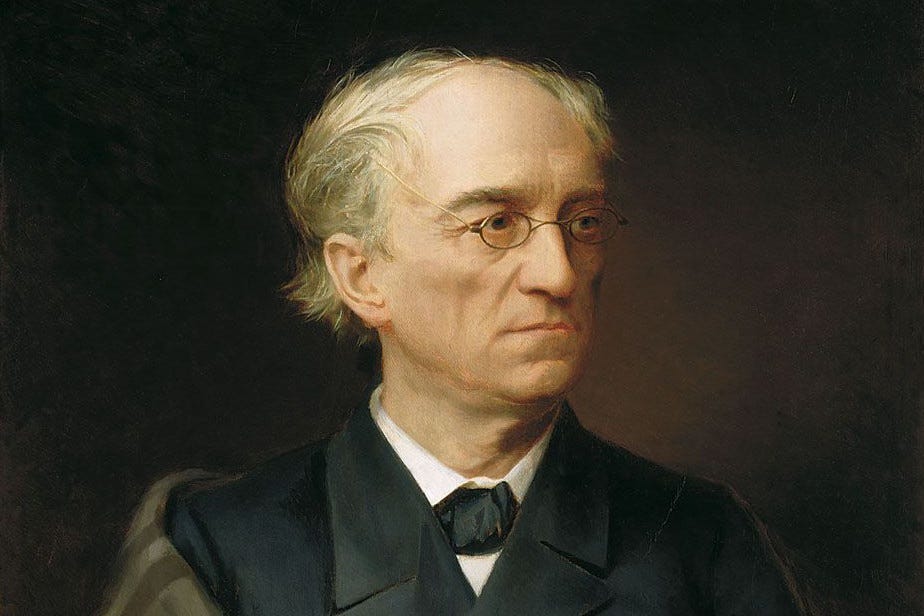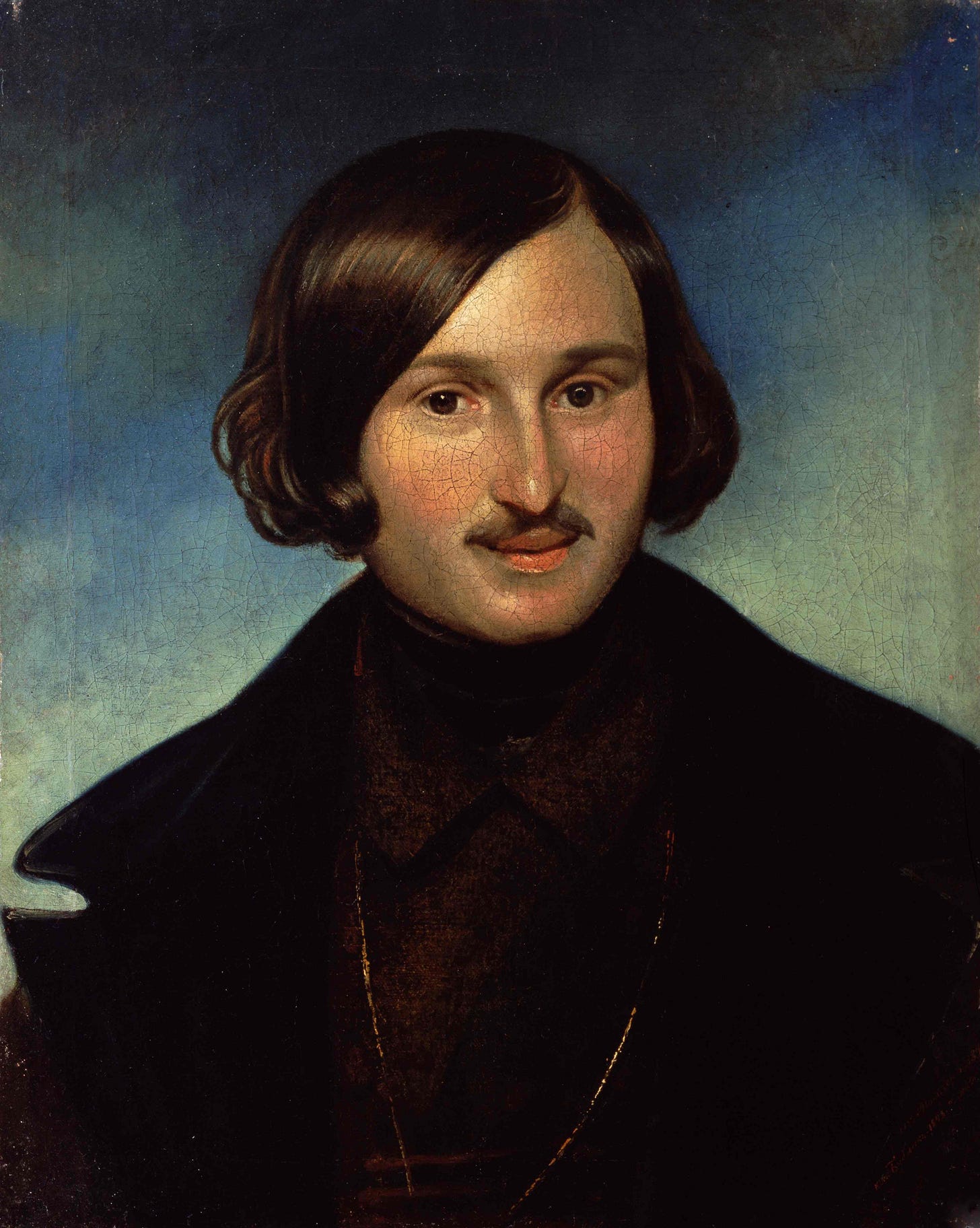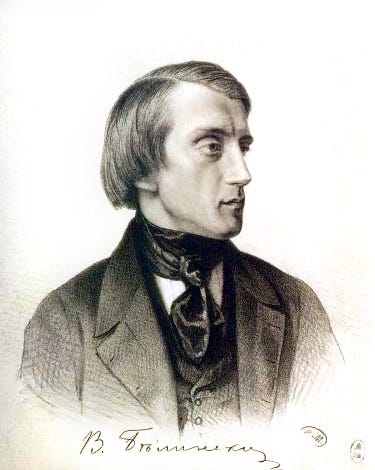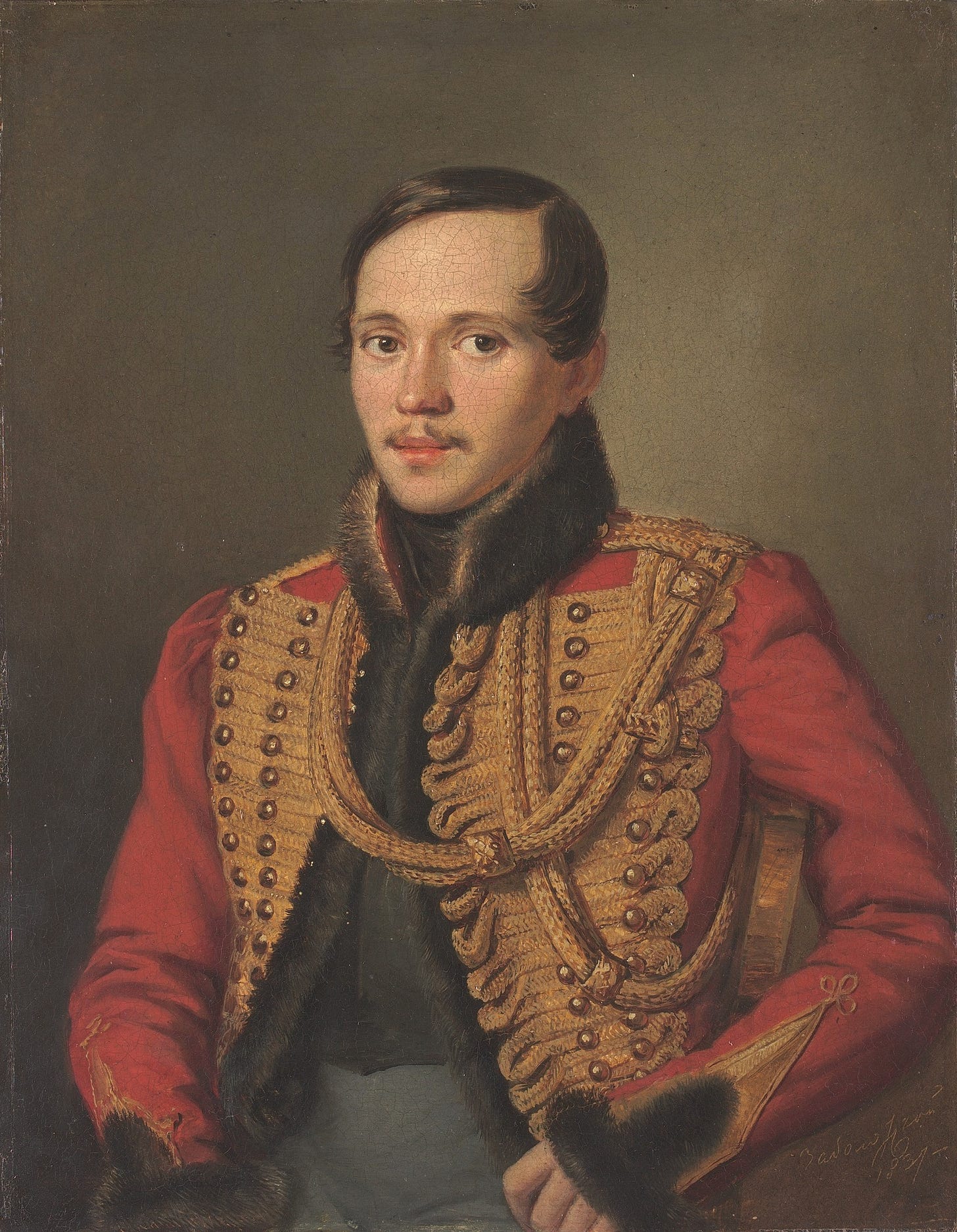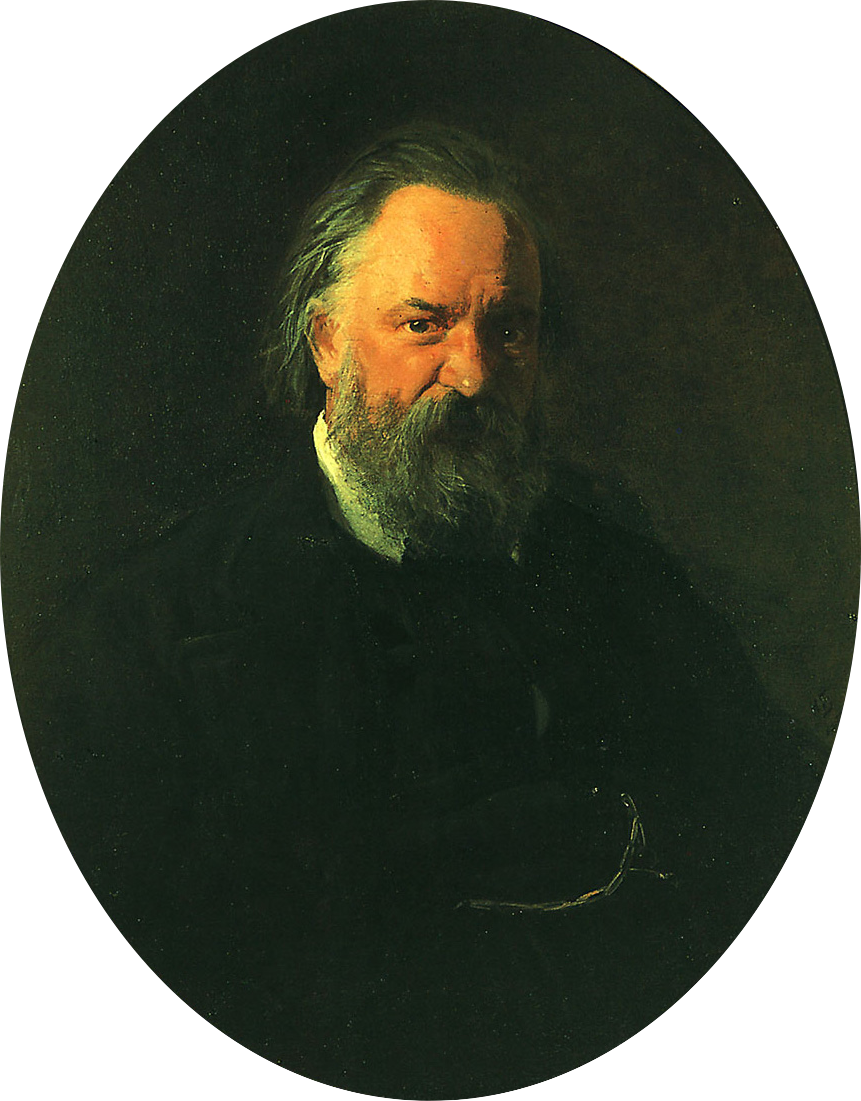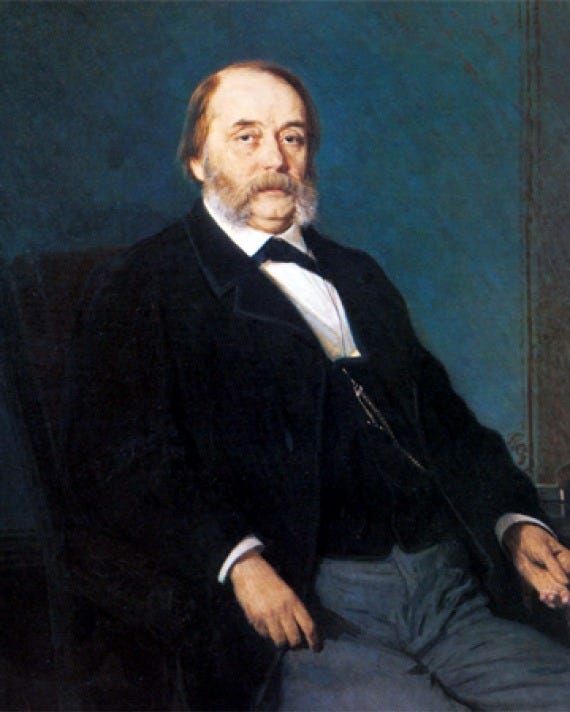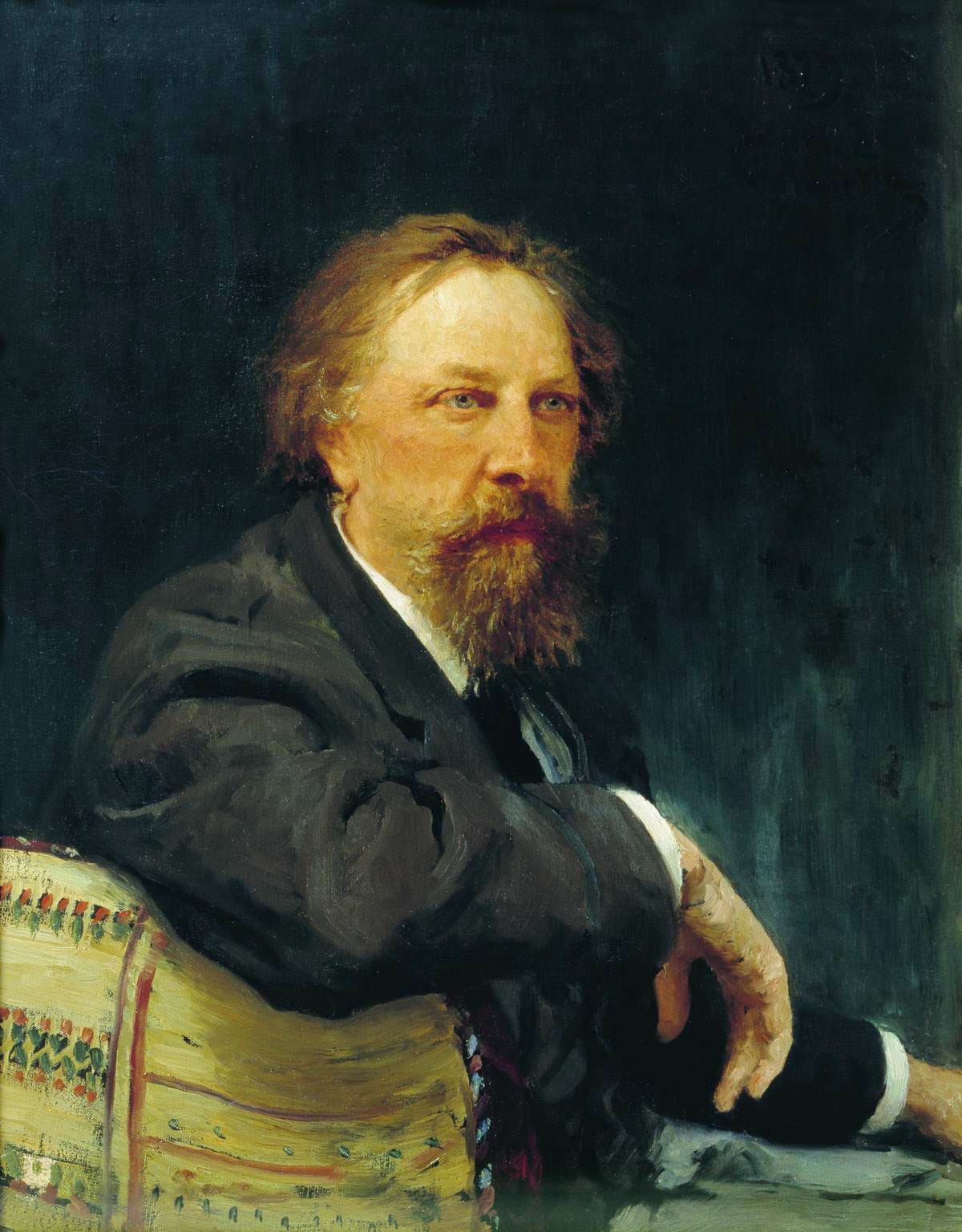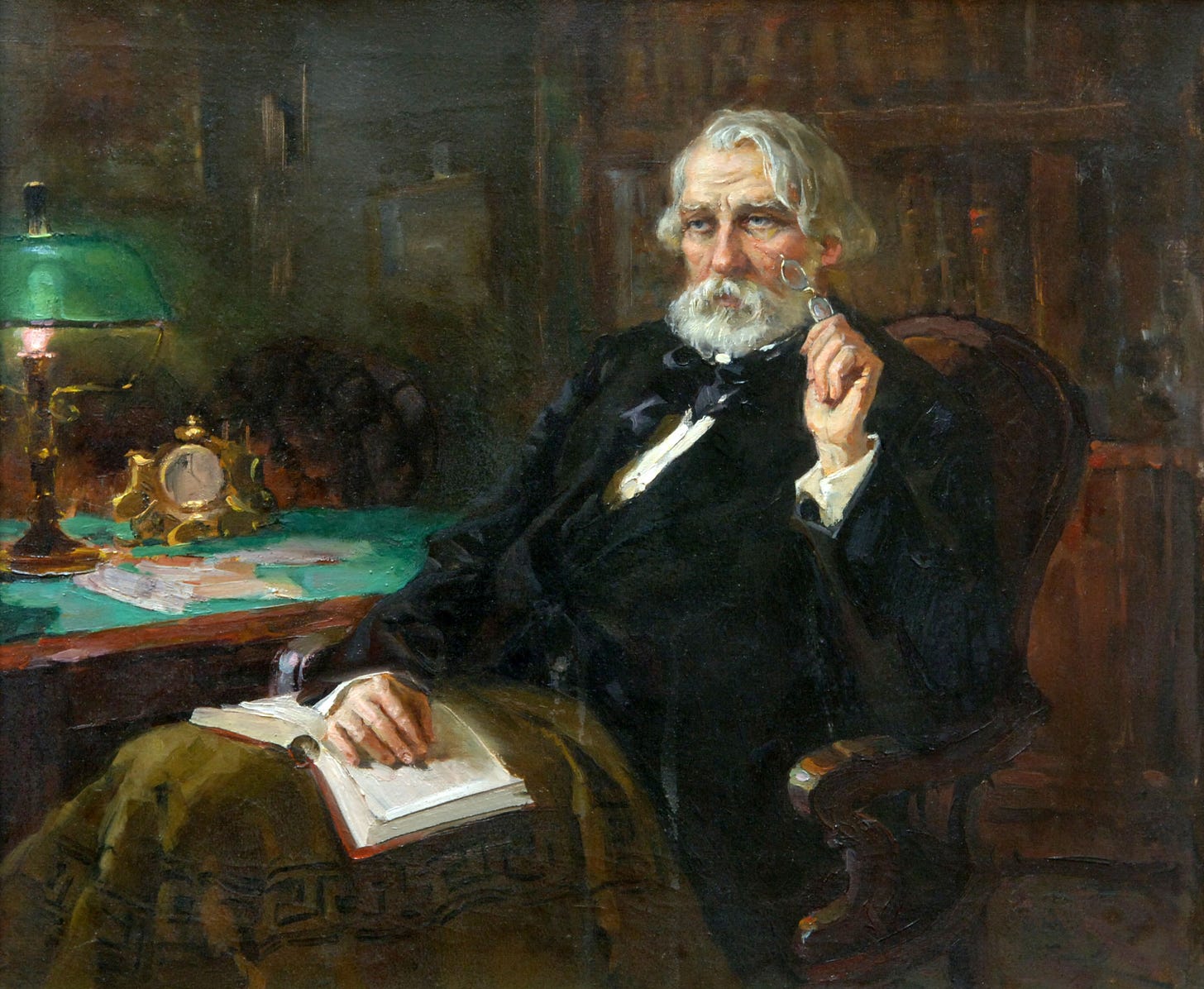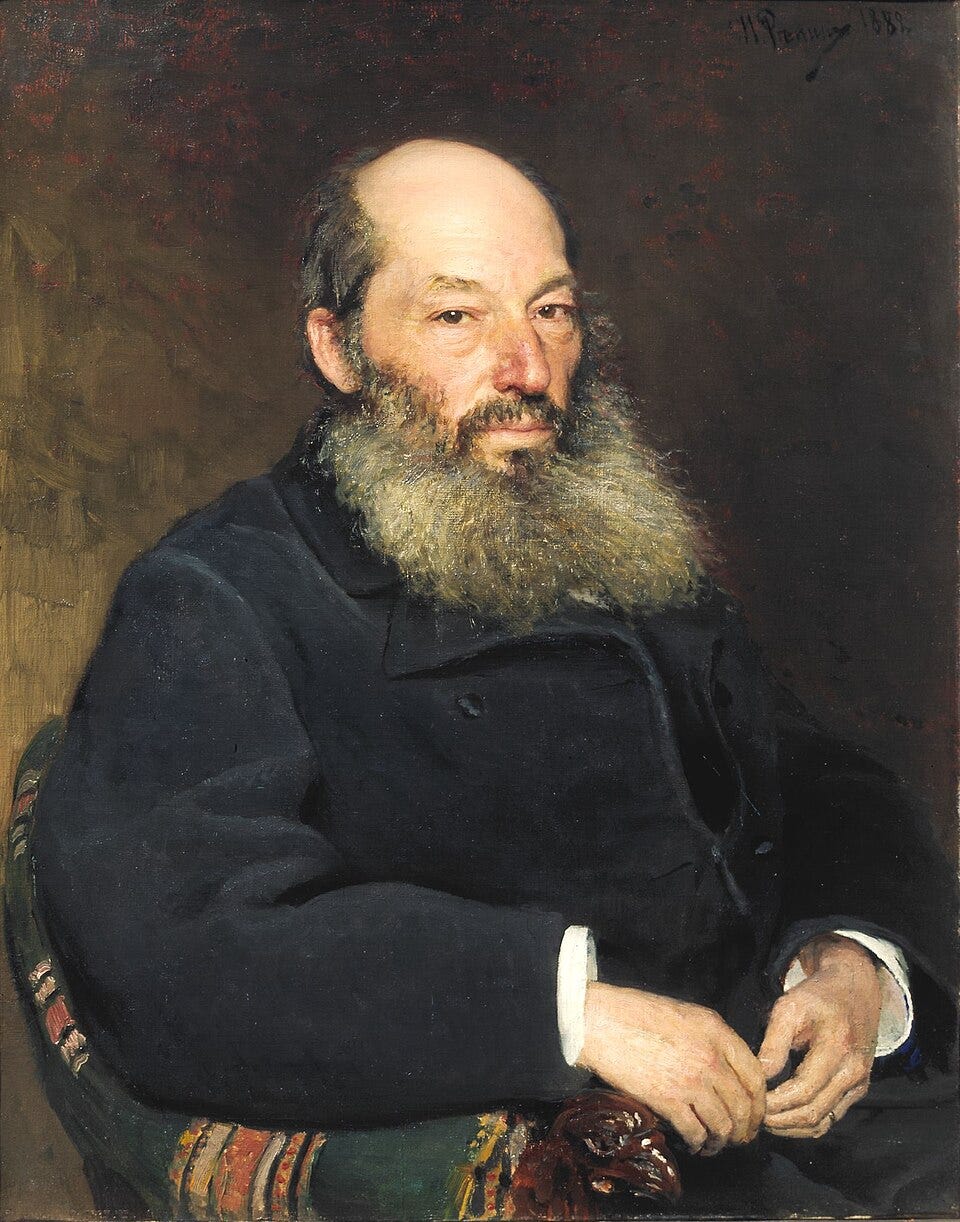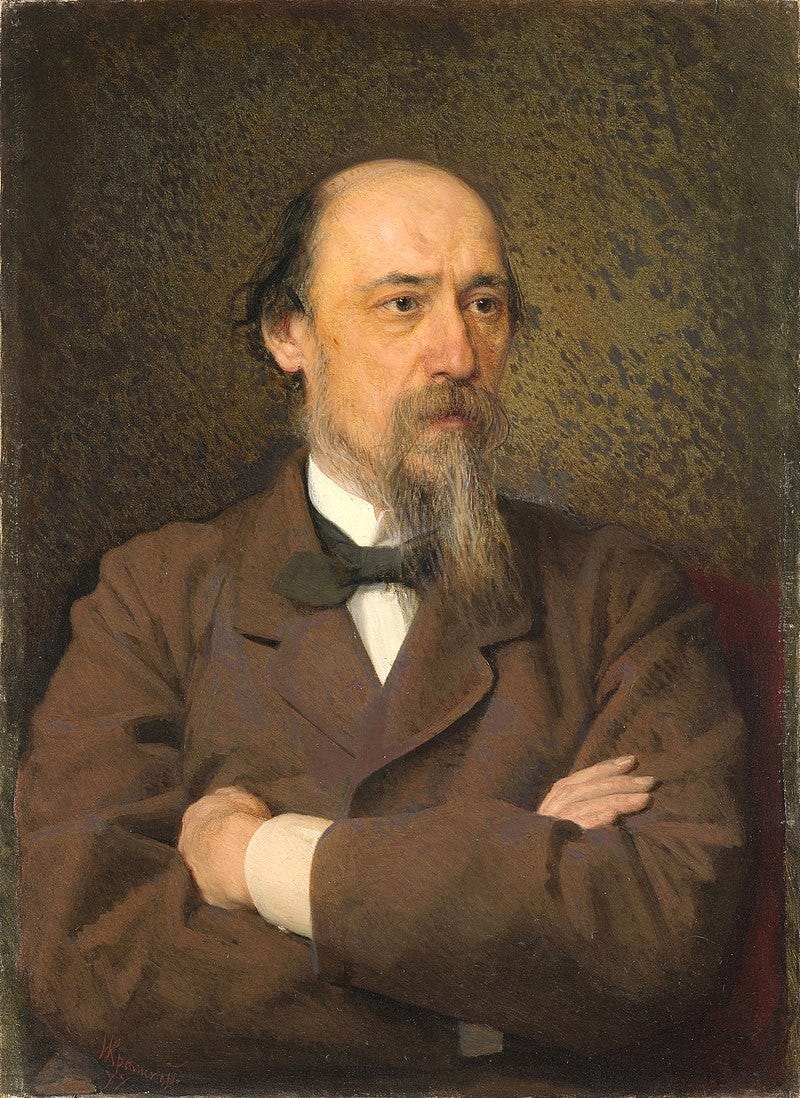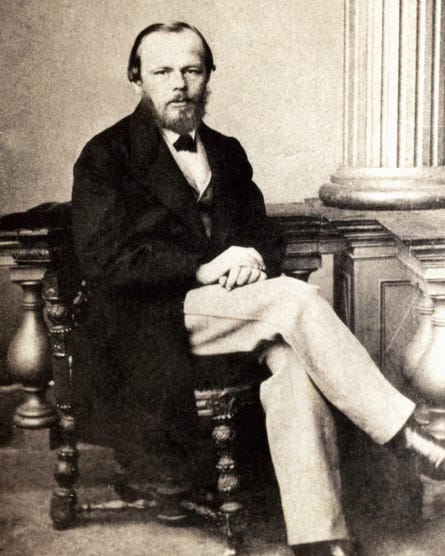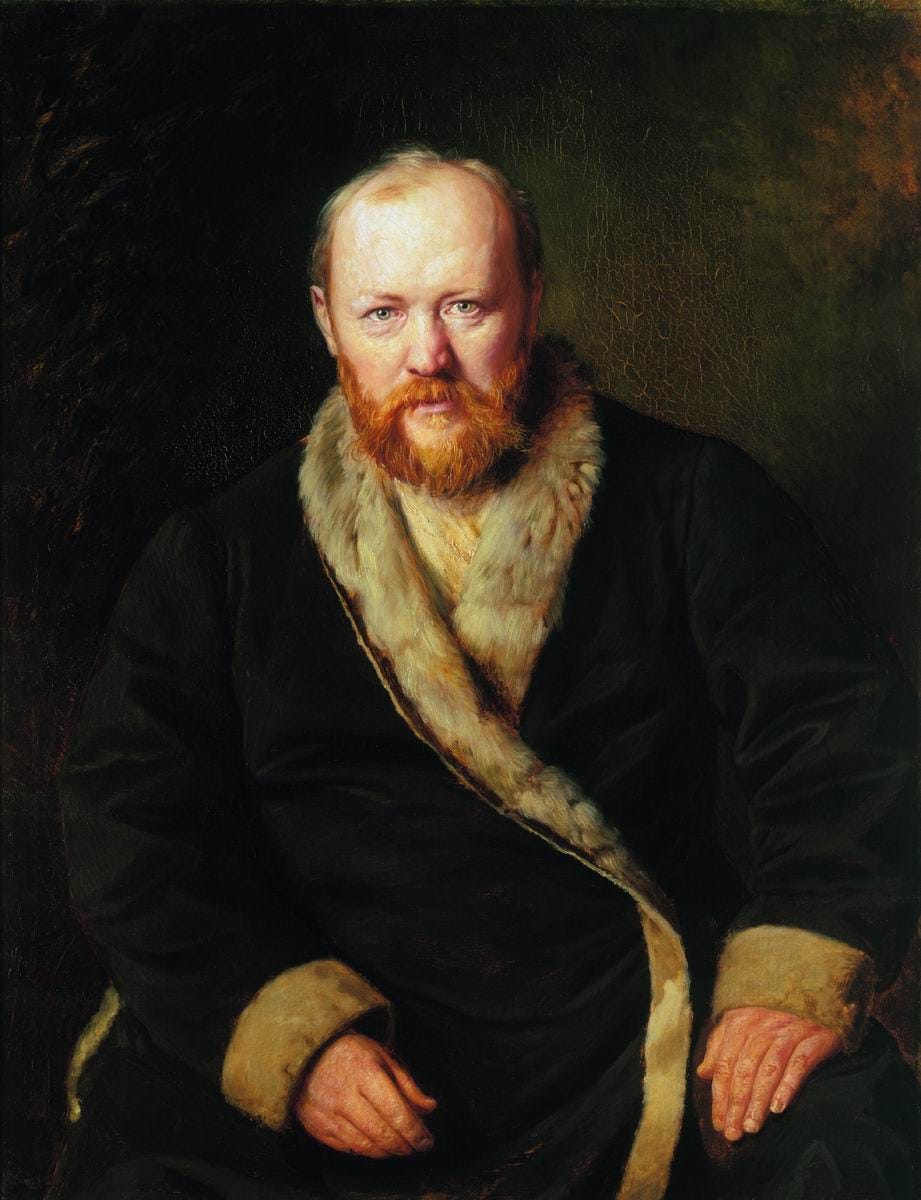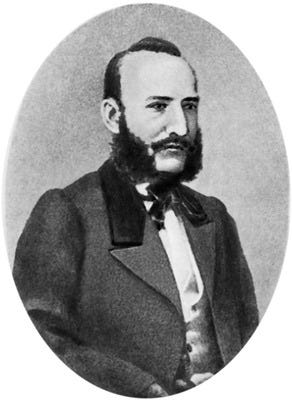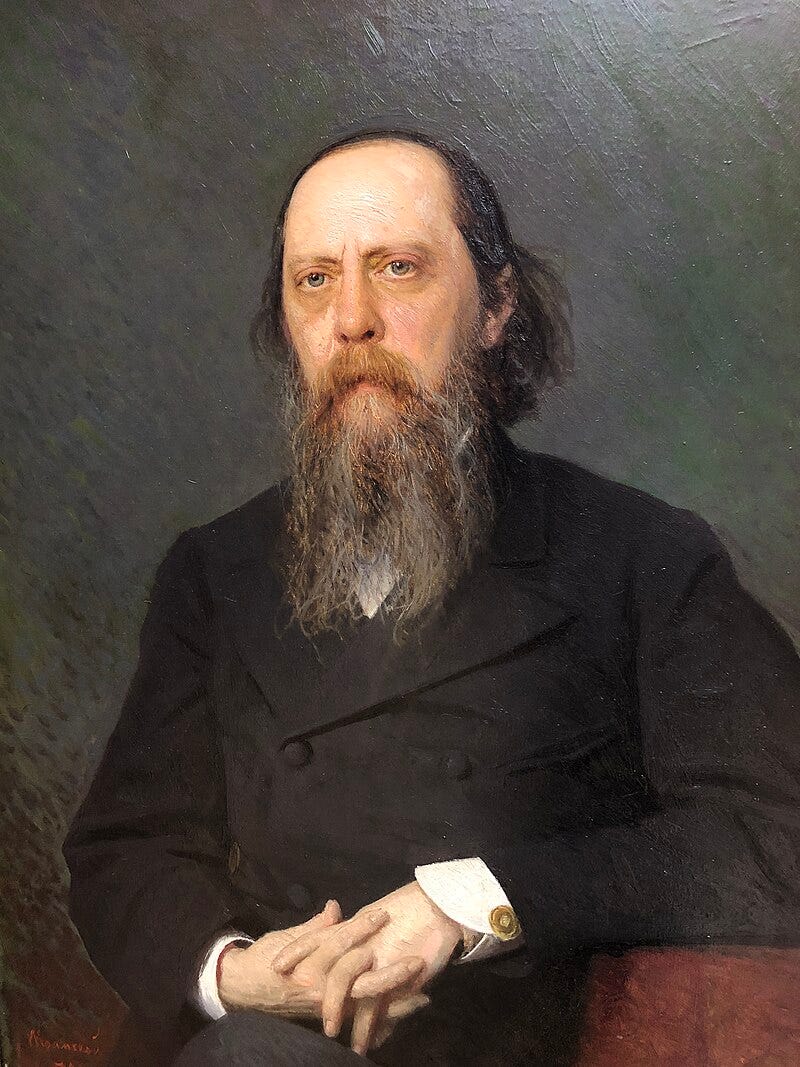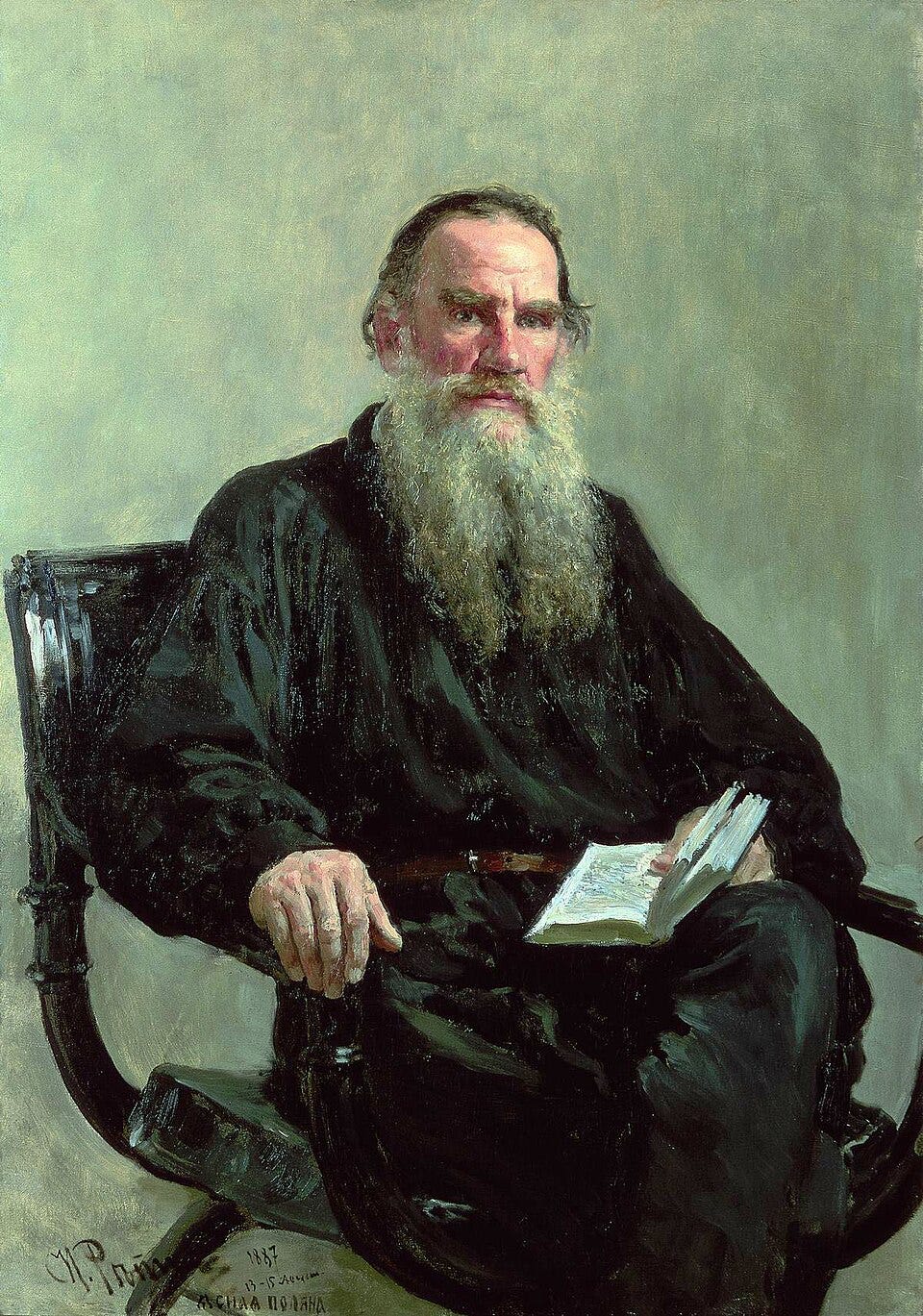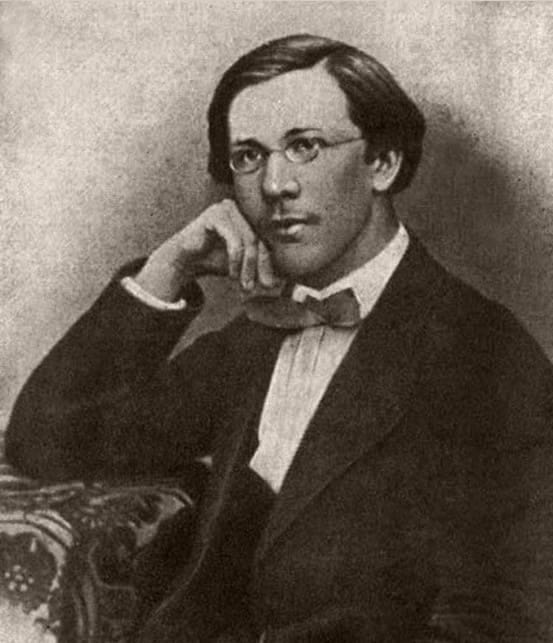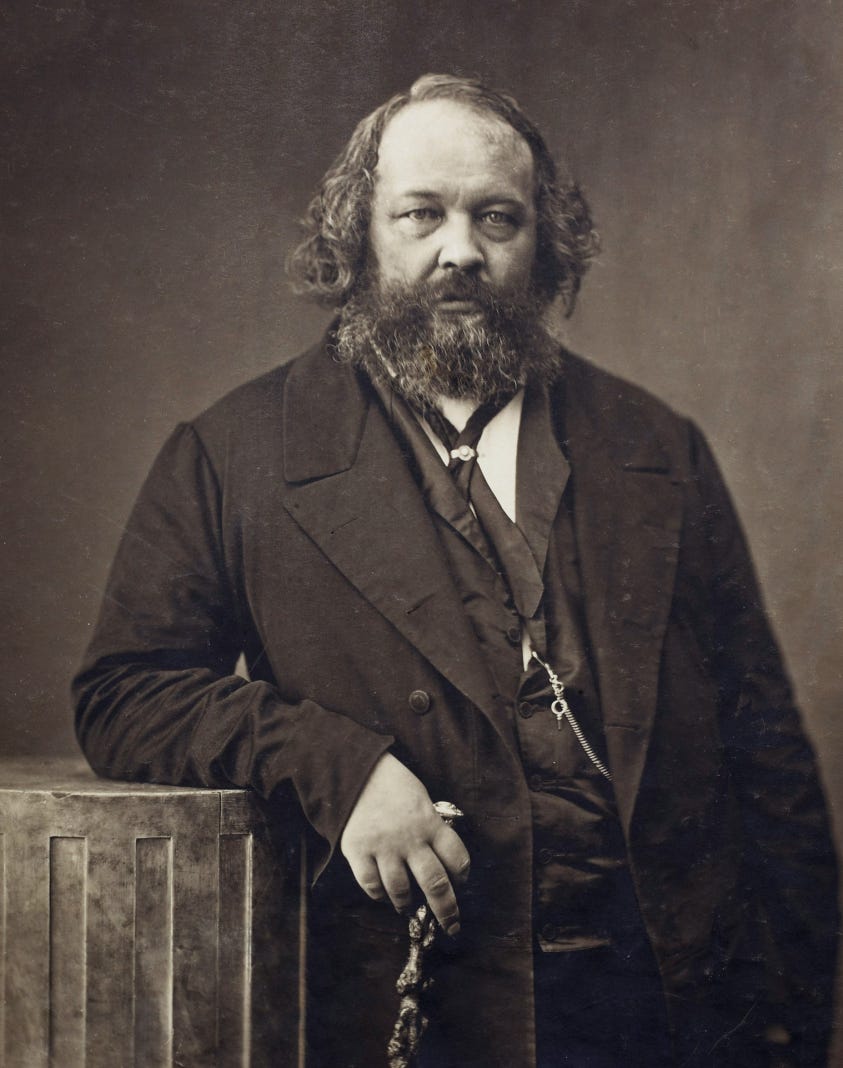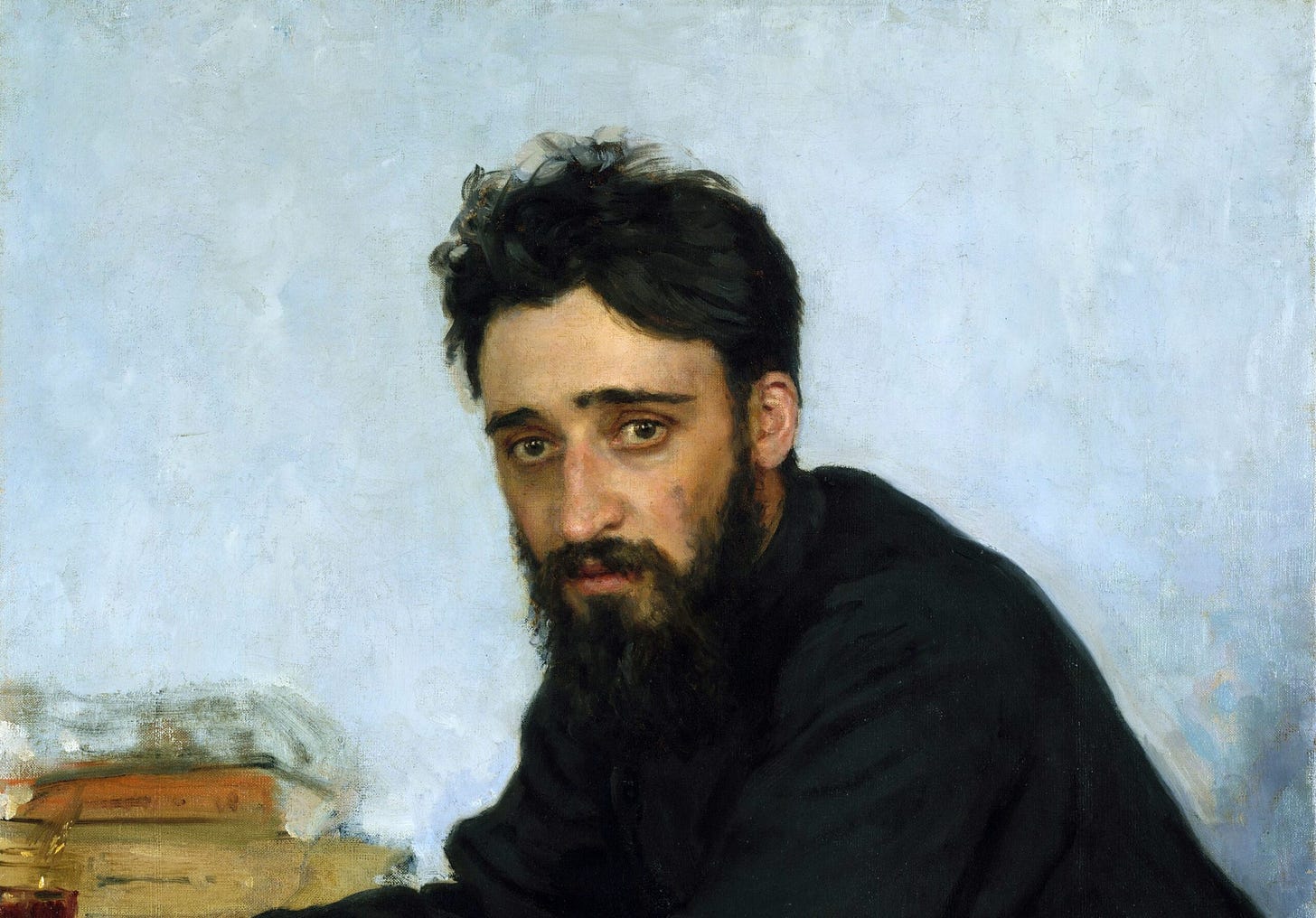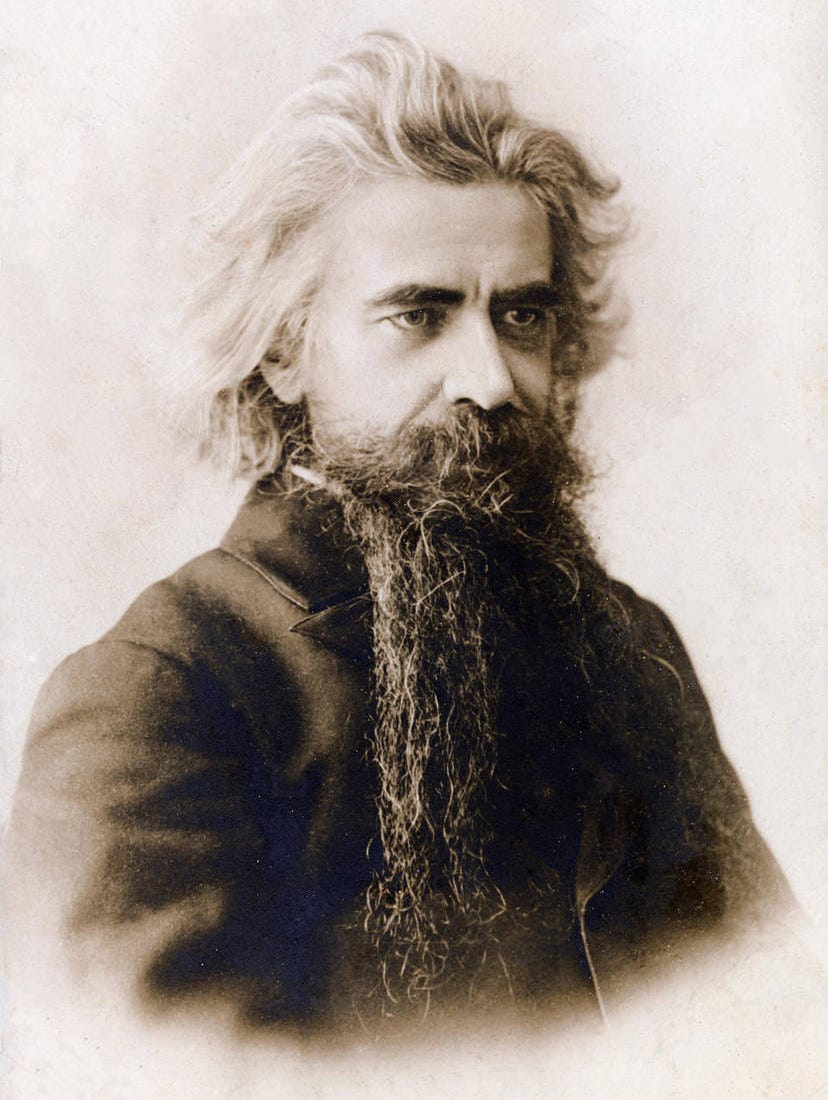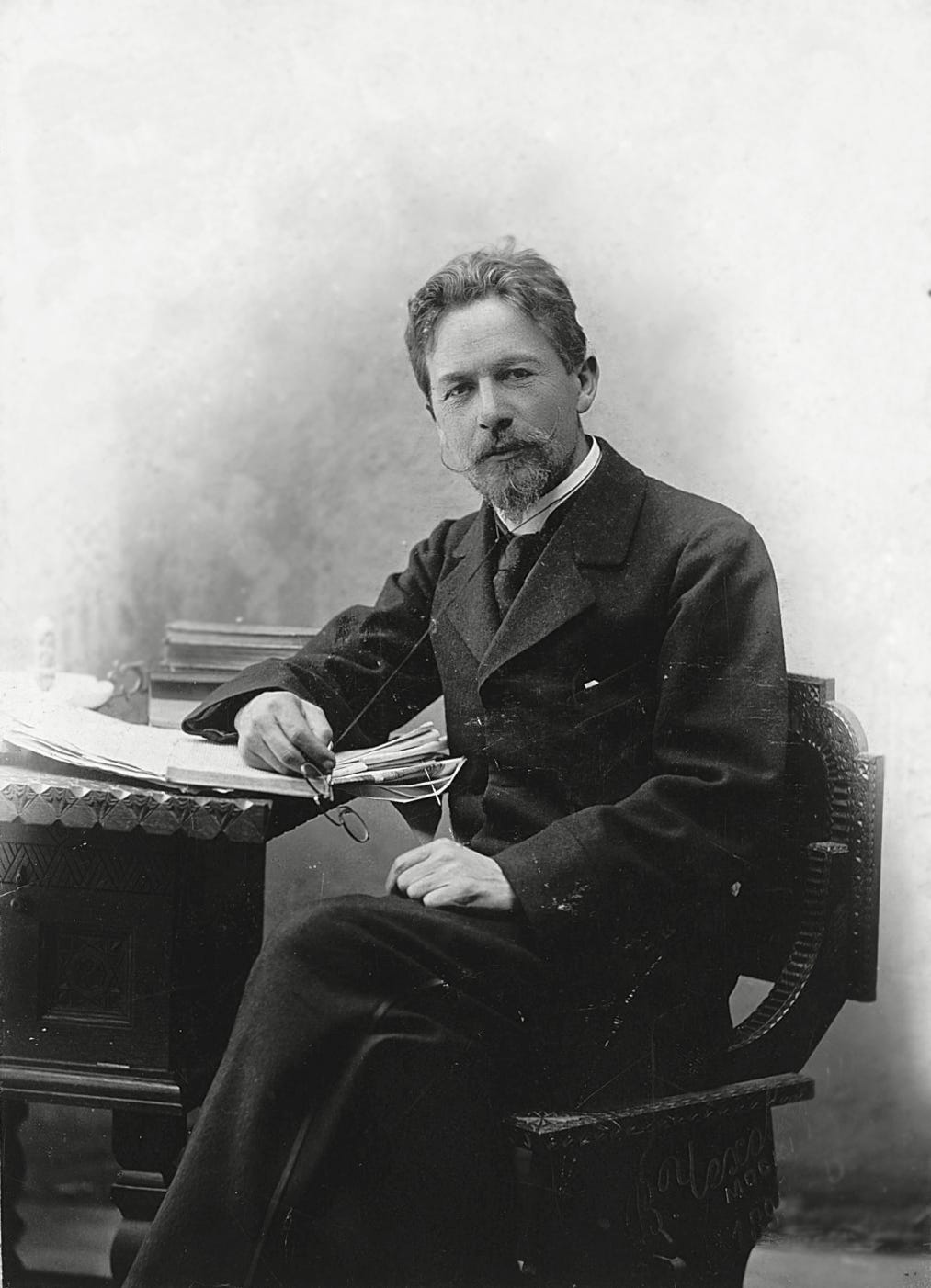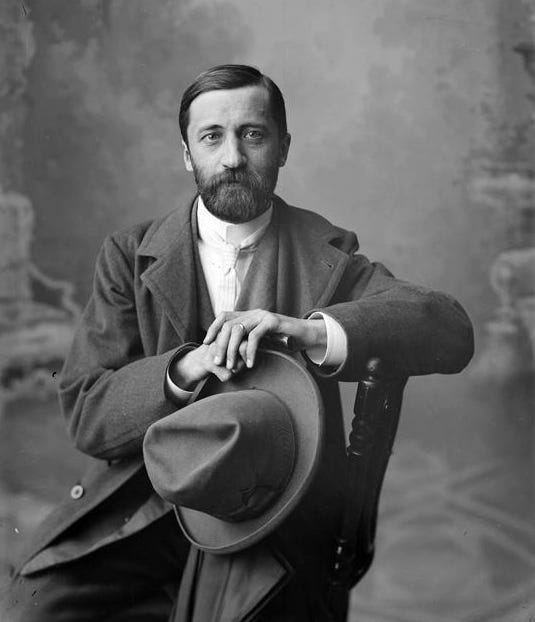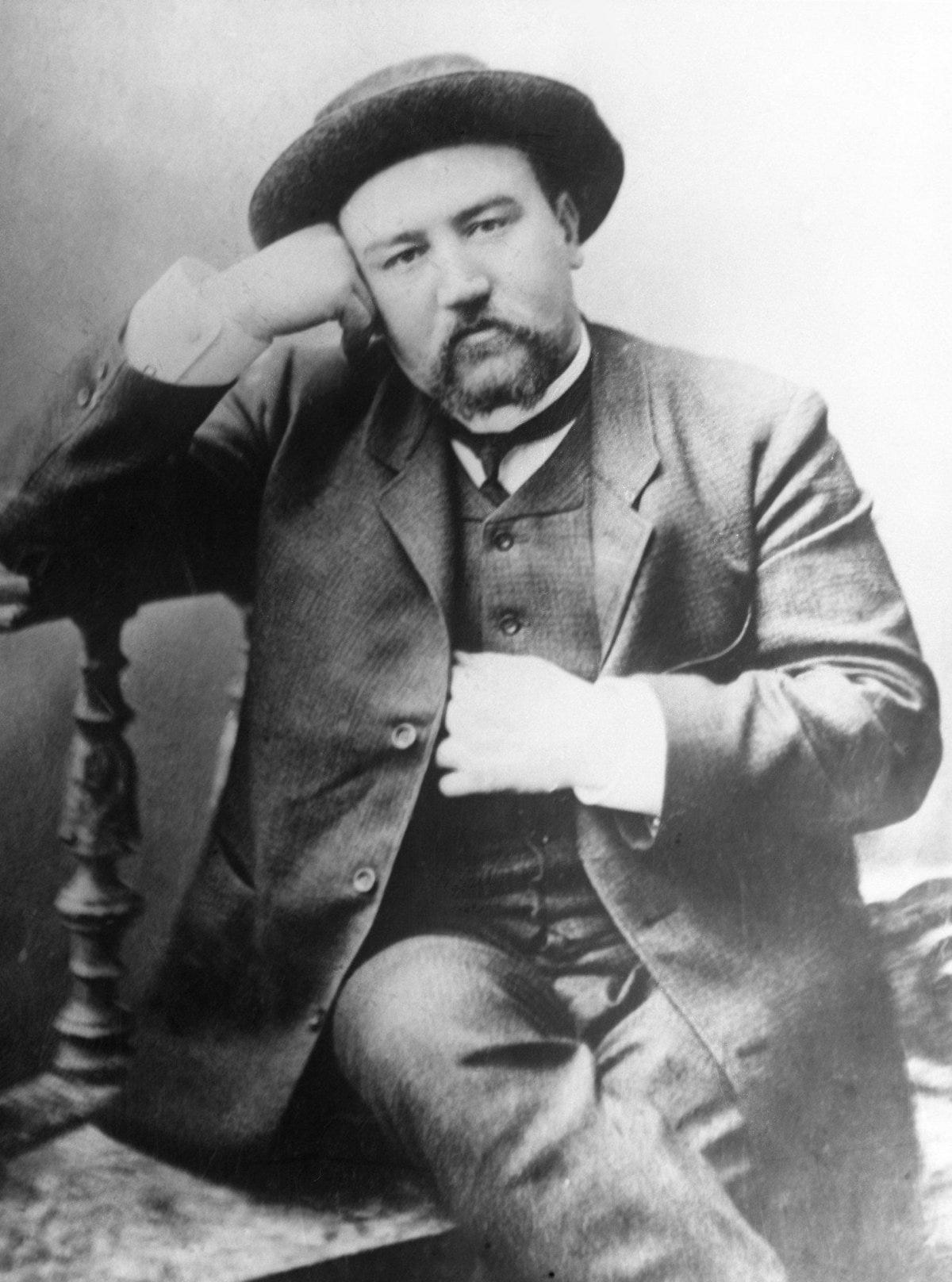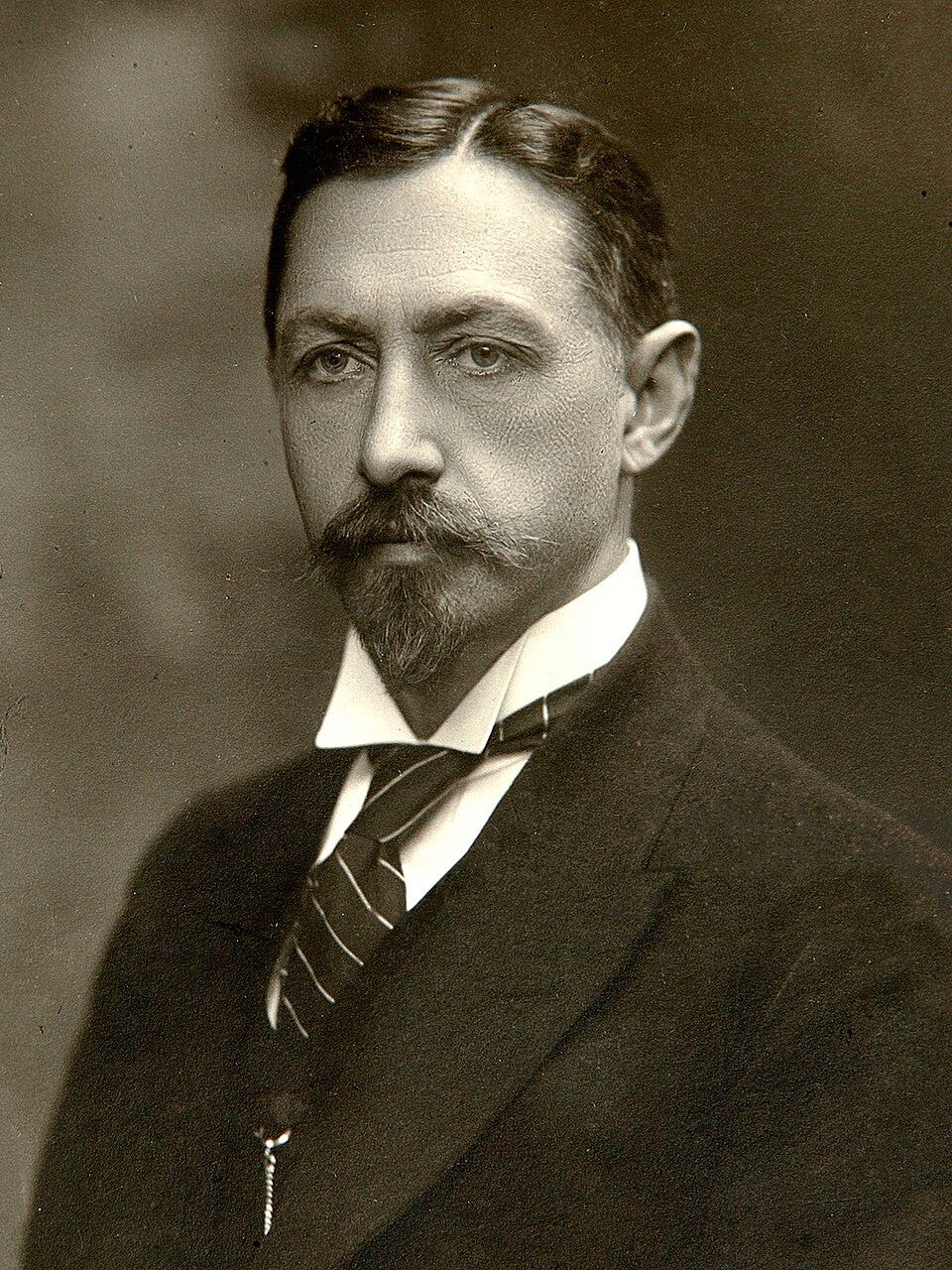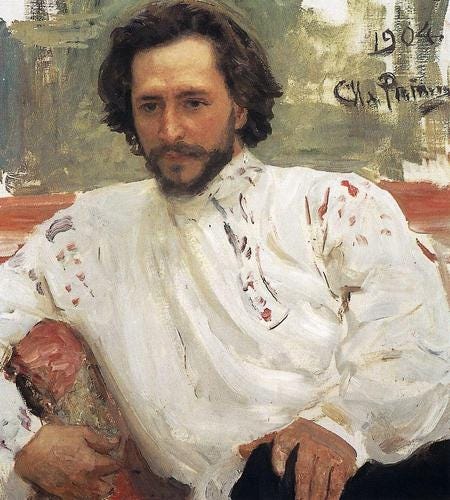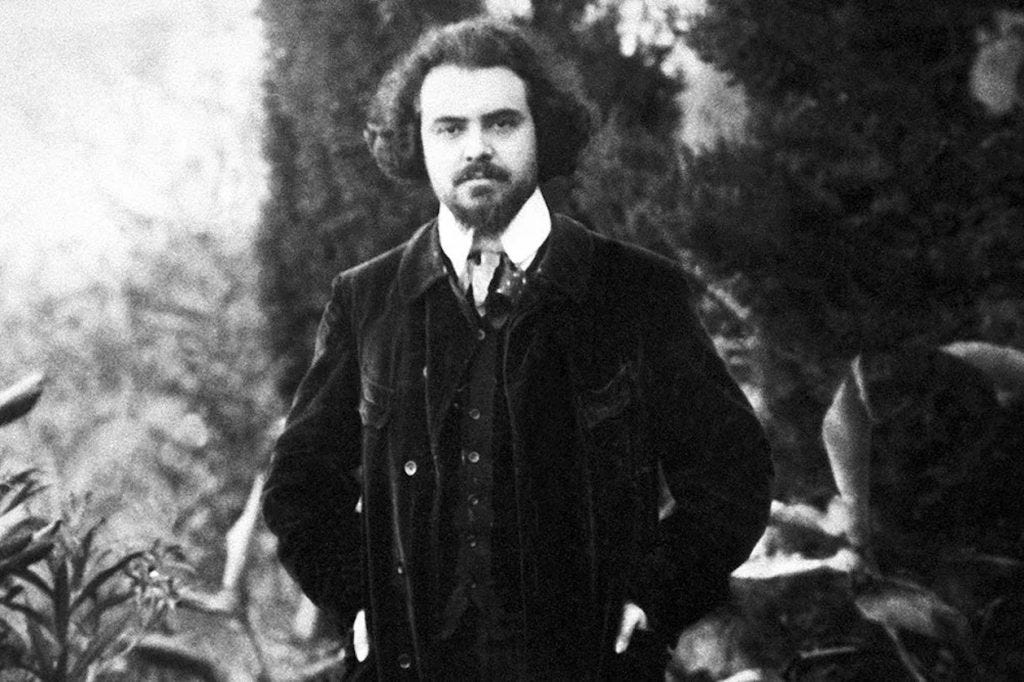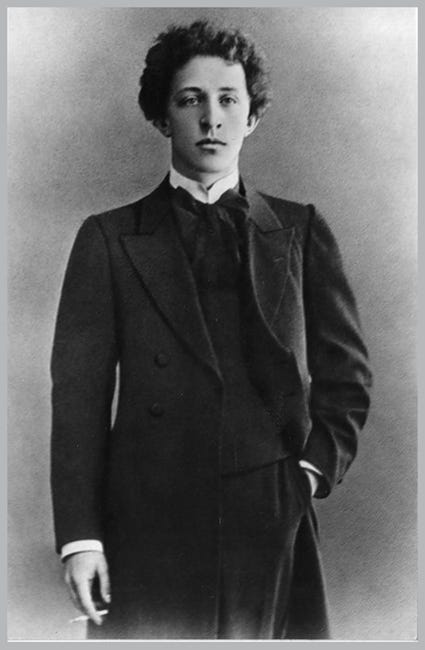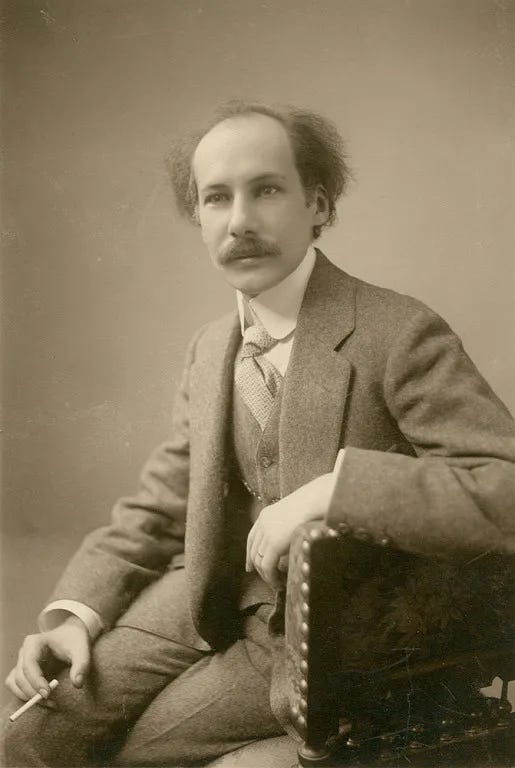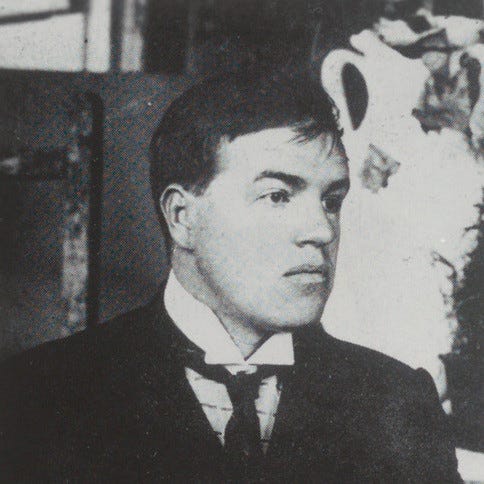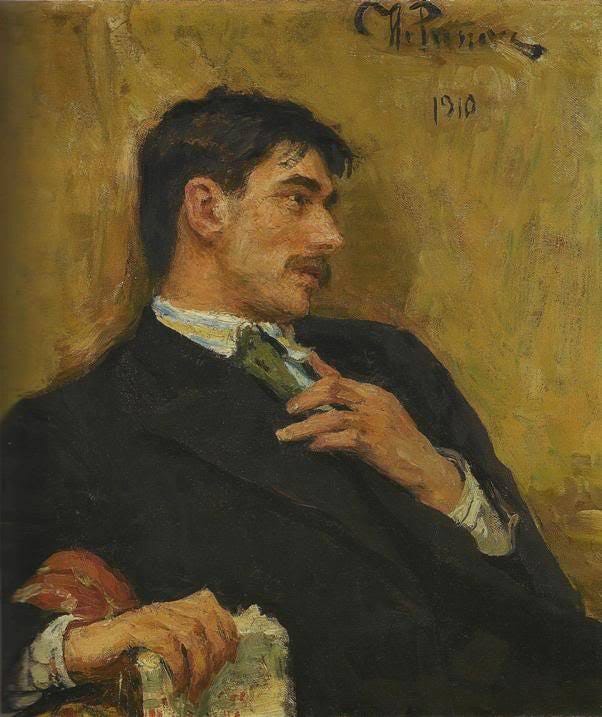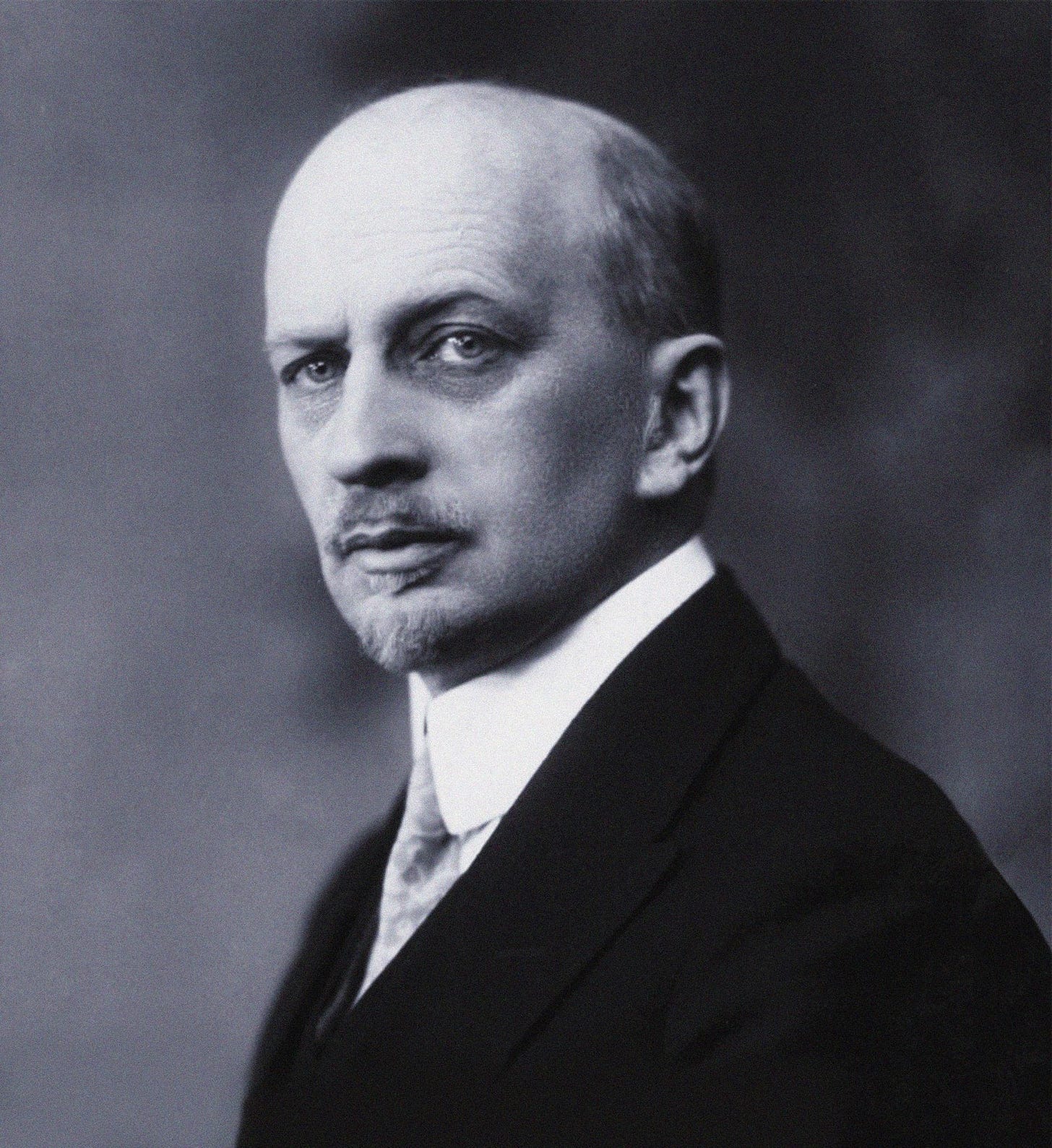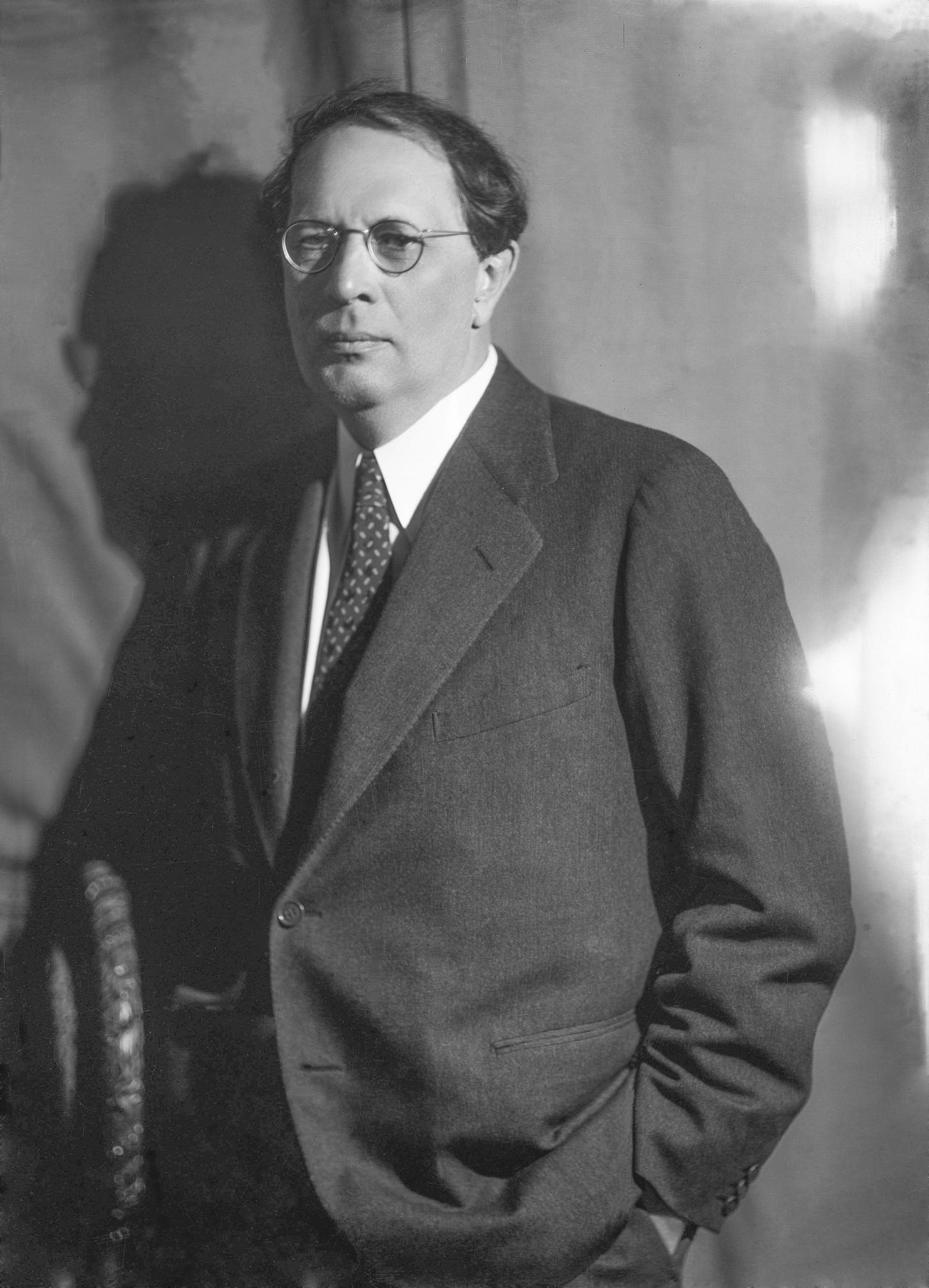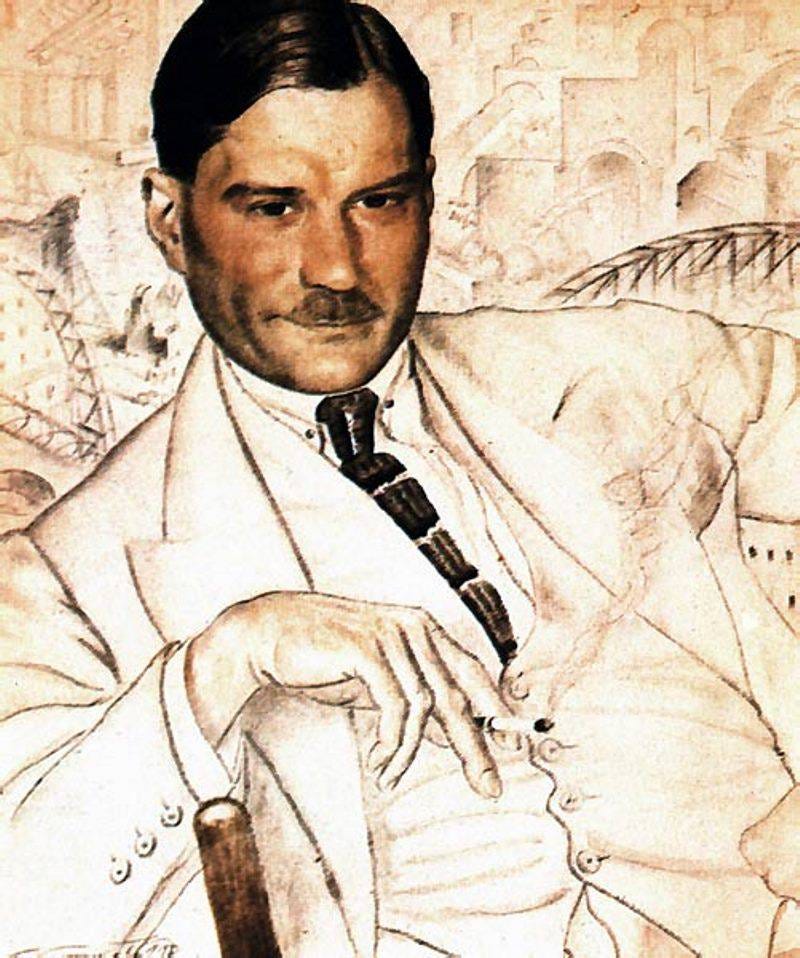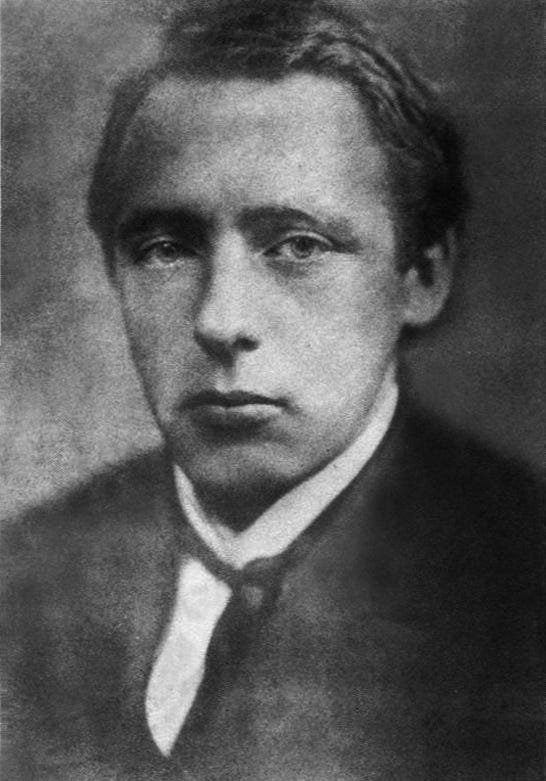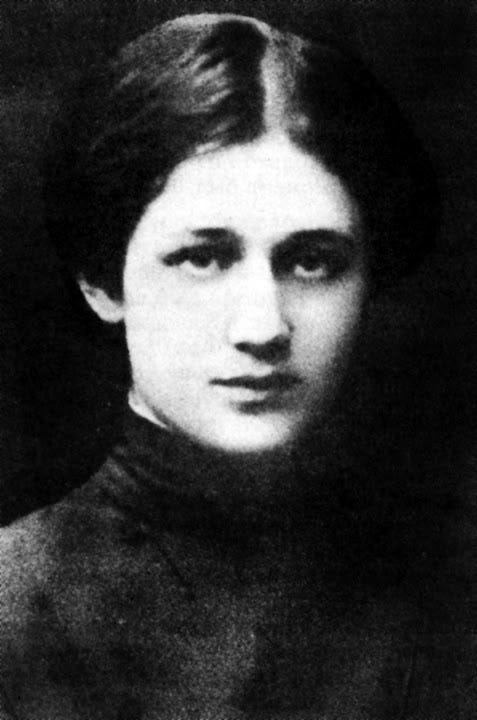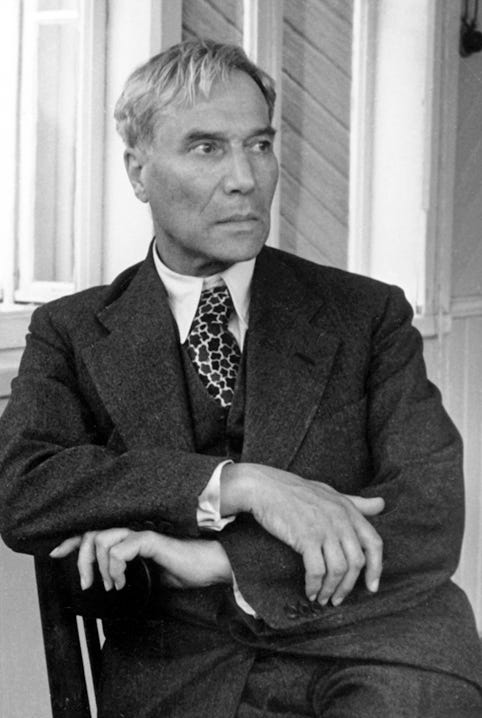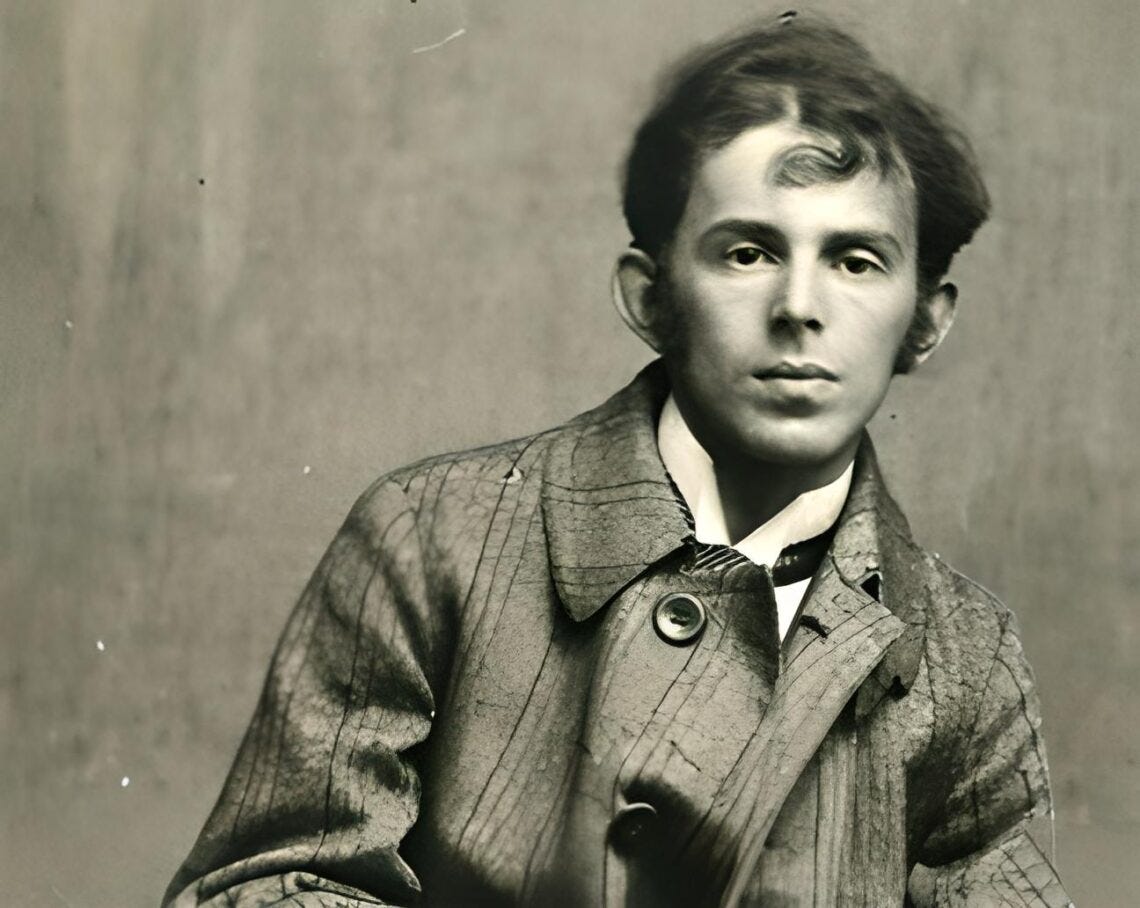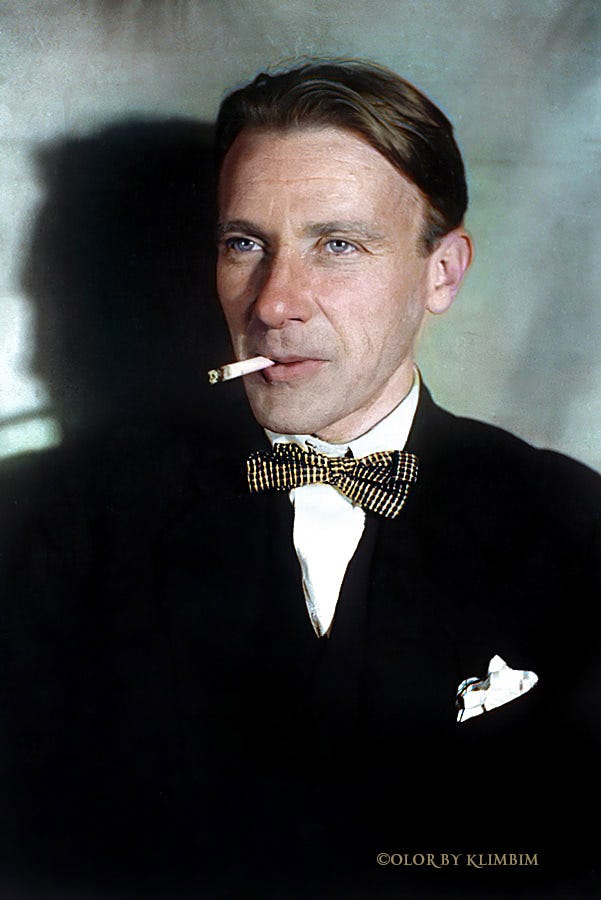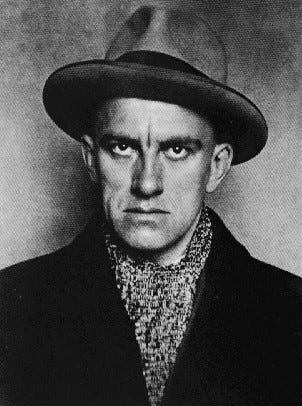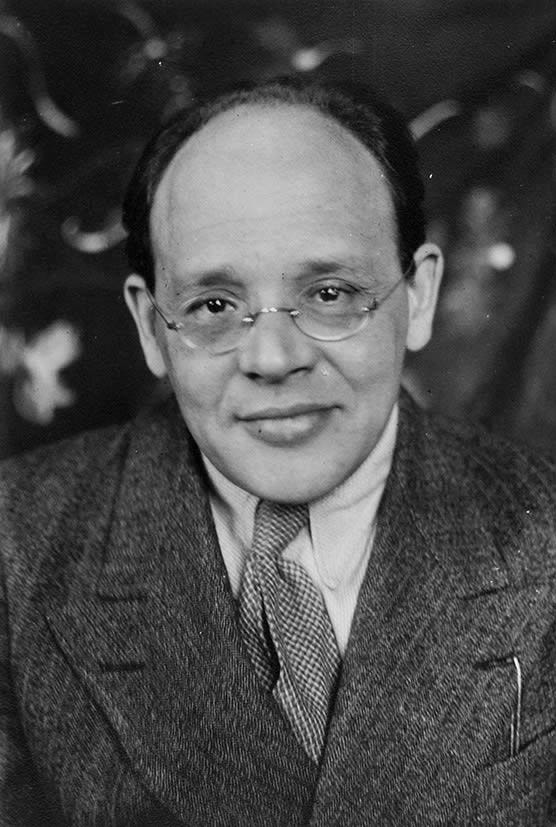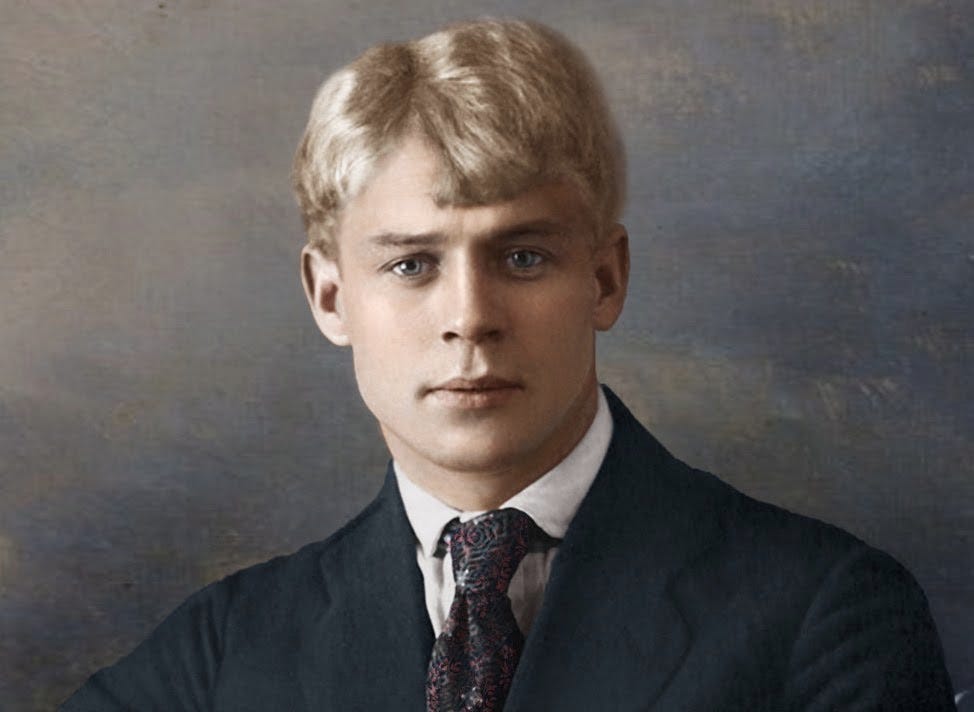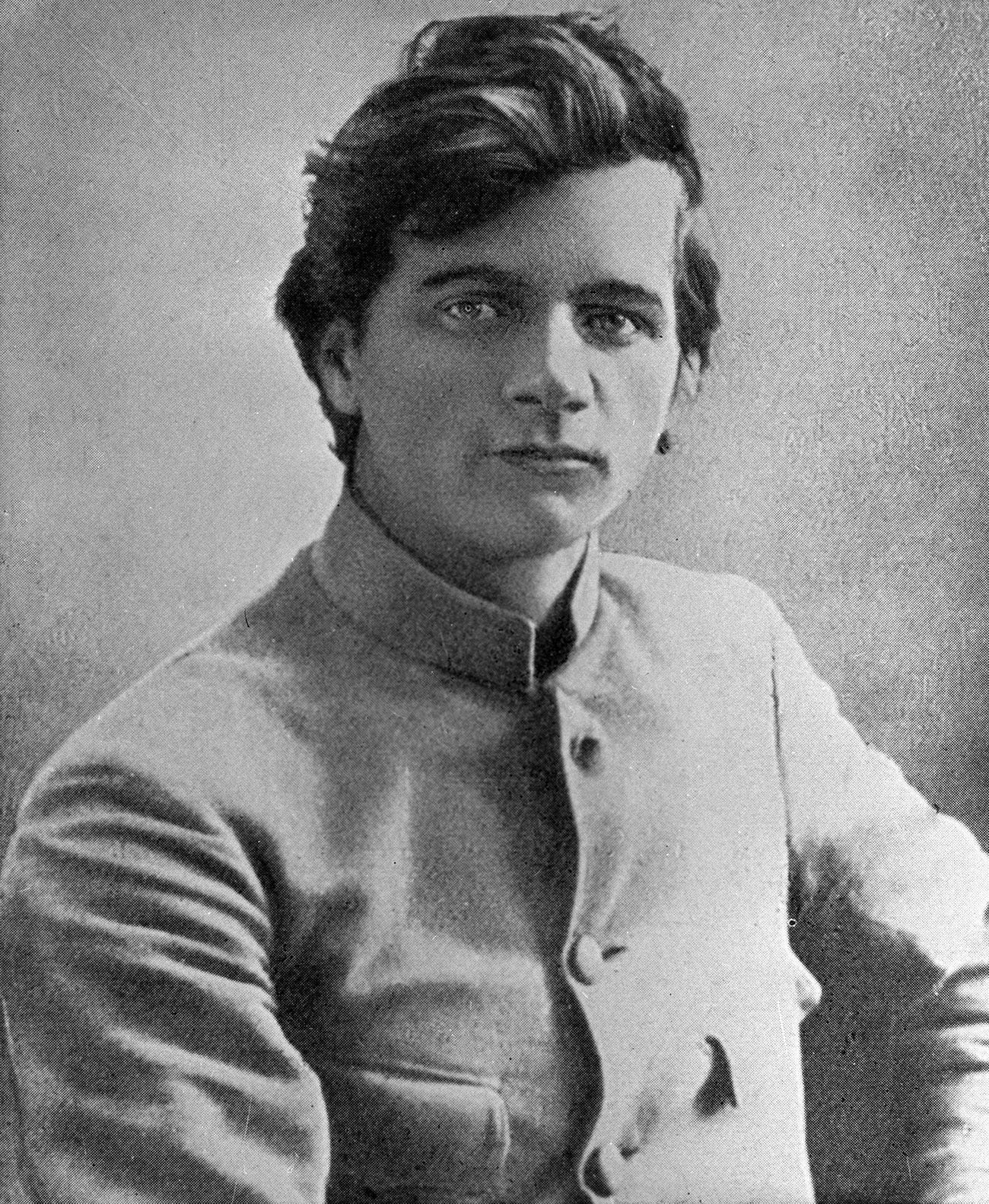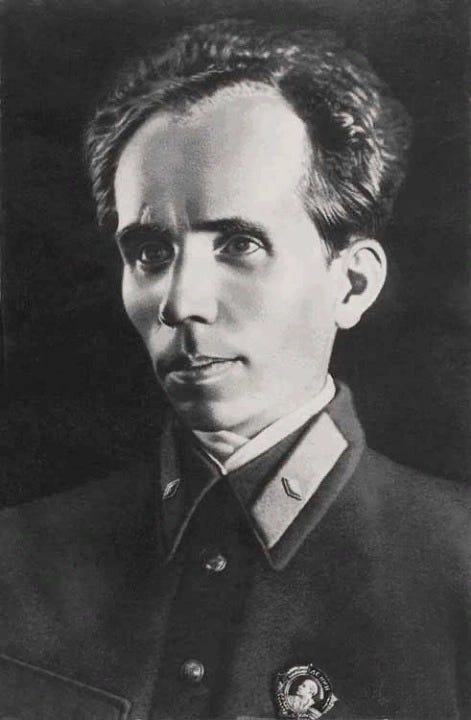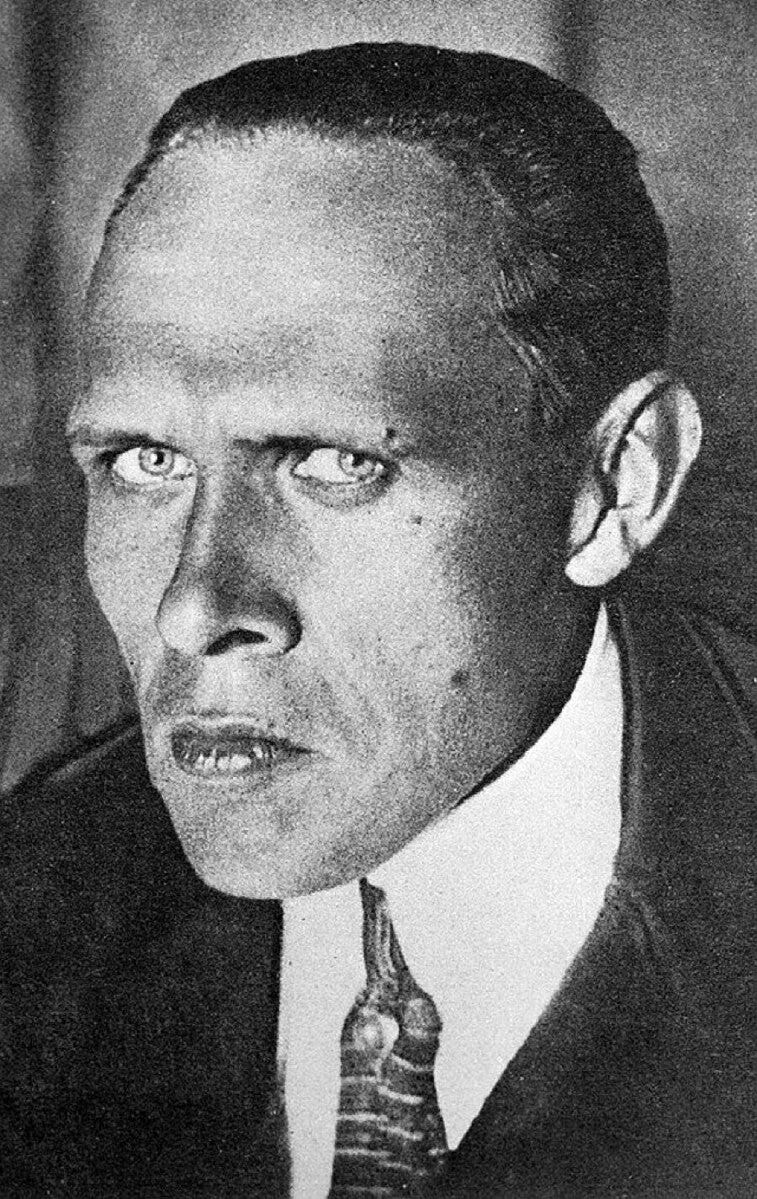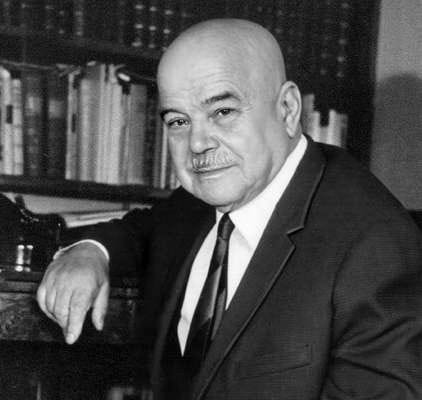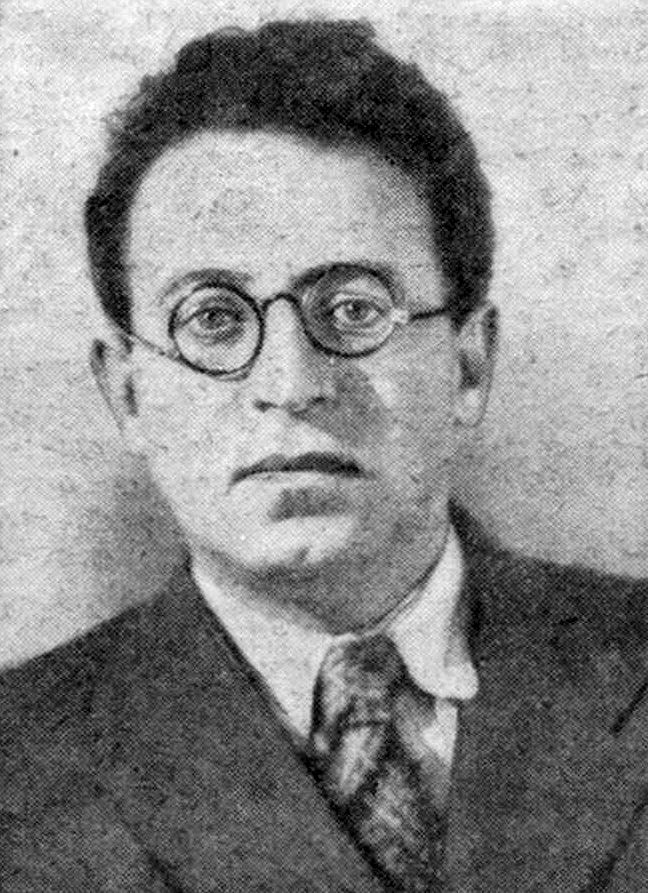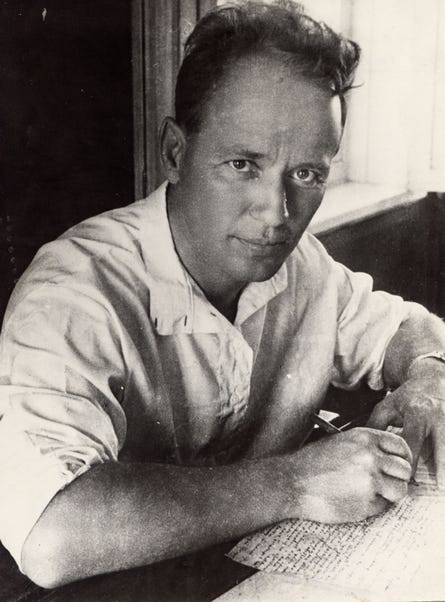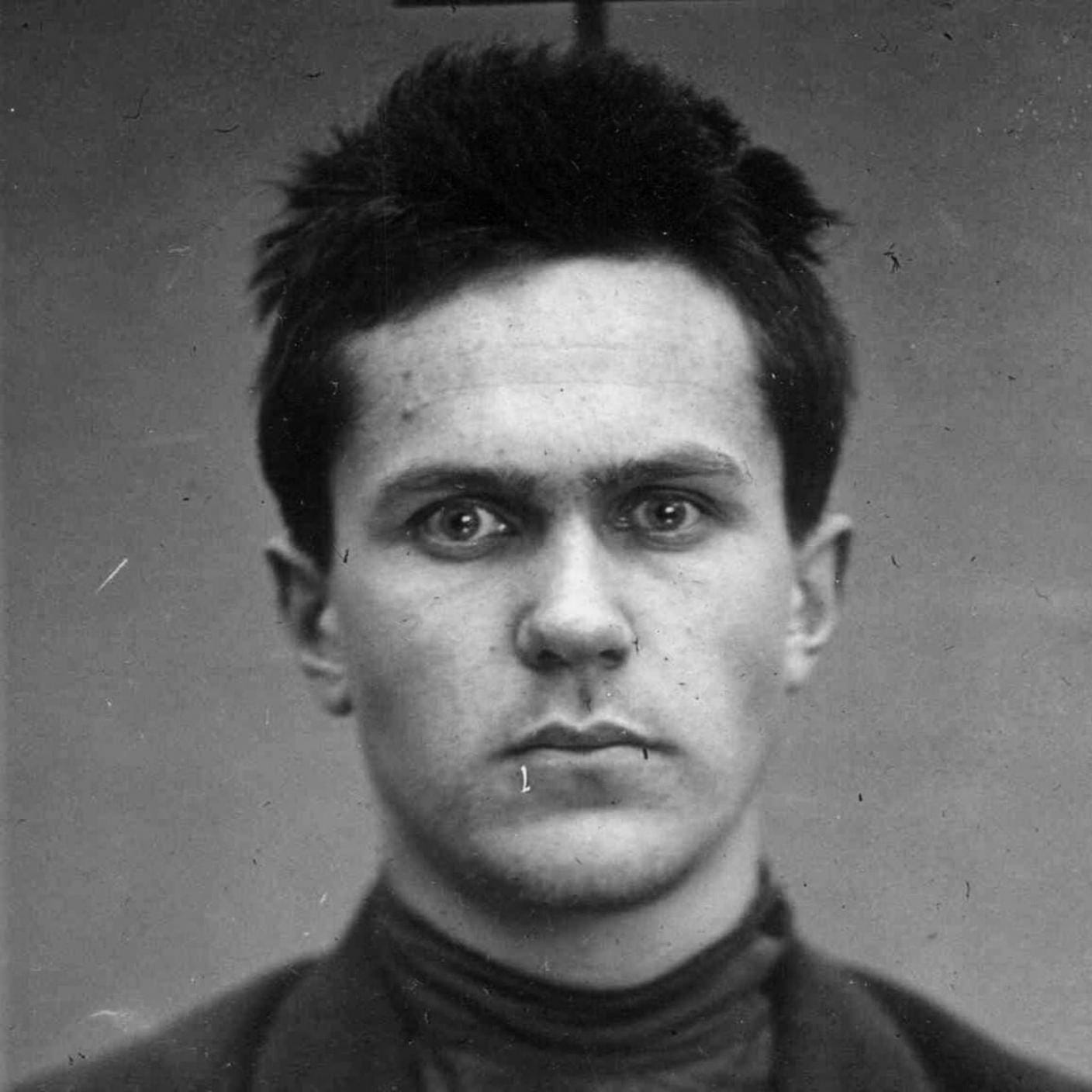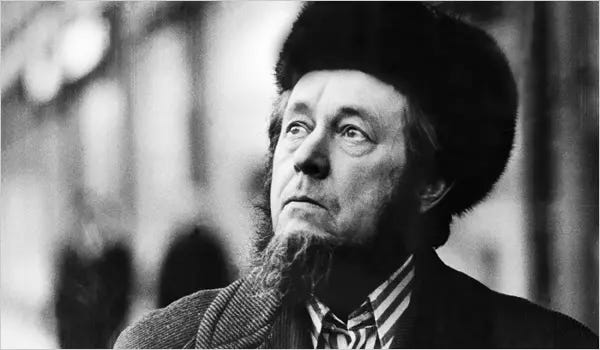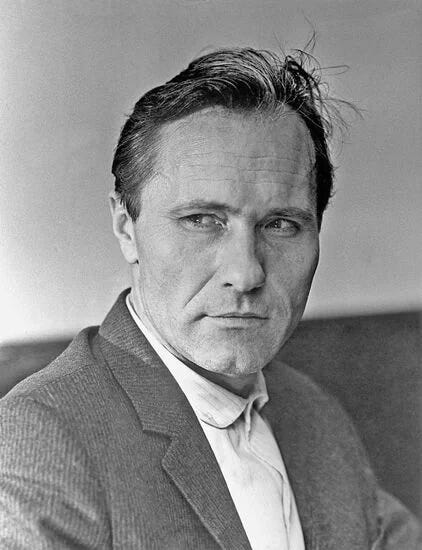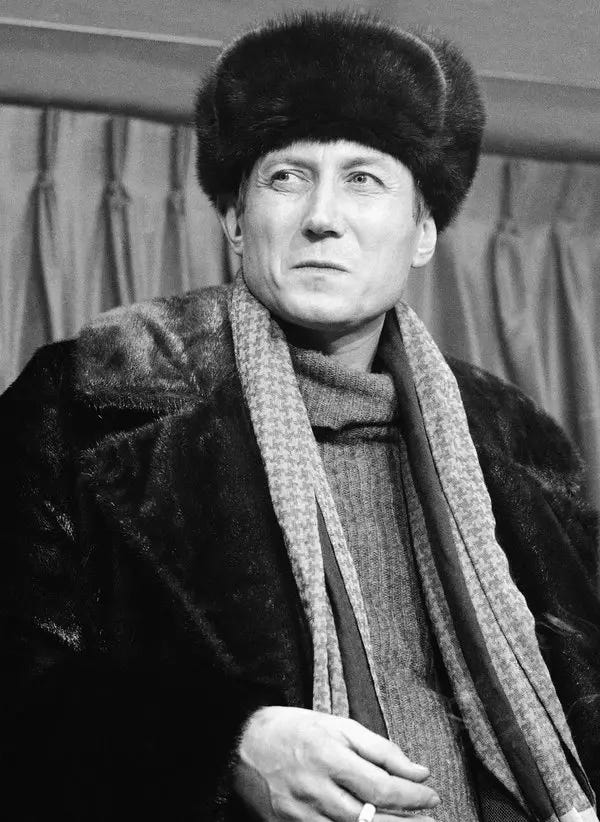Great Russian Writers: An Ethnic and Ideological Study
Ethnicity and Ideology in the Pantheon of Great Russian Writers
This is a continuation of my series on Russia. In this rendition I will be looking at Russian writers to paint a general overview of Russian literary genius and it’s composition.
For each writer I will classify their significance, write about their attitudes towards the West and Russian society, their philosophy, ideology, ethnicity, religion, family background, government repression (if took place) and HPI value as provided by Pantheon world and finally a quote from them (I skipped a few people because they had nothing important to say)
This is by no means an overview of Russian philosophy or anything like that for many people who were non-fiction political or scientific writers like Alexander Bogdanov, Georgi Plekhanov, Alexandre Kojeve or Mikhail Bakhtin were excluded. If you wish to have a better overview of Russian philosophy, I recommend starting from Wikipedia.
Furthermore, a lot of modern day Russian writers were also excluded, partially because there weren’t that many but partially because I wanted to end with the fall of the Soviet Union.
There is just one issue with my methodology which may ruin some findings besides me forgetting to add a specific writer. As time progressed, the HPI threshold for entry into my list increased. It was 56 during the Enlightenment period but by the end of the list it was close to 70 which is pretty high (resulting in exclusion of many writers of the late Soviet period like Dovlatov). This is not a consistent methodology, but that is because early Russian writers and thinkers were less known and way less numerous than Russian writers at the dawn of the XXth century and I couldn’t fathom having one or two thinkers of the enlightenment while 20 thinkers between 1890 and 1920.
If you don’t wish to read massive walls of text, you can go straight behind the paywall section that will summarize the findings and provide a statistical analysis of the general findings of this study such as:
The ethnic breakdown of Russian authors (by period)
The political breakdown of Russian authors (by period, and their correlations)
The family origins of the Russian authors.
How based the Russian authors were and what correlation it had with greatness
The levels of repression of the Russian authors (by period and their correlations)
Which Russian groups of authors were repressed the most and by whom.
Russian authors belonging to which political ideology are most elite human capital coded and which ideologies were low human capital coded.
Whether each great writer despised the current order they were living under.
Their attitudes towards the West.
Here is a teaser into the type of data you are about to see behind the paywall:
Enlightenment Era:
Vasily Trediakovsky (1703-1769):
Significance: Early pioneer of Western and French norms into Russian Literary Forms.
Rejoice, all Russian peoples:
With us, the golden years are coming.
HPI value: 57.16
Attitudes towards Russian society: Critical of its backwardness and resistance to reform; sought to elevate it through Western-inspired education and literature, viewing it as in need of enlightenment to match European progress.
Attitudes towards the West: Positive, Francophile
Philosophy: Rationalist, Classicism
Ideology: Westernizer, Supporter of Autocracy
Ethnicity: Great Russian
Religion: Russian Eastern Orthodox
Family background: Priest, educated in France.
Government repression: None, worked with the Russian Academy of Science but was bullied by Lomonosov and other Russian academics for lacking native flair.
Antiochus Kantemir (1708-1744):
Significance: “Grand-Grandfather of Russian Poetry”
In others’ hands, crumbs of bread seem like large slices.
HPI value: 61.99
Attitudes towards Russian society: Critical, viewed it as backward
Attitudes towards the West: Positive, as worth emulating
Philosophy: Rationalist, Moralist
Ideology: Westernizer, Supporter of Autocracy
Ethnicity: Moldovan/Romanian, Greek, Tatar
Religion: Eastern Orthodox
Family background: Noble, scientist and royalty background. Family is invited to Russia by Peter the Great
Government repression: None, worked with the government
Alexander Sumarokov (1717-1777)
Significance: “Father of Russian drama”
Morality without politics is useless, politics without morality is dishonorable.
HPI value: 59.41
Attitudes towards Russian society: Deeply ambivalent but hopeful.
Attitudes towards the West: Aspirational and positive. Francophile.
Philosophy: Classicism, Rationalist and Ethical Idealist
Ideology: Westernizer, Reformer, Supporter of Autocracy
Ethnicity: Great Russian
Religion: Eastern Russian Orthodox but Secular
Family background: Old Muscovite service gentry
Government repression: Got sidelined by Catherine the Great later on.
Mikhail Lomonosov (1711 - 1765)
Significance: Polymath, primarily a scientist and inventor, but also a writer and an educator. First widely acclaimed Russian writer.
The greatness, power, and wealth of the entire state lie in the preservation and multiplication of the Russian people.
HPI value: 75.69
Attitudes towards Russian society: Critical but highly patriotic
Attitudes towards the West: “Russia must learn from Europe without surrendering its identity"
Philosophy: Rationalism, Moral Idealism
Ideology: Russian Progressive Nationalism
Ethnicity: Great Russian
Religion: Eastern Russian Orthodox but Deist
Family background: Son of fisherman, rose to high ranks through merit and talent.
Government repression: none.
Mikhail Kheraskov (1733–1807)
Significance: Earned the title “Russian Homer” for his epic scope and moral vision by contemporaries.
But I will not endure these reproaches in any way;
It seems easier to me to die in torment
Than to behold my life and honor defiled.
HPI value: 56.16
Attitudes towards Russian society: Staunch patriotic, but societal flaws through allegorical characters in his plays and novels
Attitudes towards the West: Sought a synthesis of Western forms with Russian content
Philosophy: Classicism, Rationalism, Moralism
Ideology: Russian Imperialist and Nationalist
Ethnicity: Father was of partial Wallachian descent, mother is fully Great Russian
Religion: Russian Orthodox
Family background: Gentry, educated at Land Gentry Cadet Corps in Saint Petersburg.
Government repression: none
Yakov Knyazhnin (1742-1791)
Significance: Highly respected playwright and poet by contemporaries. Successor to Alexander Sumarokov, first open critic of government in his play Vadim of Novgorod commemorating Vadim the Bold’s 864 revolt against the Rurikid Vikings.
We shall compose, though thunder strike us dead!”
From the sound of their voices, reams of paper tremble,
Ink flows in rivers, pens march forth to our honor.
HPI value: No data. My own estimation around 59-62.
Attitudes towards Russian society: Critical of unchecked governmental and aristocratic power.
Attitudes towards the West: Westernizer, an admirer of Voltaire. He tailored Western influences to celebrate Russian identity, as seen in his patriotic odes and operas, avoiding slavish imitation and aligning Western forms with national pride.
Philosophy: Classicism, Rationalism
Ideology: Russian Progressive Nationalist, proto-Republican, Liberalism
Ethnicity: Great Russian
Religion: Russian Orthodox, Secular
Family background: Pskovian noble family, studied at the St. Petersburg Cadet Corps
Government repression: His tragedy Vadim of Novgorod (published 1789, performed 1791) was banned posthumously in 1793 after his death, as its portrayal of a Novgorod hero resisting autocratic rule was deemed subversive amid fears of revolutionary ideas following the French Revolution.
Gavrila Derzhavin (1743-1816)
Significance: “Greatest poet before Alexander Pushkin”
Enemies are our best friends;
They teach us wisdom.
But most of all I fear
Those who torment me with flattery.
HPI value: 66.72
Attitudes towards Russian society: Critical and Patriotic.
Attitudes towards the West: Was influenced by French ideals and grammar. Praised the West but in later years resisted liberal reforms.
Philosophy: Conservative, Moralist
Ideology: Advocate of Absolute Monarchism, Russian Monarchism, Anti-Liberal and Anti-Semitic
Ethnicity: Great Russian, symbolic Tatar roots (below 3%).
Religion: Russian Eastern Orthodox
Family background: Impoverished Russian nobility in Kazan.
Government repression: Worked in the government and had conflicts over exposing corruption and ultimately resigned due to Alexander Ist liberal course, but was never targeted by the government.
Denis Fonvizin (1745-1794)
Significance: Founder of Literary Comedy in Russia. Social commentator. Sharp critic of elite excesses and corruption.
Science and intellect submit to fashion just as much as earrings and buttons.
HPI value: 64.32
Attitudes towards Russian society: Big critic of Russian serfdom and elite corruption.
Attitudes towards the West: In his Letters from France, he mocked French vanity and immorality, favoring Russian moral sincerity despite its flaws. He sought to adapt Western literary forms to Russian contexts, rejecting blind imitation of foreign models and advocating for a distinctly Russian cultural voice rooted in enlightened principles.
Philosophy: Classicism
Ideology: Reformist, Monarchist
Ethnicity: Great Russian, some symbolic Baltic German and Viking ancestry (under 3%)
Religion: Russian Orthodox Christian, Secular
Family background: Russian Rurikid nobility, educated at Moscow University.
Government repression: In 1785, Catherine the Great banned his journal The Companion of Lovers of the Russian Word for its critical tone.
Nikolay Novikov (1744-1818)
Significance: First real Russian journalist. Found multiple independent Russian journals and newspapers.
The prosperity of the state and the well-being of the people depend unreservedly on the goodness of morals, and the goodness of morals depends unreservedly on education.
HPI value: 58.25
Attitudes towards Russian society: Harsh critic of serfdom and governmental corruption, advocated for cultural and moral awakening.
Attitudes towards the West: Admired French and British freethinkers.
Philosophy: Westernizer, Masonic Mysticism
Ideology: Reformist.
Ethnicity: Great Russian
Religion: Freemason.
Family background: Noble family, educated in Moscow University
Government repression: Severe governmental repression over Masonic activities. In 1792, Catherine ordered his arrest, accusing him of spreading dangerous ideas through his publishing and Freemasonry. He was imprisoned in the Shlisselburg Fortress for four years (1792–1796) under harsh conditions, released only after Catherine’s death by Paul I. The ordeal broke his health and finances, forcing him into obscurity until his death in 1818.
Alexander Radishchev (1749-1802)
Significance: The Father of Russian Radicalism. His seminal work, A Journey from St. Petersburg to Moscow (1790), a scathing critique of serfdom, autocracy, and social injustice. Has Greatly influenced the Decembrist movement and subsequent revolt in 1825.
Autocracy is the most repugnant state to human nature... and the people have the right to judge a despotic monarch.
HPI value: 65.91
Attitudes towards Russian society: He viewed Russia’s social order as backward and oppressive, urging a transformation inspired by Enlightenment ideals to create a more humane and equitable society.
Attitudes towards the West: Committed Westernizer. Deeply influenced by Rousseau, Montesquieu, and Raynal.
Philosophy: Sentimentalist, the conception of Natural Rights.
Ideology: Proto-Revolutionary, anti-serfdom, anti-monarchist
Ethnicity: Great Russian, symbolic Tatar descent (less than 3%)
Religion: Deism. but nominally Russian Orthodox.
Family background: Wealthy noble family. Educated in Moscow and later in Leipzig.
Government repression: After publishing A Journey from St. Petersburg to Moscow in 1790, Catherine the Great deemed it seditious, accusing him of inciting rebellion. Arrested in June 1790, he was sentenced to death, commuted to ten years’ exile in Siberia (Ilimsk). He endured harsh conditions, returning only in 1797 under Paul I’s amnesty. Under Alexander I, he briefly served on a law reform commission but, disillusioned and possibly pressured, committed suicide in 1802.
The Romantic Era:
Kondraty Ryleyev (1795-1826)
Significance: Poet, revolutionary, and one of the leading organizers of the Decembrist Revolt of 1825, which sought to overthrow the autocracy and establish constitutional government; his civic poetry and almanac Polar Star promoted liberal ideas and influenced later Russian literature and reform movements.
We are not afraid of death on the battlefield, but we fear to utter a word in favor of justice.
HPI value: 60.61
Attitudes towards Russian society: Critically reformist; viewed Russian society as backward and autocratic, particularly condemning serfdom as a moral evil and the nobility’s complicity in oppression; advocated for social justice, education of the masses, and patriotic sacrifice to uplift the downtrodden, often using his poetry to inspire civic duty over personal gain.
Attitudes towards the West: Admirative and aspirational; his military service in Western Europe (Germany, Switzerland, France) exposed him to liberal constitutionalism and capitalist progress, which he contrasted sharply with Russia’s feudal stagnation, fueling his calls for modernization and Enlightenment-inspired reforms. Was influenced by Rousseau.
Philosophy: Romantic, Civic-Sentimentalist, Westernizer, Republican
Ideology: Revolutionary, Liberal-Republican, Cossack Jingoism
Ethnicity: Great Russian
Religion: Deism
Family background: Russian nobility.
Government repression: Hanged along with 4 other leading Decembrists for his role in the failed uprising.
Pyotr Vyazemsky (1792-1878)
Significance: A pioneer of Romanticism, close associate of Alexander Pushkin, and contributor to the literary almanac Polar Star; his witty, conversational poetry and essays shaped Russian literary criticism and liberal thought, while his later diplomatic career and memoirs provided historical insights into 19th-century Russia.
The English say: time is money. The Russians said: life is a kopeck.
HPI value: 57.37
Attitudes towards Russian society: Vyazemsky initially viewed Russian society as culturally backward and overly autocratic, advocating for reform and intellectual freedom in his early liberal phase alongside the Decembrists and Pushkin. He criticized serfdom and bureaucratic stagnation but grew more conservative after the 1825 Decembrist Revolt.
Attitudes towards the West: Highly admiring and cosmopolitan; influenced by his travels in Western Europe (e.g., France, Germany, Italy), Vyazemsky saw the West, particularly French literature and Enlightenment ideals as a model for cultural and intellectual progress.
Philosophy: Romantic individualism, Rationalism
Ideology: Liberalism, Westernizer, Anti-Slavophile, Moderate-Conservatism later in life
Ethnicity: Half-Russian (of Rurikid stock), Half-Irish
Religion: Russian Orthodox, Secular
Family background: Aristocratic; born into the prominent Vyazemsky noble family in Moscow, son of Prince Andrey Vyazemsky and an Irish noblewoman, Jenny Quinn O’Reilly; inherited wealth and status, educated at home by French tutors.
Government repression: Barely any. Worked in the government.
Alexander Bestuzhev (1797-1837)
Significance: Russian Romantic writer, poet, literary critic, and Decembrist revolutionary; co-editor of the influential almanac Polar Star (1823–1825) with Kondraty Ryleyev, which promoted liberal ideas and featured works by Pushkin and other contemporaries; his florid prose tales of the Caucasus (written under the pseudonym Marlinsky) popularized Byronic heroism and exoticism, influencing Lermontov and Dumas, while his participation in the 1825 revolt marked him as a symbol of civic sacrifice and military valor in exile.
The beginning of Emperor Alexander’s reign was marked by the most brilliant hopes for Russia’s prosperity. The nobility rested, the merchants did not complain about credit, the troops served without hardship, scholars studied what they wished; everyone said what they thought, and everyone hoped for even better things amid much that was already good. Unfortunately, circumstances did not allow it, and the hopes grew old without fulfillment. The unsuccessful war of 1807 and other costly events disrupted the finances; but this was not yet noticed in the preparations for the Patriotic War. Finally, Napoleon invaded Russia, and it was then that the Russian people first felt their strength; then a feeling of independence awakened in all hearts—first political, and later national. This was the beginning of free thought in Russia. The government itself uttered the words: “freedom, liberation!” It itself disseminated writings about the abuses of Napoleon’s unlimited power, and the cry of the Russian monarch echoed along the banks of the Rhine and the Seine. The war was still ongoing when the warriors, returning home, were the first to spread discontent among the common people. “We shed blood,” they said, “and now they force us to sweat under corvée again. We saved the fatherland from a tyrant, yet the lords tyrannize us once more.” The troops, from generals to soldiers, upon returning, talked of nothing but “how good it is in foreign lands.” Comparison with their own naturally led to the question: why not the same here?
At first, while people spoke of this freely, it dissipated into the wind, for the mind, like gunpowder, is dangerous only when compressed. The ray of hope that the emperor would grant a constitution, as he had mentioned at the opening of the Sejm in Warsaw, and the attempts by some generals to free their serfs still flattered many. But from 1817 everything changed. People who saw the bad or desired better were forced by the multitude of spies to converse secretly—and thus began the secret societies. The oppression of deserving officers by their superiors inflamed minds. The preference for German names over Russian offended national pride. It was then that the military began to say: “Did we liberate Europe only to impose its chains on ourselves? Did we give a constitution to France only to dare not speak of it, and buy with blood primacy among nations only to be humiliated at home?” The abolition of normal schools and the persecution of education forced people, in hopelessness, to think of more drastic measures. And since the people’s grumbling, arising from exhaustion and the abuses of local and civil authorities, threatened a bloody revolution, the societies resolved to avert a greater evil with a lesser one and to begin their actions at the first convenient opportunity.
Letter to Nicholas I, justifying his actions in the 1825 revolt.
HPI value: 59.52
Attitudes towards Russian society: Critically reformist and anti-autocratic; viewed imperial Russia as despotic and stagnant, condemning serfdom, feudal oppression, and the disconnect between the elite and the people.
Attitudes towards the West: Admirative and integrative; heavily influenced by Western Romanticism (Byron, Hugo, Scott), he advocated adapting European literary forms and Enlightenment ideals of freedom to Russian contexts, seeing the West as a source of inspiration for national progress.
Philosophy: Byronic Romanticism fused with civic humanism.
Ideology: Liberal constitutionalism with Decembrist republican leanings. Russian Imperialist. Russian Progressive Nationalist.
Ethnicity: Great Russian
Religion: Russian Orthodox
Family background: Born into the ethnic Russian nobility of Novgorod descent. Fifth son of Alexander Fedoseyevich Bestuzhev, a prominent writer, government councilor, and translator
Government repression: Arrested after the Decembrist Revolt; demoted from officer to private, stripped of rights, imprisoned for 18 months in the Peter and Paul Fortress; exiled to Yakutia (1827), then transferred as a common soldier to the Caucasus front (1829) for redemption through service.
Aleksey Koltsov (1809-1842)
Significance: Prominent Russian poet of the Romantic Era focusing on Peasant and Folk themes. He bridged Romantic individualism with emerging realist tendencies.
Peace is the mystery of God,
God is the mystery of life;
All of nature -
Is in the human soul.
HPI value: 56.9
Attitudes towards Russian society: Held a bittersweet view of Russian society, romanticizing the simplicity and spiritual depth of peasant life while subtly critiquing the hardships imposed by serfdom and urban alienation
Attitudes towards the West: Zero Western influence. Prioritized Slavic authenticity. Some Oriental Persian motifs.
Philosophy: Stoicism, Orthodox Mysticism, Romanticism, Slavophile.
Ideology: Conservative, Proto-Slavophile
Ethnicity: Great Russian.
Religion: Devout Russian Orthodox. Works like “To the Almighty” express devout humility and divine providence, blending folk spirituality with Romantic ecstasy
Family background: Wealthy merchant background. Worked as a clerk before dedicating himself to literature.
Government repression: None.
Nikolay Karamzin (1766-1826)
Significance: The “Father of Russian sentimentalism”. But most widely known for his first systematic study of Russian history.
The beginning of Russian history presents us with an astonishing case: the Slavs voluntarily destroy their ancient government and demand rulers from the Varangians, who were their enemies.
HPI value: 69.37
Attitudes towards Russian society: Defended Autocracy and Orthodoxy, glorified Russian Imperial legacy but was not blind to structural inequalities.
Attitudes towards the West: Westernizer though he grew wary of Western revolutionary ideals, particularly after the French Revolution, advocating a selective adoption of Western culture to strengthen Russian identity without undermining autocracy, aligning with a moderated Westernizing vision.
Philosophy: He fused Enlightenment rationalism with sentimentalist emotionalism.
Ideology: Conservative Russian Nationalist and Imperialist. Defender of Russian Autocracy and Serfdom.
Ethnicity: Great Russian, symbolic Tatar ancestry (less than 1%)
Religion: Devout Russian Orthodox
Family background: Born to a noble family from Simbirsk. Educated in Moscow.
Government repression: Enjoyed great patronage.
Ivan Krylov (1769-1844)
Significance: A celebrated fabulist and satirist. Often called the “Russian La Fontaine”. Influenced Gogol and Dostoevsky.
To be strong is good, to be smart is twice as good.
HPI value: 71.86
Attitudes towards Russian society: His patriotism shone in fables praising Russian resilience, especially during the Napoleonic Wars, but he remained skeptical of societal progress, emphasizing timeless human flaws over systemic overhaul, aligning with a conservative yet critical view of Russia’s social order.
Attitudes towards the West: Initially a Westernizer. Then cautious of Western influence after the French Revolution and the subsequent invasion of Russia by Napoleon.
Philosophy: Classicism. Moral Pragmatism and Rationalism.
Ideology: Conservative Russian Nationalist. Devout Monarchist.
Ethnicity: Great Russian
Religion: Russian Orthodox. His fables drew heavily on Christian ethics.
Family background: Noble family. Self-taught.
Government repression: His early satirical journals, like The Spectator and St. Petersburg Mercury (1793), were briefly suppressed by Catherine the Great for their biting tone, but he avoided serious punishment by moderating his critique. His ability to critique society indirectly through allegory allowed him to navigate censorship while maintaining influence.
Vasily Zhukovsky (1783-1852)
Significance: Foundational figure in Russian Romanticism, often called the “father of Russian poetry”. His advocacy for serf emancipation and moral tone in poetry made him a cultural bridge between Enlightenment and Romanticism, revered for his gentle humanism.
For a society raised on the word of the Gospel, it is perfectly clear and undoubted that the killing of a person, even if committed by the sword of the state, is contrary to the teaching and the reason of Christ’s teaching.
HPI value: 68.23
Attitudes towards Russian society: His poetry celebrated Russian folklore and spirituality, idealizing rural life and Orthodox values, as seen in “Svetlana.” However, he privately criticized serfdom and autocratic rigidity, advocating gradual reform through education and moral enlightenment. As tutor to Alexander II, he instilled liberal ideas, contributing to the eventual abolition of serfdom in 1861. While loyal to the monarchy, he deplored societal stagnation and aristocratic superficiality, using poetry to promote moral and cultural progress within the autocratic framework.
Attitudes towards the West: Zhukovsky was a prominent Westernizer, deeply influenced by European Romanticism, particularly German poets like Schiller and Goethe, and English writers like Byron and Scott. His translations and ballads introduced Western Romantic themes—individualism, nature, and the supernatural—to Russia, enriching its literary tradition. His travels in Europe (1815–1817) reinforced his admiration for Western culture, but he adapted these influences to celebrate Russian identity, avoiding blind imitation
Philosophy: Quintessentially Romantic. German Idealism, Orthodox Mysticism.
Ideology: Liberal Monarchism. Gradual Reformism.
Ethnicity: A son of a Russian landowner and his Turkish slave. 50% Russian 50% Turkish.
Religion: Devout Russian Orthodox.
Family background: Russian landowner from Tula. Educated in Moscow.
Government repression: none.
Alexander Griboyedov (1795-1829)
Significance: Russian poet, playwright and diplomat best known for his verse comedy Woe from Wit (1823), a masterpiece of Russian literature that satirized the hypocrisy and conservatism of Moscow’s aristocracy. The play, blending neoclassicism with emerging realism, influenced Russian drama and literature, impacting figures like Pushkin and Gogol.
There is no nation that conquers so easily and knows so poorly how to make use of its conquests as the Russians.
HPI value: 66.75
Attitudes towards Russian society: Griboyedov was a sharp critic of Russian society, particularly the superficiality and intellectual stagnation of the nobility.
Attitudes towards the West: He admired Western intellectual freedom and cultural sophistication, critiquing Russia’s slavish imitation of French fashions in his play. However, his diplomatic service in Persia and the Caucasus deepened his appreciation for Russia’s distinct identity, leading him to advocate a selective adoption of Western ideas to modernize Russia without losing its national character.
Philosophy: Romantic Individualism. Secular Humanism.
Ideology: Russian Progressive Nationalist and Imperialist. Liberal Reformer.
Ethnicity: Great Russian
Religion: Russian Orthodox, Secular.
Family background: Comes a prominent Russian noble family. Studied at Moscow University.
Government repression: The play Woe from Wit was censored under Nicholas I, with performances banned until 1831, as its satire of the elite and subtle liberal undertones raised suspicions, especially after the Decembrist Revolt (1825). Griboyedov was briefly arrested in 1826 for alleged ties to the Decembrists, given his acquaintance with some conspirators, but was released due to lack of evidence.
Yevgeny Baratynsky (1800-1844)
Significance: Romantic poet. Regarded as an anti-thesis to Alexander Pushkin in style.
I congratulate you on the future, for we have more of it than anywhere else; I congratulate you on our steppes, for they are a vastness that cannot be replaced by the local science; I congratulate you on our winter, for it is more invigorating and brilliant, and with the eloquence of frost calls for movement better than the local orators; I congratulate you on the fact that we are indeed twelve days younger than other nations and therefore may outlive them, perhaps, by twelve centuries.
(On Europe)
HPI value: 60.69
Attitudes towards Russian society: His poetry often critiqued the emptiness of aristocratic life and the cultural decline he perceived in the post-Napoleonic era, as seen in “The Last Poet,” which laments the triumph of materialism over art. While not a radical, he expressed alienation from both the autocratic elite and emerging commercialism, favoring spiritual and artistic values. His patriotism was subdued, focusing on universal human struggles rather than national glorification, reflecting a Romantic preference for individual introspection over societal engagement.
Attitudes towards the West: He was influenced by European Romanticism, particularly Byron, Shelley, and Goethe. His early exposure to Western literature at the Corps of Pages shaped his lyrical style, and his travels to Finland and Italy deepened his appreciation for European culture. However, he was skeptical of Western materialism and rationalism, critiquing their encroachment on poetic and spiritual ideals in poems like “The Last Poet.” He adapted Western Romantic forms to explore Russian themes, balancing admiration for European artistry with a commitment to a distinct Russian poetic voice, avoiding the radical Westernization of figures like Radishchev.
Philosophy: German-Idealism. Proto-Existentialism.
Ideology: Apolitical, Romantic Individualism.
Ethnicity: Great Russian, Polish ancestry of 12.5%.
Religion: Russian Orthodox
Family background: His paternal line comes from a Polish noble family that has migrated into Russia in late 17th century. His father was a general. Evgeny was educated in Saint Petersburg.
Government repression: none.
Alexander Pushkin (1799-1837)
Significance: Is universally believed to be the Greatest Russian poet of all time and the founder of modern Russian literature. His works, including the verse novel Eugene Onegin (1825–1832), the narrative poem The Bronze Horseman (1833), the drama Boris Godunov (1825), and short stories like The Queen of Spades (1834), blended Romanticism with realism, establishing a distinctly Russian literary voice. Pushkin’s mastery of language, psychological depth, and exploration of themes like freedom, love, and fate influenced virtually every subsequent Russian writer, from Dostoevsky to Tolstoy.
Of course, I despise my homeland from head to toe—but I am vexed when a foreigner shares this feeling with me.
I swear on my honor that for nothing in the world would I want to change my homeland or have any other history than that of our ancestors, such as God gave it to us.
HPI value: 84.64
Attitudes towards Russian society: Pushkin was a critical yet affectionate observer of Russian society. His poetry and prose captured the complexities of Russian life its beauty, contradictions, and injustices reflecting both pride in its heritage and frustration with its stagnation.
Attitudes towards the West: Was deeply influenced by Shakespeare, Byron, Schiller, Goethe and Voltaire and liked Western culture. Nonetheless he rejected its imitation, mocking Gallicized nobles in Eugene Onegin and celebrating Russia’s unique spirit. He sought to synthesize Western forms—such as the novel in verse—with Russian themes, creating a national literature that rivaled European models while preserving Slavic identity, balancing admiration for the West with patriotic pride.
Philosophy: Romanticism, Existentialism.
Ideology: Initially sympathetic to the Decembrists. Then a supporter of Enlightened Autocracy. Russian Progressive Nationalist and Imperialist.
Ethnicity: 75% Great Russian 12.5% Swedish and German, 12.5% African
Religion: Russian Orthodox.
Family background: Wealthy Russian noble family. His great grandfather was an African general in the Russian army.
Government repression: His early poems, like “Ode to Liberty” and “The Dagger” (1821), led to his exile to southern Russia (1820–1824) under Alexander I for their anti-autocratic tone. After the Decembrist Revolt, Nicholas I personally oversaw his surveillance, censoring his works and restricting his travel.
Fyodor Tyutchev (1803-1873)
Significance: Was a classic Russian Romantic poet leaving a lasting impact on Russian literature and political thought.
You cannot grasp Russia with the mind,
Nor measure her with common yardstick:
She has a special stature —
In Russia one can only believe.
HPI value: 68.05
Attitudes towards Russian society: Tyutchev viewed Russian society with a mix of reverence and critique. His political writings praised Russia’s spiritual mission as the heart of Slavic unity. He criticized the Russian elite’s superficial Westernization, advocating a return to Orthodox values and national authenticity.
Attitudes towards the West: He saw Russia’s autocratic system as a bulwark against Western liberalism
Philosophy: Romanticism, Idealism, Slavophile
Ideology: Pan-Slavism. Conservative Russian Nationalism and Imperialism. Reactionary. Fully supported Czar Nicholas I.
Ethnicity: Great Russian
Religion: Devout Russian Orthodox
Family background: Noble background. Studied in Moscow University.
Government repression: none, worked for the government and even became a censor himself.
Aleksey Khomyakov (1804-1860)
Significance: A philosopher, theologian, poet, and co-founder of the Slavophile movement. His essays, such as On the Old and the New (1839) and The Church is One (1844–45), articulated a vision of Russian cultural and spiritual superiority rooted in Orthodoxy and communal traditions (sobornost). As a leading intellectual, he influenced Russian religious philosophy, shaping thinkers like Solovyov and Dostoevsky, and his ideas on Russia’s unique path resonated in later nationalist and Orthodox thought, despite limited recognition during his lifetime.
There is nothing sedimentary or crystalline in the Russian language; everything excites, breathes, lives.
HPI value: 62.67
Attitudes towards Russian society: Khomyakov idealized Russian society’s pre-Petrine traditions, particularly its communal peasant structures (mir) and Orthodox spirituality, viewing them as morally superior and organic. He criticized post-Petrine Russia for adopting Western rationalism and autocratic centralization, which he saw as alienating and corrosive to Russia’s spiritual unity. He advocated a return to communal, faith-based values to restore Russia’s authentic identity.
Attitudes towards the West: Highly critical; Khomyakov viewed Western Europe as spiritually barren, overly individualistic, and dominated by rationalism, Catholicism, or Protestantism, which he considered inferior to Orthodoxy’s holistic unity. He saw Western legalism and materialism as fragmenting society, contrasting this with Russia’s communal and spiritual harmony, though he engaged with Western philosophy to critique it.
Philosophy: Sobornost, Idealism.
Ideology: Slavophile. Conservatism.
Ethnicity: Great Russian
Religion: Devout Russian Orthodox.
Family background: Born into a wealthy, aristocratic Russian family; son of Stepan Alexandrovich Khomyakov, a nobleman, and Maria Alekseevna (née Kireevskaya), from a cultured gentry family. Raised in Moscow and their Oryol estate, he received a privileged education, studying mathematics, literature, and philosophy, and served briefly in the military before dedicating himself to intellectual pursuits.
Government repression: Minimal; Khomyakov faced censorship under Nicholas I’s regime for his Slavophile writings, which indirectly challenged tsarist Westernization and autocracy.
Nikolai Gogol (1809-1852)
Significance: Towering figure in Russian and worldly literature. His social commentary and patriotic works like Dead Souls and Taras Bulba are part of a Russian school curriculum. He blended Realism with Romanticism and folklore. Influenced writers like Dostoevsky and Chekhov.
If only one farmstead remains to the Russians, even then Russia will be reborn.
HPI value: 82.82
Attitudes towards Russian society: Complex. Some of his works critiqued bureaucratic corruption, materialism, and greed. At the same time was highly patriotic of Russia and its order as well as of Ukrainian folklore.
Attitudes towards the West: Critical of Western materialism and secularism, especially after his spiritual crisis, viewing Russia’s Orthodox spirituality as superior. He admired Western literary techniques but rejected liberal ideologies, favoring a uniquely Russian path of moral redemption over Western modernization, aligning more with Slavophile ideals in his later years.
Philosophy: Slavophile, Religious Mysticism, Asceticism, Russian Exceptionalism.
Ideology: Conservative Russian Nationalist and Imperialist, Defender of Russian Autocracy and Serfdom, Cossack Jingoism.
Ethnicity: Little Russian (Ukrainian). Possible 1/8 Polish ancestry.
Religion: Devout Russian Orthodox
Family background: Minor noble.
Government repression: None.
Vissarion Belinsky (1811-1848)
Significance: A leading Russian critic, philosopher, and publicist of the early half of the century. He played a central role in shaping the Westernizer faction of the Russian intelligentsia. His passionate essays influenced generations of writers (including Pushkin, Gogol, Lermontov, Turgenev, and Dostoevsky) and intellectuals, emphasizing literature’s role in social reform, individual dignity, and national progress. He is often called the “father of the Russian intelligentsia” for bridging Romanticism and realism in art, and his ideas laid groundwork for later revolutionary democratic thought. of the early half of the century
“I am of Russian nature. Let me say it more clearly: je suis un Russe et je suis fier de l’être. I don’t even want to be French, although I love and respect that nation more than others. The Russian personality is still an embryo, but how much breadth and strength there is in the nature of this embryo, how stifling and terrifying any limitation and narrowness is to it.”
HPI value: 70.82
Attitudes towards Russian society: Highly critical of autocracy, serfdom, censorship, and spiritual stagnation under Nicholas I; viewed Russian society as backward and in need of radical reform to awaken human dignity and progress toward civilization. He condemned the oppression of the peasantry and intelligentsia, seeing literature as a tool for social awakening amid repression.
Attitudes towards the West: Admirative and Europhilic; advocated Westernization as the path for Russia’s maturation, praising European literature, philosophy, politics, and values (e.g., individualism and rationalism) as models for Russian cultural and social development.
Philosophy: Westernizer, Hegelian, Romantic Realism, Materialism.
Ideology: Democratic, Anti-Autocracy
Ethnicity: Great Russian
Religion: Atheist.
Family background: Son of Grigory Ivanovich Belinsky, a low-ranking Russian naval physician and district doctor, and Maria Ivanovna (née Popova), daughter of a Russian sailor.
Government repression: expelled from Moscow University in 1832 for a play criticizing serfdom; lost editorial positions (e.g., at Moscow Observer in 1839) due to association with banned works like Chaadaev’s Philosophical Letters; his 1847 open Letter to Gogol (denouncing serfdom and Orthodoxy) was deemed subversive, circulated underground, and contributed to the 1849 Petrashevsky Circle arrests (including Dostoevsky).
Mikhail Lermontov (1814–1841)
Significance: Towering figure in Russian Romanticism, often considered second only to Pushkin. He blending psychological depth, existential despair, and vivid imagery. Lermontov’s works critiqued societal hypocrisy and explored themes of alienation, fate, and rebellion, influencing later writers like Dostoevsky and Tolstoy.
The Russian people, this hundred-armed giant, will sooner endure the cruelty and arrogance of their ruler than his weakness.
HPI value: 74.97
Attitudes towards Russian society: He was critical of Russian government. His patriotism was tinged with disillusionment, critiquing Russia’s spiritual and intellectual stagnation while cherishing its landscapes and folk traditions.
Attitudes towards the West: He was heavily influenced by European Romanticism, particularly Byron, Schiller, and Shelley. His Byronic heroes and lyrical style reflect Western Romantic ideals of individualism and rebellion. However, he was skeptical of Western materialism and aristocratic affectations, mocking Russified European manners in his works.
Philosophy: Individual Romanticism, German Idealism, Existentialism, Fatalism.
Ideology: Liberal
Ethnicity: Great Russian. Symbolic Scottish ancestry (below 6%)
Religion: Russian Orthodox
Family background: Wealthy noblemen, educated in Moscow University and School of Guards Sub-ensigns subsequently entering military service.
Government repression: His poem “Death of the Poet” (1837), blaming the court for Pushkin’s death, led to his arrest and exile to the Caucasus as a military officer. A second exile followed in 1840 after a duel with a French diplomat’s son.
The Golden Age of Russian Literature:
Alexander Herzen (1812-1870)
Significance: A prominent Russian philosopher, writer, and revolutionary thinker, often called the “father of Russian socialism.” As an émigré in London, he published The Bell, which smuggled ideas into Russia, influencing the intelligentsia and reformist movements. His blend of socialism, liberalism, and Russian populism left a lasting impact on revolutionary ideology.
The state has settled in Russia like an occupying army. We do not feel the state as part of ourselves, part of society. The state and society are waging war. The state is waging a punitive one, and society a guerrilla one…A people cannot be liberated more than it is free from within… Socialism will develop in all its phases to its extreme consequences, to absurdities. Then once again a cry of negation will burst from the titanic breast of the revolutionary minority, and once again a mortal struggle will begin, in which socialism will take the place of the current conservatism and will be defeated by the coming revolution, unknown to us.
HPI value: 71.88
Attitudes towards Russian society: Herzen was a fierce critic of Russian autocracy, serfdom, and bureaucratic corruption, viewing them as oppressive and morally bankrupt. He idealized the Russian peasantry, particularly their communal landholding system (the obshchina), as a foundation for a uniquely Russian form of socialism. His works mourned the alienation of the nobility from the masses and condemned the tsarist regime’s stagnation.
Attitudes towards the West: Initially a Westernizer but after the failed 1848 revolutions, he grew disillusioned with Western liberalism and capitalism, criticizing their individualism and inequality. He believed Russia could bypass Western-style capitalism, developing a socialist system rooted in its communal traditions, blending Western ideas with Russian distinctiveness. Supported the West and the Ottoman Empire in the Crimean War.
Philosophy: Socialist Idealism. Hegelian.
Ideology: Peasant Socialism. Anti-Russian Imperialist.
Ethnicity: Russian Father. German mother.
Religion: Agnostic. Saw religion as tools of oppression.
Family background: Born in Moscow, Herzen was the illegitimate son of Ivan Yakovlev, a wealthy Russian noble, and Henriette Haag, a German woman. Studied in Moscow University.
Government repression: His early radical activities, including involvement in socialist discussion circles, led to his arrest in 1834 and exile to Vyatka and Vladimir (1835–1840) under Nicholas I. After inheriting wealth, he emigrated to Europe in 1847, escaping further persecution.
Ivan Goncharov (1812-1891)
Significance: Major Russian realist writer and social critic.
Russia is a country that strives for freedom but always remains a slave.
HPI value: 72.53
Attitudes towards Russian society: Goncharov was critical of the inertia and backwardness of Russian society, particularly the landed gentry, as depicted in Oblomov. He also distrusted radical reforms and revolutionary zeal, favoring gradual modernization while preserving cultural roots.
Attitudes towards the West: Balanced. He admired Western technological and organizational advancements (e.g., British colonial efficiency) but criticized their materialism and cultural arrogance. He saw Russia as distinct, valuing its spiritual and communal traditions over Western individualism, yet he advocated for adopting Western discipline and work ethic to modernize Russia
Philosophy: Realism. Naturalism.
Ideology: Conservative Reformism.
Ethnicity: Great Russian.
Religion: Russian Orthodox Christian
Family background: Born into a wealthy merchant family in Simbirsk. Educated in Moscow.
Government repression: None. Worked as government official at some point.
Aleksey Tolstoy (1817-1875)
Significance: Russian Romantic poet, novelist, playwright, and translator; a key figure in the Golden Age of Russian literature, known for his lyrical poetry, historical dramas (e.g., The Death of Ivan the Terrible, 1866), and the novel Prince Serebryany (1862), which romanticized Russia’s past; co-creator of the satirical pseudonym Kozma Prutkov, critiquing bureaucratic absurdity; his works bridged Romanticism and realism, influencing Russian historical fiction and satire.
Complete and naked truth is the subject of science, not art.
HPI value: 67.62
Attitudes towards Russian society: Ambivalent and critical; Tolstoy idealized Russia’s pre-Petrine past and aristocratic honor but criticized contemporary autocratic bureaucracy, serfdom, and moral decay in the nobility; his satirical Kozma Prutkov works mocked officialdom’s incompetence, while his historical dramas and Prince Serebryany portrayed a noble, chivalric Russia corrupted by modern autocracy and Westernization.
Attitudes towards the West: Complex and critical; admired Western Romantic literature (Byron, Schiller) and translated Goethe and Heine, but rejected Western materialism, utilitarianism, and revolutionary radicalism; favored Russia’s spiritual and cultural traditions over Western rationalism, aligning with moderate Slavophile ideals while remaining cosmopolitan in his literary tastes.
Philosophy: Romantic Idealism, Religious Mysticism
Ideology: Aristocratic Liberalism, Moderate Slavophilism
Ethnicity: 50% Great Russian, one quarter Little Russian (Ukrainian) on his mother’s side and is 1/8 French and 1/8 German on his father’s side.
Religion: Devout Russian Orthodox
Family background: Born into prominent Tolstoy noble family. His mother is the daughter of Count Alexei Razumovsky.
Government repression: None. Maintained favor with the court, tutored Alexander II.
Ivan Turgenev (1818-1883)
Significance: A leading Russian novelist, short story writer, and playwright, renowned for his lyrical realism and nuanced portrayals of Russian society. Turgenev introduced the concept of the “superfluous man” and coined the term “nihilist” in Fathers and Sons, influencing Russian and global literature. he is also known for his rivalry with Dostoevsky, with the latter dissecting Ivan’s ideology in a few of his novels.
Russia can do without any one of us, but none of us can do without her.
HPI value: 79.43
Attitudes towards Russian society: Recognized and disliked Russian backwardness. He advocated gradual reform over revolution, often clashing with radicals who found his approach too moderate.
Attitudes towards the West: Turgenev was a committed Westernizer, admiring Europe’s cultural achievements, democratic ideals, and intellectual freedoms. He spent much of his later life in Europe, particularly France and Germany, and was influenced by Western writers like Goethe and Flaubert. He believed Russia should adopt Western reforms—education, legal systems, and modernization—while preserving its cultural distinctiveness. However, he criticized the West’s materialism and was disillusioned by its failure to fully embody its own liberal ideals, as seen in his nuanced portrayals of Westernized Russians.
Philosophy: Humanism
Ideology: Liberalism. Reformism. Anti-Autocracy. Anti-Imperialist.
Ethnicity: Great Russian, had symbolic Tatar ancestry (less than 1%)
Religion: Nominally Russian Orthodox but highly skeptical and critical of the Church.
Family background: Born into a wealthy noble family in Oryol.
Government repression: Turgenev faced moderate government repression. His A Sportsman’s Sketches drew scrutiny for its anti-serfdom stance, leading to his brief arrest and month-long exile to his estate in 1852–1853, officially for an obituary praising Gogol but likely due to the book’s influence. His later works, like Fathers and Sons, faced censorship for their social critiques, but his international fame and moderate liberalism protected him from severe persecution.
Afanasy Fet (1820-1892)
Significance: Russia’s lyrical poet who is regarded as the finest master of lyric verse in Russian literature.
Without a sense of beauty, life is reduced to feeding hounds in a stuffy, foul-smelling kennel.
HPI value: 62.22
Attitudes towards Russian society: He idealized Russia’s rural, harmonious family life and “civil labor” as a natural link to the world, implicitly critiquing urban industrial society’s loss of harmony while avoiding direct engagement with class struggles or reforms.
Attitudes towards the West: Preferred Russia over the West
Philosophy: “art for art’s sake”, Escapism
Ideology: Apolitical. Focused on harmony.
Ethnicity: Great Russian father, German mother.
Religion: Russian Orthodox Christian
Family background: Born of illegitimate marriage. Father’s surname is Shenshin, by the end of his life this surname is returned to him.
Government repression: None.
Nikolay Nekrasov (1821-1877)
Significance: A major Russian poet, critic, and publisher, often regarded as the “poet of the people” for his focus on the plight of the Russian peasantry. His epic poem Who Is Happy in Russia? (1863–1877) vividly portrayed the hardships of post-emancipation peasants, blending realism with social critique. As editor of the influential journals Sovremennik and Otechestvennye Zapiski, he shaped Russian literature by promoting writers like Tolstoy and Dostoevsky. His poetry, rich in colloquial language and empathy for the oppressed, bridged Romanticism and realism, making him a big figure in 19th-century Russian literature.
A person is created to be a support for another, because they themselves need support.
HPI value: 67.69
Attitudes towards Russian society: Nekrasov was deeply critical of Russian society, particularly its feudal structures, autocratic oppression, and the exploitation of peasants. His works condemned the nobility’s indifference and the bureaucracy’s corruption, while celebrating the resilience and humanity of the lower classes. Despite his critiques, he expressed a profound love for Russia’s people and landscapes, advocating for social justice and reform.
Attitudes towards the West: Nekrasov admired Western liberal ideals, such as constitutional governance and individual freedoms, which he saw as models for Russian reform. He was influenced by Western writers like Victor Hugo, whose socially engaged literature resonated with him. However, he rejected blind Westernization, believing Russia’s unique cultural and communal traditions should guide its path to progress. He was wary of Western capitalism’s potential to deepen inequality in Russia, favoring a distinctly Russian approach to social change.
Philosophy: Realism, Civic-poetry
Ideology: Critic of Autocracy. Populist. Reformer. Sympathized with the Narodnik movement.
Ethnicity: 50% Great Russian, 50% Polish
Religion: Nominally Russian Orthodox but secular
Family background: Born in Ukraine to a Russian nobleman and a Polish daughter of a wealthy nobleman.
Government repression: His journal was frequently censored, and in 1866, it was shut down by the government for its progressive stance. Nekrasov was under surveillance, particularly after publishing works like The Railway, which criticized state-supported exploitation.
Fyodor Dostoevsky (1821-1881)
Significance: Is ranked as the second greatest writer of all time after Homer. His works enjoy wide-reaching influences all across the world, greatly contributing to existentialism, psychoanalysis, realism and moral dilemmas.
The destiny of the Russian person is, without doubt, all-European and universal. To become a true Russian, to become fully Russian, perhaps means only — to become a brother to all people, a universal human being, if you will. Our lot is universality, and not acquired by the sword, but by the power of brotherhood and our fraternal aspiration toward the reunification of people.
HPI value: 93.20
Attitudes towards Russian society: Dostoevsky was deeply critical of Russian society’s moral and spiritual decline, particularly the intelligentsia’s embrace of radical ideologies like nihilism and socialism, which he saw as eroding traditional values. He lamented the alienation of the elite from the peasantry, idealizing the latter’s faith and communal spirit as Russia’s moral core. Works like Demons critiqued revolutionary movements, while The Brothers Karamazov explored societal fragmentation. He advocated a return to Orthodox Christian values and social unity, believing Russia’s salvation lay in its spiritual heritage.
Attitudes towards the West: Dostoevsky was highly critical of the West, viewing its rationalism, materialism, and secularism as spiritually bankrupt.
Philosophy: Existentialism. Realism. Christian Ethics.
Ideology: Conservative Populist. Russian Nationalist. Russian Messianic Exceptionalism. Anti-Liberal and Anti-Socialist. Supporter of Autocracy. Pan-Slavist.
Ethnicity: Over 50% Great Russian. Then largely Belarussian with distant Polish, Russian and Tatar ancestry on his father’s side.
Religion: Russian Orthodox Christian (devout)
Family background: Born in Moscow to a middle-class noble family. His father, Mikhail Dostoevsky, was a retired military doctor who worked at a hospital for the poor; his mother, Maria Nechaeva, was a cultured, religious woman from a merchant family. Raised in a strict but intellectual household, Dostoevsky was exposed to literature early. His father’s murder by serfs in 1839 deeply affected him.
Government repression: In 1849, he was arrested for his involvement with the Petrashevsky Circle, a liberal discussion group, and charged with plotting against the state. Sentenced to death, he endured a mock execution before being exiled to a Siberian labor camp (1850–1854), followed by forced military service.
Alexander Ostrovsky (1823 - 1886)
Significance: Alexander Ostrovsky was a pivotal Russian playwright, often called the “father of Russian drama.” He wrote over 50 plays, including The Storm (1859) and Enough Stupidity in Every Wise Man (1868), establishing a distinctly Russian theatrical tradition. His works, rooted in realism, depicted the lives of merchants, bureaucrats, and provincial families, exposing social flaws like greed, hypocrisy, and patriarchal oppression. Ostrovsky revolutionized Russian theater by focusing on everyday characters and vernacular speech, influencing later dramatists like Chekhov. He also co-founded the Russian Society of Dramatic Writers and Composers, advocating for artists’ rights.
The main tragedy in life is the cessation of struggle.
HPI value: 67.46
Attitudes towards Russian society: Ostrovsky was a sharp critic of Russian society, particularly the merchant class and provincial gentry. His plays exposed their moral failings—corruption, materialism, and domestic tyranny—while highlighting the struggles of women and the poor under rigid social structures. Works like The Storm critiqued patriarchal oppression, and Poverty Is No Vice (1854) idealized certain traditional Russian values like family loyalty. He sympathized with the underprivileged but avoided radical solutions, favoring cultural critique over political upheaval.
Attitudes towards the West: Ostrovsky had a reserved attitude toward the West. He appreciated Western literary forms, particularly Shakespeare and Molière, but believed Russian drama should reflect native traditions and language rather than mimic Western models. He was skeptical of Westernization’s impact on Russian identity, criticizing the superficial adoption of Western manners by the Russian elite. His focus remained on developing a distinctly Russian theatrical voice, rooted in local culture and folklore.
Philosophy: Realism
Ideology: Reformist, Liberal
Ethnicity: Great Russian
Religion: Devout Russian Orthodox but critical of clerical excesses
Family background: Born in Moscow to a middle-class family. Studied law at Moscow University but left without graduating, working as a court clerk, which informed his social observations.
Government repression: None
Alexaneder Afanasyev (1826-1871)
Significance: Alexander Nikolayevich Afanasyev was a Russian folklorist, historian, and scholar, best known for his monumental collection Russian Fairy Tales (Narodnye russkie skazki, 1855–1863), which preserved hundreds of Slavic folktales, myths, and legends, influencing Russian literature and global folklore studies. Often called the “Russian Grimm,” his work provided a foundation for understanding Slavic oral traditions, inspiring writers like Tolstoy, Dostoevsky, and later Soviet authors. His historical and mythological studies, such as Poetic Views of the Slavs on Nature (1865–1869), explored Slavic paganism and cultural identity, contributing to the 19th-century Russian intellectual revival and Slavophile thought.
A great writer is a martyr who survived, that’s all.
HPI value: 65.88
Attitudes towards Russian society: Afanasyev deeply valued Russia’s peasant culture and oral traditions, seeing them as the authentic soul of Russian identity, in contrast to the Westernized elite and bureaucratic autocracy of the tsarist regime. He criticized the alienation caused by modernization and Western reforms, aligning with Slavophile views that celebrated Russia’s communal, agrarian roots. While supportive of cultural preservation, he was critical of tsarist censorship and social injustices, advocating for intellectual freedom and the study of folklore as a means to reconnect with Russia’s spiritual heritage.
Attitudes towards the West: Skeptical and critical; Afanasyev viewed Western Europe’s rationalism, industrialization, and individualism as threats to Russia’s communal and spiritual traditions. While he respected Western scholarship (e.g., the Grimm brothers’ folklore work), he believed Russia’s unique cultural heritage, rooted in Slavic mythology and peasant life, was superior to Western materialism.
Philosophy: Mythopoetic. Romantic.
Ideology: Slavophile. Liberalism. Russian Nationalism. Pan-Slavism.
Ethnicity: Great Russian
Religion: Russian Orthodoxy with Slavic Pagan elements
Family background: Born into a modest gentry family; son of Nikolai Ivanovich Afanasyev, a minor government official, and Varvara Ivanovna, from a similar provincial background. Raised in Voronezh, he received a solid education, studying law at Moscow University, where exposure to Romanticism and folklore scholarship shaped his career. His family’s gentry status provided intellectual opportunities but limited wealth, leading him to work as a librarian and archivist.
Government repression: Afanasyev faced tsarist censorship for his folklore collections, particularly Russian Secret Tales (Russkie zavetnye skazki), which included bawdy and subversive stories deemed inappropriate by authorities. His liberal views and association with intellectual circles critical of autocracy led to surveillance and professional restrictions. In 1860, he was dismissed from his archival post at the Moscow Main Archive due to suspected subversive activities.
Mikhail Saltykov-Shchedrin (1826-1889)
Significance: Most well-known Russian pessimist writer. Influenced Anton Chekhov.
If I fall asleep, wake up 100 years later and somebody asks me, what is going on in Russia, my immediate answer will be: drinking and stealing.
HPI value: 66.06
Attitudes towards Russian society: Saltykov-Shchedrin was fiercely critical of Russian society, particularly the autocratic system, corrupt bureaucracy, and the moral stagnation of the landed gentry. He saw the post-1861 serf emancipation as insufficient, exposing persistent social injustices and the greed of the elite. While sympathetic to the peasantry’s plight, he was skeptical of their passivity and the intelligentsia’s idealism, advocating reform through enlightened governance rather than revolution.
Attitudes towards the West: He admired Western liberal ideas, particularly constitutional governance and civic freedoms, as seen in his praise for European legal systems but disliked Western materialism.
Philosophy: Realism, Satire.
Ideology: Liberalism. Anti-Imperialist
Ethnicity: Great Russian
Religion: Nominally Russian Orthodox but a deep critic of it.
Family background: Born into a noble family in Spas-Ugol, Tver province. His father, Yevgraf Saltykov, was a stern, conservative landowner, and his mother, Olga Zabelina, came from a wealthy merchant family, creating a strict, hierarchical household
Government repression: In 1848, his early story A Tangled Affair led to his arrest and exile to Vyatka (1848–1855) under Nicholas I’s regime for its perceived subversive content. As a civil servant in Vyatka, he worked under surveillance but gained insights into bureaucratic corruption, fueling his later satires. His editorship of Otechestvennye Zapiski brought frequent clashes with censors, and the journal was shut down in 1884 due to government pressure.
Nikolay Chernyshevsky (1828-1889)
Significance: Nikolay Chernyshevsky was a Russian philosopher, critic, novelist, and revolutionary thinker, a leading figure in the Russian radical intelligentsia. His novel What Is to Be Done? (1863), written in prison, became a manifesto for revolutionaries, inspiring generations, including Lenin and Xi Jingping. As a critic and editor of Sovremennik, he championed utilitarian art, arguing literature should serve social progress. His materialist philosophy and advocacy for socialism shaped the nihilist and populist movements, making him a pivotal figure in 19th-century Russian intellectual history.
Three qualities — extensive knowledge, the habit of thinking, and nobility of feelings — are necessary for a person to be educated in the full sense of the word.
HPI value: 70.40
Attitudes towards Russian society: Chernyshevsky was fiercely critical of Russian society, condemning autocracy, serfdom, and the aristocracy’s exploitation of the peasantry. He viewed the tsarist regime as oppressive and morally bankrupt, with the 1861 serf emancipation as inadequate. He idealized the peasantry’s potential for collective action, advocating radical social restructuring to achieve equality.
Attitudes towards the West: Chernyshevsky admired Western Enlightenment ideals, particularly rationalism, scientific progress, and socialist theories from thinkers like Fourier and Saint-Simon. He saw Western democratic and socialist models as inspirations for Russian reform, but he criticized Western capitalism for perpetuating inequality. He believed Russia could leapfrog Western industrial flaws by building socialism on its communal traditions (e.g., the obshchina), blending Western ideas with Russian realities to avoid bourgeois exploitation.
Philosophy: Utilitarianism. Rational Egoism. Materialism. Hegelianism.
Ideology: Revolutionary Socialist. Utopian and Peasant Socialism. Deeply influenced the Narodnik movement. Anti-Imperialist.
Ethnicity: Great Russian.
Religion: Atheist.
Family background: Born in Saratov to a priestly family. His father, Gavriil Chernyshevsky, was a liberal-minded Orthodox priest; his mother, Evgenia Golubeva, was devout and nurturing. Educated at home and in a seminary, Chernyshevsky rejected a clerical path, enrolling at St. Petersburg University to study history and philosophy.
Government repression: His radical writings in Sovremennik and leadership in intellectual circles led to his arrest in 1862 for suspected revolutionary activities. Without concrete evidence, he was sentenced to seven years of hard labor in Siberia, followed by lifelong exile (1864–1883). He wrote What Is to Be Done? in prison, smuggled out for publication. His exile, marked by harsh conditions, broke his health, and though allowed to return to Saratov in 1883, he remained under surveillance until his death.
Leo Tolstoy (1828-1910)
Significance: He is regarded as one of the greatest and most influential authors of all time, renowned for masterpieces like War and Peace (1865–1869) and Anna Karenina (1875–1877), which blend epic scope, psychological depth, and moral inquiry.
Patriotism, in its simplest, clearest, and most unquestionable meaning, is nothing other for rulers than a tool for achieving ambitious and selfish goals, and for the governed — a renunciation of human dignity, reason, conscience, and slavish submission to those in power. This is how it is preached wherever patriotism is preached. Patriotism is slavery.
HPI value: 89.82
Attitudes towards Russian society: Tolstoy was highly critical of Russian society, particularly the aristocracy’s decadence, the bureaucracy’s corruption, aggressive expansion and the Orthodox Church’s complicity in autocratic oppression. He idealized the peasantry’s simplicity and moral purity, as seen in his later writings and lifestyle experiments at Yasnaya Polyana. He condemned serfdom (abolished in 1861) and later criticized the inequalities of post-reform Russia, advocating for social justice and land reform. His rejection of state authority and societal hierarchies alienated him from both elites and radicals.
Attitudes towards the West: Tolstoy was skeptical of the West, criticizing its materialism, industrialization, and militarism as spiritually hollow. While he admired Western literature (e.g., Rousseau, Dickens) and Enlightenment ideas in his youth, he later rejected Western individualism and capitalism, believing they fostered greed and alienation. He saw Russia’s communal traditions and peasant wisdom as morally superior, though he selectively appreciated Western philosophical ideas that aligned with his views on universal ethics and nonviolence.
Philosophy: Initially realism. Then Christian anarchism. Tolstoyism.
Ideology: Pacifist. Christian Anarchism. Anti-Imperialist.
Ethnicity: Great Russian
Religion: Tolstoyism but formerly Russian Christian Orthodox.
Family background: Born to an aristocratic family. Educated in Kazan University.
Government repression: Tolstoy faced significant government repression for his radical views. His later writings, like What I Believe (1884), were banned for their anti-state and anti-church stance. The Orthodox Church excommunicated him in 1901, and his works were heavily censored. He was under surveillance by the tsarist secret police, who feared his influence on revolutionary sentiment, though his international fame and aristocratic status protected him from arrest or exile.
Nikolai Leskov (1831-1895)
Significance: Nikolai Leskov was a prominent Russian novelist, short story writer, and journalist, celebrated for his vivid storytelling, linguistic richness, and portrayal of Russian provincial life. Leskov’s focus on marginalized voices and moral complexities made him a unique figure in Russian literature. Influenced Chekhov and Sholokhov.
Faith is a luxury that costs people dearly.
HPI value: 67.44
Attitudes towards Russian society: Leskov had a complex relationship with Russian society, admiring its cultural richness and spiritual depth while critiquing its injustices and rigid hierarchies. He championed the resilience and ingenuity of ordinary Russians, particularly peasants and provincial figures, as seen in stories like The Steel Flea (1881). However, he criticized the corruption of the bureaucracy, the hypocrisy of the Orthodox Church’s elite, and the gentry’s detachment from the masses. Unlike radical contemporaries, he advocated reform through moral and cultural renewal rather than revolution, showing a deep affection for Russia’s traditions.
Attitudes towards the West: Leskov was ambivalent toward the West. He respected Western technological progress and intellectual freedoms, but he distrusted its secular materialism and perceived moral decay, believing Russia’s spiritual traditions offered a counterbalance. His travels in Europe (1861–1863) informed works like No Way Out (1864), where he critiques Westernized Russian intellectuals for their superficiality
Philosophy: Christian Ethics, Realism.
Ideology: Anti-Imperialist.
Ethnicity: Great Russian
Religion: Russian Orthodox Christian
Family background: Born in the Oryol province, to a modest noble family. Educated in Oryol Gymnasium.
Government repression: His journalism, particularly in Northern Bee and later publications, often clashed with censorship authorities, resulting in occasional bans on his articles.
Nikolay Dobrolyubov (1836-1861)
Significance: A prominent figure of the Russian revolutionary movement. analyzed literature as a tool for social reform, critiquing Russian societal stagnation and advocating for change. His incisive reviews shaped the civic criticism movement, influencing the revolutionary zeal of the era including Karl Marx.
A man who hates another nation does not love his own.
HPI value: 63.79
Attitudes towards Russian society: Dobrolyubov was a fierce critic of Russian society, condemning its autocratic oppression, serfdom, and the inertia of the gentry and bureaucracy. He saw the aristocracy’s apathy (epitomized by “Oblomovism”) and the Orthodox Church’s complicity as barriers to progress. He championed the peasantry’s potential for reform, believing their liberation and education could transform Russia. His essays called for dismantling feudal structures and fostering a society based on equality and rational progress, reflecting a radical commitment to social justice.
Attitudes towards the West: Dobrolyubov admired Western Enlightenment ideals, particularly rationalism, democracy, and socialist thought from figures like Fourier. He viewed Western liberal institutions as models for Russian reform, advocating the adoption of scientific and educational advancements. However, he criticized Western capitalism’s inequalities and was cautious about uncritical Westernization, believing Russia could develop a progressive society rooted in its communal traditions, like the peasant obshchina, while drawing selectively from Western ideas.
Philosophy: Materialism. Utilitarianism.
Ideology: Radical socialist with revolutionary leanings. Agrarian Socialism. Anti-Imperialist.
Ethnicity: Great Russian.
Religion: Atheist
Family background: Born in Nizhny Novgorod to a priestly family. His father, Alexander Dobrolyubov, was an Orthodox priest, and his mother, Zinaida Pokrovskaya, was devout, raising him in a religious but intellectually open household. Educated at a clerical school and later at the St. Petersburg Pedagogical Institute, he rebelled against his religious upbringing, embracing radical ideas.
Government repression: None.
Mikhail Bakhunin (1814-1876)
Significance: Mikhail Bakunin was a Russian revolutionary, philosopher, and theorist, widely regarded as a founding figure of left wing anarchism. His ideas influenced Russian populism, global anarchism, and later revolutionary movements, cementing his legacy as a radical thinker.
Freedom without socialism is privilege, injustice; socialism without freedom is slavery.
HPI value: 82.22
Attitudes towards Russian society: Bakunin fiercely criticized Russian society’s autocratic tsarist regime, serfdom, and bureaucratic oppression, viewing them as tools of elite domination. He condemned the Orthodox Church for supporting autocracy and stifling freedom. However, he idealized the Russian peasantry, seeing their communal traditions (obshchina) and history of rebellions (e.g., Pugachev’s uprising) as a foundation for revolutionary change. He believed Russia’s masses could lead a stateless, egalitarian revolution, bypassing Western-style industrialization.
Attitudes towards the West: Bakunin had a nuanced view of the West. He admired its revolutionary heritage, particularly the French Revolution, and engaged with Western philosophers like Hegel and Proudhon, drawing inspiration from their ideas. He spent much of his life in Western Europe, participating in uprisings like the 1848 revolutions. However, he criticized Western capitalism, parliamentary democracy, and centralized states as new forms of oppression, arguing they betrayed revolutionary ideals. He believed the West’s working classes and peasants held revolutionary potential, but he saw Russia’s communal traditions as a unique advantage.
Philosophy: Nihilism, Anarchism
Ideology: “Collective Anarchism”, Socialism, Anti-German and Anti-Semitic sentiment, Anti-Imperialist
Ethnicity: Great Russian
Religion: Atheist
Family background: Born into a noble family in Pryamukhino, Tver province. His father, Alexander Bakunin, was a liberal landowner and retired diplomat; his mother, Varvara Muravyeva, came from a noble family. Raised in a cultured, reform-minded household, Bakunin was educated at home before attending a military school in St. Petersburg, which he left to pursue philosophy.
Government repression: His radical activities led to multiple arrests: in Russia in 1840 for revolutionary associations, resulting in surveillance and eventual emigration in 1841; and across Europe for participating in uprisings (e.g., Dresden, 1849). After his 1849 arrest in Saxony, he was extradited to Russia in 1851, where he was imprisoned in the Peter and Paul Fortress and later exiled to Siberia (1855–1861). He escaped Siberia in 1861, continuing his revolutionary work abroad. The tsarist regime banned his writings, and his émigré status made return impossible.
Vsevolod Garshin (1858-1888)
Significance: A short story writer, known for his psychologically intense and morally charged narratives that captured the emotional toll of war, human suffering, and mental instability. Garshin’s concise, empathetic style and focus on individual consciousness made him a precursor to modernist literature, influencing writers like Chekhov. Despite his short life, his work left a lasting mark on Russian realism.
War is a common grief, a common suffering.
HPI value: 63.03
Attitudes towards Russian society: Garshin was critical of Russian society, particularly its militarism and the societal pressures that exacerbated human suffering. His stories often depict the dehumanizing effects of war and bureaucracy, reflecting a deep sympathy for ordinary individuals—soldiers, peasants, and the marginalized. He mourned the moral and psychological costs of Russia’s imperial ambitions, as seen in his anti-war narratives, but avoided broad social critiques, focusing instead on personal and existential struggles. His work suggests a disillusionment with societal norms that prioritized duty over humanity.
Attitudes towards the West: He was influenced by Western literary traditions, particularly the psychological realism of writers like Edgar Allan Poe and the moral introspection of European Romantics. However, he showed little interest in Western political or social models, focusing instead on universal human experiences. His war stories implicitly critique the glorification of military campaigns, whether Russian or Western, suggesting a skepticism of imperial and nationalist ideologies across cultures.
Philosophy: Universalism and pacifism.
Ideology: Pacifism. Anti-Imperialism
Ethnicity: Great Russian
Religion: Russian Orthodox
Family background: Born in Bakhmut to a noble family of Russian descent. His father, Mikhail Garshin, was a retired army officer and landowner; his mother, Yekaterina Akimova, was educated and progressive, later leaving the family for a revolutionary activist, which deeply affected Garshin. Raised in a cultured but turbulent household, he suffered from mental health issues, likely exacerbated by family instability. Educated in St. Petersburg, he briefly studied mining engineering but turned to writing.
Government repression: None.
Vladimir Solovyov (1853-1900)
Significance: Solovyov was a Russian philosopher, poet, theologian, and literary critic, often considered the founder of Russian religious philosophy. His synthesis of Christian mysticism, idealism, and universalism profoundly shaped Russian thought. His ecumenical ideas and critique of nationalism also prefigured modern Christian existentialism.
Whoever wishes to accept the meaning of life as an external authority ends up taking the nonsense of their own arbitrary will as the meaning of life.
HPI value: 71.62
Attitudes towards Russian society: He saw Russia as having a unique spiritual mission to foster universal unity but condemned its chauvinism, xenophobia, and failure to embody Christian ideals. He advocated moral and cultural renewal through intellectual freedom and ethical progress, warning against isolationist tendencies.
Attitudes towards the West: Ambivalent but largely positive; Solovyov admired Western philosophy (e.g., Kant, Hegel), science, and Catholicism’s universalism, seeing Europe as a partner in achieving global spiritual unity. However, he criticized Western materialism, secularism, and individualism as spiritually hollow, urging a synthesis of Western rationality with Eastern mysticism to fulfill humanity’s divine purpose.
Philosophy: Sophiology
Ideology: Christian Universalism. Anti-Imperialism. Anti-Racism. Liberalism.
Ethnicity: Great Russian
Religion: Universal Christianity
Family background: Born into an intellectual elite family; son of Sergey Mikhaylovich Solovyov, a prominent historian and rector of Moscow University, and Poliksena Vladimirovna (née Romanova), from a scholarly family.
Government repression: Moderate; Solovyov faced censorship under the tsarist regime for his outspoken critiques of Russian nationalism, church-state collusion, and anti-Semitism (e.g., his 1884 essay Jewry and the Christian Question). His public lectures were occasionally banned (e.g., after 1881 for advocating clemency for Alexander II’s assassins), and he was monitored for his liberal and ecumenical views, but he faced no imprisonment or exile, continuing to publish and lecture until his death.
Anton Chekhov (1860-1904)
Significance: Anton Chekhov was a Russian short story writer, playwright, and physician, widely regarded as one of the greatest masters of the short story and modern drama revolutionized literature with their subtle realism, psychological depth, and focus on everyday life’s complexities. Chekhov’s understated style, blending humor and tragedy, captured the human condition, influencing global literature and theater. His medical background informed his empathetic, observational approach, earning him the title “the doctor of literature.”
They say: in the end, truth will prevail, but that’s not true.
HPI value: 86.67
Attitudes towards Russian society: Chekhov was critical of Russian society’s stagnation, particularly the inertia of the gentry, the bureaucracy’s inefficiencies, and the harsh realities faced by peasants and the working class. His stories and plays, like Ward No. 6 and The Cherry Orchard, expose societal flaws—apathy, class disparity, and moral hypocrisy—while portraying the struggles of ordinary people with empathy. He avoided overt political commentary, focusing instead on individual lives and universal human weaknesses. Chekhov believed in progress through education and work, reflecting a pragmatic hope for gradual social improvement.
Attitudes towards the West: Chekhov had a balanced view of the West, appreciating its cultural and scientific advancements while remaining critical of its materialism. Influenced by Western writers like Maupassant and Zola, he admired European literary realism and theatrical innovation. His travels to Western Europe, including France and Italy, shaped his cosmopolitan outlook. However, he saw Russia’s distinct cultural identity—its communal traditions and emotional depth—as valuable, rejecting wholesale Westernization. His works subtly critique Russians who ape Western manners, as seen in characters chasing superficial ideals.
Philosophy: Humanism, Realism.
Ideology: Liberalism, Moderate Socialism.
Ethnicity: Great Russian
Religion: Agnostic
Family background: Born in Taganrog to a merchant family. His father, Pavel Chekhov, was a grocer and strict disciplinarian who went bankrupt, forcing the family to flee to Moscow. His mother, Yevgenia Morozova, was nurturing but struggled financially. Chekhov supported his family through writing and medicine, studying at Moscow University’s medical faculty.
Government repression: None.
The Silver Age and Post-Revolutionary Period:
Dmitry Merezhkovsky (1865-1941)
Significance: Dmitry Sergeyevich Merezhkovsky was a Russian novelist, poet, critic, and philosopher, a leading figure in the Russian Symbolist movement and a pioneer of religious and historical fiction. His Christ and Antichrist trilogy (1895–1905) explored spiritual conflicts across history, blending mysticism with cultural critique, influencing Russian and European literature.
By renouncing God, the absolute Divine personality, man inevitably renounces his own human personality.
HPI value: 63.87
Attitudes towards Russian society: Merezhkovsky was deeply critical of Russian society’s spiritual and cultural stagnation under tsarism, viewing it as mired in materialism and bureaucratic inertia. He initially supported the 1905 Revolution for its potential to awaken spiritual renewal but grew disillusioned with its violence and secularism. After 1917, he vehemently opposed Bolshevism, seeing it as a godless, destructive force that betrayed Russia’s Christian heritage and intellectual potential, advocating a theocratic revival to restore moral and cultural unity.
Attitudes towards the West: Complex and admiring; Merezhkovsky revered Western culture’s artistic and intellectual achievements, particularly Renaissance humanism and Christian mysticism (e.g., Dante, Leonardo), viewing Europe as a source of universal spiritual values. However, he criticized Western secularism, rationalism, and materialism as spiritually hollow, urging a synthesis of Western individualism with Russian Orthodoxy’s communal spirituality to achieve a global Christian renaissance.
Philosophy: Mystical. Symbolism. Christian Ethics.
Ideology: Russian Nationalist. Christian Theocratic Idealism. Anti-Bolshevik. Fascist.
Ethnicity: Great Russian
Religion: Russian Orthodox, with a mystical and ecumenical tilt
Family background: Born into a wealthy, aristocratic family; son of Sergey Ivanovich Merezhkovsky, a high-ranking civil servant in the tsarist court, and Varvara Vasilievna (née Chesnokova), from a noble family. Raised in St. Petersburg’s elite circles, he received a classical education, fostering his literary and philosophical pursuits. His marriage to poet Zinaida Gippius, a key Symbolist, further shaped his intellectual life.
Government repression: Moderate under tsarism; Merezhkovsky faced censorship for his Symbolist writings and critiques of autocracy, particularly after supporting the 1905 Revolution. His Religious-Philosophical Society was scrutinized but tolerated. Post-1917, he fled Bolshevik Russia in 1919 due to his outspoken anti-communism, facing no direct Soviet persecution in exile but living under surveillance in Poland and France. His works were banned in the USSR, and his controversial support for Mussolini in the 1930s drew criticism from émigré peers.
Maxim Gorky (1868-1936)
Significance: A towering figure in Russian and Soviet literature, renowned as a founder of socialist realism and a chronicler of the underclass. His works, including novels like The Mother (1906) and The Lower Depths (1902), and his autobiographical trilogy (Childhood, In the World, My Universities, 1913–1923), vividly depicted the struggles of the working class and the transformative potential of revolution. A playwright, essayist, and public intellectual, Gorky’s early realism, neo-romanticism, and later socialist realist works shaped Soviet literature, while his global influence and mentorship of younger writers made him a cultural icon.
There are only two forms of life: decay and combustion. The cowardly and greedy will choose the first, the courageous and generous the second.
HPI value: 82.46
Attitudes towards Russian society: Gorky was deeply empathetic to Russia’s working class and peasantry, celebrating their resilience and potential for revolutionary change while condemning tsarist autocracy and bourgeois decadence for their exploitation and moral decay. He initially embraced the 1917 Revolution as a liberator of the masses but grew critical of Soviet excesses, particularly under Stalin, for betraying revolutionary ideals through bureaucracy and repression. His works advocate for a socially just Russia, rooted in the people’s spirit, but he lamented the loss of intellectual freedom in Soviet society.
Attitudes towards the West: Gorky admired Western literary traditions (e.g., Dickens, Balzac) and technological progress, engaging with European intellectuals during his exile (1906–1913, 1921–1928). He saw the West as a source of cultural and political inspiration, particularly its socialist movements, but criticized its capitalism and imperialism as exploitative, contrasting them with Russia’s communal potential. His time in Italy and interactions with Western writers reinforced his cosmopolitanism, though he prioritized Russia’s revolutionary path over Western models.
Philosophy: Naturalism, socialist-realism
Ideology: Socialist, Anti-Russian chauvinist, anti-imperialist
Ethnicity: Great Russian
Religion: Secular with humanistic spirituality; raised Russian Orthodox
Family background: Born into a working-class family in Nizhny Novgorod; son of Maxim Savvatievich Peshkov, a carpenter who died when Gorky was young, and Varvara Vasilyevna, from a merchant family.
Government repression: Significant under tsarism; Gorky was arrested multiple times (e.g., 1901, 1905) for revolutionary activities, including publishing anti-tsarist works, and exiled to Capri, Italy (1906–1913). Post-1917, he faced no direct Soviet persecution but clashed with Stalin’s regime over censorship and cultural policies, leading to self-imposed exile in Italy (1921–1928). Upon returning, he was monitored but protected by his fame, though his death in 1936 sparked unproven theories of NKVD involvement.
Aleksandr Kuprin (1870-1938)
Significance: A renowned Russian novelist, short-story writer, journalist, and adventurer, considered one of the last major exponents of Russian critical realism. Praised by contemporaries like Chekhov, Gorky, Tolstoy, and Bunin, Kuprin’s naturalistic style bridged 19th-century realism with modernist themes, influencing Soviet and émigré literature despite his exile.
The quiet degradation of the human soul is more horrible than all the barricades and slaughter in the world.
HPI value: 64.37
Attitudes towards Russian society: Deeply empathetic yet sharply critical, Kuprin highlighted the dehumanizing effects of industrialization (Moloch, 1896), military oppression (The Duel), and social vices like prostitution (Yama), viewing pre-revolutionary Russia as stratified, corrupt, and exploitative toward the lower classes and marginalized groups. Post-revolution, he lamented the cultural decay, intelligentsia’s complicity, and moral erosion under Bolshevism, seeing it as a betrayal of Russia’s spiritual heritage while expressing ambivalence toward the early Soviet regime through satirical war stories and journalism.
Attitudes towards the West: Pragmatic and integrated rather than overtly ideological; as a White Russian émigré in Paris (1919–1937), he adapted to French society through journalism and writing, but his output suffered in exile, which he found creatively stifling for his experiential, Russia-rooted style. He warned of socialism’s threat to Europe in articles, blending cultural nostalgia with cautious engagement, without strong Europhilia or rejection.
Philosophy: Naturalism, Realism.
Ideology: Anti-Bolshevik. Progressive Russian Nationalist.
Ethnicity: Great Russian father, Tatar mother.
Religion: Russian Orthodox
Family background: Born to Ivan Ivanovich Kuprin, a low-ranking Russian government official in Penza Governorate who died of cholera in 1871 when Aleksandr was an infant, and Liubov Alekseevna Kuprina (née Kulunchakova), from an impoverished noble Tatar family; orphaned young, he was raised primarily by his strong-willed mother in modest circumstances, later attending elite military schools on scholarship.
Government repression: Under Bolshevism: Arrested in June 1918 for an anti-regime article in Molva, leading to short-term detention and contributing to his 1919 exile; monitored as an émigré, but upon voluntary 1937 return (at Stalin’s invitation), faced no further overt persecution, dying of natural causes in 1938 amid partial rehabilitation.
Ivan Bunin (1870-1953)
Significance: Ivan Alekseyevich Bunin was a Russian novelist, poet, and short-story writer, the first Russian to win the Nobel Prize in Literature (1933) for his “strict artistry” and vivid depiction of Russian life. He was a leading figure in Russian émigré literature, his lyrical prose and classical style bridged pre-revolutionary realism with modernist introspection, influencing writers like Nabokov and shaping Russian literary exile culture.
Our children and grandchildren will not even be able to imagine the Russia in which we once (that is, yesterday) lived, which we did not value or understand — all its might, complexity, wealth, and happiness...
HPI value: 72.96
Attitudes towards Russian society: Deeply nostalgic yet critical, Bunin mourned the spiritual and cultural erosion of pre-revolutionary Russia, particularly the decay of the landed gentry and rural traditions (The Village, Dry Valley). He viewed Russian society under tsarism as flawed by social inequality and stagnation but saw the Bolshevik Revolution as catastrophic, destroying Russia’s cultural heritage and moral fabric. As an émigré, he remained devoted to Russia’s pre-Soviet past, condemning Soviet society as vulgar and dehumanizing.
Attitudes towards the West: Ambivalent; Bunin admired Western literary traditions (e.g., Tolstoy’s influence via European realism) and adapted to life in France after 1920, engaging with its cultural elite. However, he criticized Western materialism and decadence (The Gentleman from San Francisco), viewing Europe as spiritually shallow compared to Russia’s soulful depth. He integrated into Western life pragmatically but remained culturally Russian, never fully embracing Western values.
Philosophy: Aesthetic realism. Existentialism.
Ideology: Conservatism. Anti-Bolshevik. Russian Nationalist.
Ethnicity: Great Russian
Religion: Secular Russian Orthodox
Family background: Born into an impoverished noble family of landed gentry; son of Aleksey Nikolayevich Bunin, a spendthrift landowner, and Lyudmila Aleksandrovna (née Chubarova), from a similar aristocratic background. Raised in rural Oryol and Voronezh provinces, his family’s declining fortunes and the loss of their estate shaped his nostalgic depictions of gentry life. Educated informally, he was influenced by his older brother Yuly, a writer and political activist.
Government repression: He fled Bolshevik Russia in 1920 after the Revolution disrupted his life and threatened his anti-Soviet stance. As an émigré in France, he faced no direct Soviet repression but lived in poverty and cultural isolation, with his works banned in the USSR until partial rehabilitation after his death.
Leonid Andreyev (1871-1919)
Significance: Leonid Nikolayevich Andreyev was a prominent Russian novelist, short-story writer, playwright, and journalist, a key figure in the transition from realism to Expressionism in Russian literature. His works, including The Seven Who Were Hanged (1908), The Red Laugh (1904), and He Who Gets Slapped (1915), explored themes of existential despair, madness, and human suffering, influencing modernist writers like Kafka and Lovecraft. Known for provocative stories like The Abyss (1902) and In the Fog (1902), which tackled sexuality and morality, he gained both fame and notoriety. His anti-war writings and dramatic works made him a significant voice of fin-de-siècle pessimism and revolutionary critique, shaping Russian and global literature.
Defeating Germany is necessary — it is a matter of life and death not only for Russia, the greatest Slavic state with all its possibilities ahead, but also for the European states.
HPI value: 67.35
Attitudes towards Russian society: Andreyev was deeply critical of Russian society under tsarism, viewing it as oppressive, hypocritical, and morally stifling, particularly in its treatment of the marginalized (The Seven Who Were Hanged). He sympathized with the 1905 Revolution’s call for change, seeing the intelligentsia and lower classes as victims of autocratic brutality. However, he rejected the Bolshevik Revolution as chaotic and tyrannical, believing it betrayed humanistic ideals. His later works expressed despair over Russia’s moral and cultural decline, advocating for individual dignity amidst societal collapse.
Attitudes towards the West: Andreyev admired Western democratic ideals and cultural achievements, particularly European literature (e.g., Nietzsche, Ibsen) and philosophy, which shaped his existential themes. He saw the West as a model for intellectual freedom and progress, editing pro-Allied publications during World War I against German militarism. However, he critiqued Western materialism as spiritually inadequate, seeking a balance between Western rationalism and Russia’s emotional depth, as reflected in his universalist themes.
Philosophy: Existentialism. Expressionism. Eroticism.
Ideology: Liberalism. Russian Nationalism. Anti-Imperialism.
Ethnicity: 50% Great Russian, 25% Polish, 12.5% Finnish, 12.5% Ukrainian
Religion: Raised Russian Orthodox. Agnosticism, Mysticism.
Family background: Born into a middle-class family in Oryol; son of Nikolai Ivanovich Andreyev, a Russian land surveyor and minor noble who struggled with alcoholism, and Anastasia Nikolayevna Pazkovskaya, from an impoverished Polish noble family with Ukrainian and Finnish roots. The eldest of five siblings, he supported the family after his father’s death in 1897, studying law in St. Petersburg and Warsaw but turning to journalism and writing.
Government repression: Moderate under tsarism; Andreyev faced censorship and public backlash for his provocative stories (The Abyss, In the Fog), deemed immoral by conservatives, and was monitored for supporting the 1905 Revolution. He avoided arrest but worked as a lawyer defending radicals. Post-1917, his outspoken anti-Bolshevism—calling for Western intervention in essays like “S.O.S.” (1919)—forced him into self-imposed exile in Finland in 1917, where he lived under threat but escaped direct Soviet persecution, dying of heart failure in 1919.
Nikolai Berdyaev (1874-1948)
Significance: Nikolai Alexandrovich Berdyaev was a prominent Russian philosopher, theologian, and Christian existentialist, whose works profoundly influenced 20th-century religious and philosophical thought. A key figure in the Russian Religious Renaissance, he critiqued both Marxism and secularism, shaping European existentialist discourse (e.g., influencing Sartre) and émigré intellectual circles. His global legacy lies in articulating a Christian personalist philosophy that championed individual dignity against totalitarianism.
The Russian people are a highly polarized nation, that is, a combination of opposites. One can be enchanted by them and disappointed in them; they are always capable of surprises, and they can inspire the strongest love and the strongest hatred.
HPI value: 72.65
Attitudes towards Russian society: Berdyaev deeply valued Russia’s spiritual and cultural heritage, particularly its Orthodox traditions and messianic potential, but was highly critical of both tsarist autocracy and Soviet totalitarianism. He saw tsarist Russia as stifling individual freedom and the Soviet regime as a materialist betrayal of Russia’s spiritual calling, as outlined in The Russian Idea. Initially a Marxist, he rejected Bolshevism for its atheism and collectivism, advocating a spiritually renewed Russia rooted in Christian personalism and communal values, free from oppressive state structures.
Attitudes towards the West: Complex and critical; Berdyaev admired Western intellectual traditions (e.g., Kant, Hegel) and democratic freedoms, finding refuge in France after exile in 1922. He engaged with Western thinkers and saw Europe as a partner in philosophical dialogue. However, he critiqued Western secularism, rationalism, and individualism as spiritually shallow, arguing in The End of Our Time (1924) that the West risked cultural decline without Russia’s mystical depth.
Philosophy: Christian existentialism. Sobornost.
Ideology: Anti-totalitarian. Russian Messianic Exceptionalism.
Ethnicity: 62.5% Great Russian, 25% French, 6% Polish, 6% Georgian, symbolic Tatar ancestry
Religion: Devout Russian Orthodox
Family background: Born into an aristocratic family in Kyiv; son of Alexander Mikhailovich Berdyaev, a Russian noble and military officer, and Alina Sergeevna, a half-French noblewoman with Polish, Georgian, and Tatar ancestry. Raised in a cultured, multilingual household, he was educated at home and briefly attended a military academy before studying philosophy at Kiev University.
Government repression: Under tsarism, Berdyaev was expelled from Kiev University in 1898 for Marxist activism and exiled to Vologda (1900–1902) for revolutionary writings. Post-1917, his criticism of Bolshevism led to arrests in 1920 and 1922. In 1922, he was expelled from the USSR on the “Philosophers’ Ship” for his anti-Soviet views, losing citizenship.
Alexander Blok (1880-1921)
Significance: Alexander Alexandrovich Blok was a leading Russian Symbolist poet, playwright, and literary figure, often regarded as one of Russia’s greatest poets.
Yes, we are Scythians! Yes, we are Asians, with slanted and greedy eyes!
HPI value: 69.41
Attitudes towards Russian society: Blok was deeply ambivalent, viewing Russian society with both reverence and despair. He saw it as spiritually rich yet mired in decadence, bureaucracy, and moral decay under late tsarism. His early works idealized Russia’s mystical essence, but later poems, like The Scythians (1918), critiqued its stagnation while embracing its revolutionary potential as a force for universal renewal. He initially welcomed the 1917 February Revolution as liberating, and The Twelve reflected sympathy for the Bolshevik upheaval as a chaotic, redemptive force, though he grew disillusioned with Soviet bureaucracy and cultural decline by 1921.
Attitudes towards the West: Complex and critical; Blok admired Western culture’s artistic and intellectual achievements (e.g., Dante, Goethe) but saw Europe as spiritually exhausted, materialistic, and declining, especially after World War I. In The Scythians, he positioned Russia as a dynamic, Asiatic counterforce to Western rationalism, warning Europe of its cultural arrogance while expressing a love-hate fascination with its heritage, advocating a synthesis of East and West.
Philosophy: Romantic Idealism. Symbolism.
Ideology: Liberalism. Universalism.
Ethnicity: 7/8 Great Russian, 1/8 German (great grandfather)
Religion: Russian Orthodox
Family background: Born to an aristocratic, intellectual family; son of Alexander Lvovich Blok, a law professor, and Alexandra Andreevna Beketova, a translator and daughter of a prominent botanist. Raised primarily by his mother’s cultured family in St. Petersburg after his parents’ separation, Blok enjoyed a privileged upbringing steeped in literature and academia, with ties to Russia’s intellectual elite
Government repression: Post-1917, Blok cooperated with the Bolshevik regime, working in cultural roles (e.g., theater commissions), but faced increasing scrutiny from Soviet authorities for his individualism and lack of ideological conformity. Disillusioned by censorship and cultural repression, he ceased writing poetry by 1920, dying in 1921 amid poverty and illness.
Andrei Bely (1880-1934)
Significance: A Russian novelist, poet, critic, and theorist, a leading figure in Russian Symbolism and modernism.
HPI value: 67.25
Attitudes towards Russian society: Bely revered Russia’s spiritual and cultural heritage, particularly its Orthodox mysticism and literary traditions, but was critical of both tsarist autocracy and emerging Soviet conformity. He initially saw the 1917 Revolution as a potential spiritual rebirth, aligning with its apocalyptic energy, but grew disillusioned with Soviet materialism and censorship, which he saw as betraying Russia’s mystical destiny. His works, like Petersburg, satirize bureaucratic stagnation while celebrating Russia’s cultural depth, advocating a spiritual renewal over societal rigidity.
Attitudes towards the West: Complex and admiring; Bely engaged deeply with Western philosophy and literature (e.g., Nietzsche, Goethe, Steiner), studying in Europe and incorporating modernist techniques. He saw the West as a source of intellectual and artistic innovation, valuing its individualism and esoteric traditions (e.g., anthroposophy). However, he critiqued Western rationalism and materialism as spiritually deficient, believing Russia’s mystical traditions could offer a higher synthesis, as reflected in his universalist aspirations for a global spiritual culture.
Philosophy: Symbolism, Mysticism, Modernism, Idealism, Utopianism.
Ideology: Non-political, anti-Marxist
Ethnicity: Great Russian
Religion: Russian Orthodox by upbringing, later deeply influenced by anthroposophy
Family background: Born into an intellectual elite family in Moscow; son of Nikolai Vasilyevich Bugaev, a prominent mathematician and Moscow University professor, and Alexandra Dmitrievna, a musician from a cultured family. Raised in a privileged, academic environment, he studied at Moscow University, excelling in mathematics and philosophy.
Government repression: Post-1917, his esoteric and non-conformist works clashed with Soviet socialist realism, leading to censorship and marginalization. His Petersburg was criticized as “formalist,” and he struggled to publish in the 1920s–1930s. He avoided arrest by conforming outwardly, working on memoirs and translations, but lived under surveillance and in poverty, navigating Soviet cultural pressures cautiously until his death.
David Burliuk (1882-1967)
Significance: David Davidovich Burliuk was a pioneering Ukrainian-born artist, poet, publicist, and organizer, widely regarded as the “father of Russian Futurism” for his central role in launching the movement in the Russian Empire. Co-author of the seminal 1912 manifesto A Slap in the Face of Public Taste, he fused Fauvism, Cubism, and Futurism with neo-primitivist elements inspired by Scythian art and Ukrainian folklore.
The soul is a tavern, and the sky is rags,
Poetry is a worn-out wench,
And beauty is blasphemous filth…
…Stars are worms, drunk on mist…
…I like a pregnant man…
HPI value: 63.80
Attitudes towards Russian society: Radically disruptive and iconoclastic, Burliuk viewed imperial Russian society as stagnant, bourgeois, and enslaved to outdated cultural idols, using Futurist provocations to shock the middle class into embracing modernity, energy, and social upheaval. He celebrated the raw vitality of steppe peasants and Cossack heritage but critiqued Symbolist elitism and traditionalism; post-Revolution, his dissatisfaction with Soviet conformity led to emigration, though he later petitioned to visit and shared Mayakovsky materials, showing lingering ties amid ideological disillusionment.
Attitudes towards the West: Enthusiastic and integrative; Burliuk actively absorbed Western modernist influences from studies in Munich (under Anton Ažbe) and Paris (École des Beaux-Arts), crediting Courbet, David, and Maurice Denis for shaping his picturesque expression. He bridged European avant-garde (e.g., Kandinsky, Marinetti) with Russian innovation, settling seamlessly in the U.S. after 1922, where he became a U.S. citizen, exhibited widely, and engaged with figures like Duchamp and Eisenstein, viewing the West as a liberating hub for artistic freedom.
Philosophy: Futurism. Neo-primitivism, Scythian forms. Avante-Garde. Individualism.
Ideology: Cossack Jingoism. Ukrainian Nationalism. Populism. Sympathetic to the Bolshevik revolution.
Ethnicity: 50% Ukrainian, 50% Belarussian
Religion: Indifference or agnosticism
Family background: Born into a cultured, artistic family of modest means; eldest son of David Fyodorovich Burliuk, an agronomist and estate manager of Ukrainian Cossack descent (former high officials in the Hetmanate), and Lyudmila Iosifovna (née Mihnevich), a noblewoman of Belarusian origin with artistic talent.
Government repression: Moderate under tsarism; expelled from Moscow School of Painting in 1914 for avant-garde “outrages” and faced public mockery (e.g., Ilya Repin called his work “donkey tails ruining paintings”), plus censorship on Futurist publications. Post-1917, growing Soviet dissatisfaction led to flight via Siberia (1918), Japan (1920–1922), and Canada to the U.S.; petitions to visit USSR (1940, 1956) were initially denied due to his émigré status and anti-conformist past, though granted briefly later; works banned in USSR until posthumous rehabilitation.
Korney Chukovsky (1882-1969)
Significance: A prominent Russian poet, literary critic, translator, and children’s writer, celebrated for his whimsical and imaginative works that shaped Soviet children’s literature. A key figure in Soviet culture, his translations of English literature and memoirs (Literary Reminiscences) bridged Russian and Western traditions, earning him lasting influence.
HPI value: 65.09
Attitudes towards Russian society: Chukovsky cherished Russia’s literary heritage and folk traditions, viewing them as vital to cultural identity, but he was critical of both tsarist and Soviet societal flaws. He initially welcomed the 1917 Revolution for its potential to liberate creativity but grew wary of Soviet censorship and ideological rigidity, which stifled artistic freedom. His children’s literature subtly critiqued bureaucratic absurdities while celebrating human warmth and imagination, reflecting a cautious optimism about Russian society’s potential for renewal despite its oppressive structures.
Attitudes towards the West: Highly positive; Chukovsky admired Western literature, particularly English and American works (e.g., Shakespeare, Whitman, Kipling), which he translated extensively, introducing them to Russian audiences. He saw the West as a source of artistic innovation and intellectual freedom, contrasting with Soviet constraints. His travels to England (1903–1904) and friendships with Western writers reinforced his cosmopolitan outlook, though he remained committed to enriching Russian culture rather than emulating the West wholesale.
Philosophy: Humanism
Ideology: Liberalism.
Ethnicity: Half Ashkenazi Jewish, 1/4 Russian and 1/4 Ukrainian
Religion: Raised nominally Russian Orthodox but secular.
Family background: Is from Saint Petersburg, studied in Odessa.
Government repression: Under tsarism, Chukovsky faced minor censorship for his satirical journalism in Odessa. In the Soviet era, he endured stricter scrutiny; his children’s books were occasionally criticized for “bourgeois” or “apolitical” content, and his Literary Reminiscences faced publication delays. His daughter Lydia and son-in-law Matvei Bronstein faced severe repression (Bronstein was executed in 1938)
Ivan Ilyin (1883-1954)
Significance: Ivan Alexandrovich Ilyin was a Russian philosopher, political theorist, and monarchist, known for his influential works on Russian identity, Orthodoxy, and anti-Bolshevism. His writings, such as On Resistance to Evil by Force (1925), advocated a Christian-based authoritarianism and shaped White Russian émigré thought. Rediscovered in post-Soviet Russia, his ideas on national sovereignty and spiritual unity have influenced contemporary Russian conservatism and political elites, including Vladimir Putin, making him a key figure in 20th-century Russian nationalist philosophy.
The territorial size of Russia demands strong authority.
HPI value: 66.47
Attitudes towards Russian society: Ilyin idealized pre-revolutionary Russia as a spiritual and cultural unity rooted in Orthodoxy and monarchy, viewing it as a bulwark against Western liberalism and materialism. He criticized Russian society’s pre-1917 weaknesses (e.g., revolutionary tendencies) and condemned Bolshevik rule as a catastrophic betrayal of Russia’s divine mission, advocating a disciplined, hierarchical society led by a patriotic elite to restore national greatness.
Attitudes towards the West: Highly critical; Ilyin saw the West as spiritually bankrupt, overly rationalistic, and individualistic, threatening Russia’s unique Christian and communal identity. He rejected Western liberalism, democracy, and secularism as incompatible with Russian values, warning of their corrosive influence while selectively appreciating Western philosophical traditions (e.g., Hegel) for intellectual rigor.
Philosophy: Hegelian Idealism, Russian Messianic Exceptionalism
Ideology: Anti-Bolshevism, Christian Nationalism. Russian Nationalist and Imperialist. Reactionary. Monarchist.
Ethnicity: Half Great Russian on his father’s side, half German on his mother’s side
Religion: Devout Russian Christian Orthodox
Family background: Born into a noble Rurikid, intellectual family; son of Alexander Ivanovich Ilyin, a lawyer, and Ekaterina Yulievna (née Schweikert), of German-Russian descent. Raised in Moscow’s educated elite, he studied at prestigious institutions, including Moscow University, where his exposure to law and philosophy shaped his conservative worldview.
Government repression: Under the Bolsheviks, Ilyin was arrested multiple times (1918–1922) for his monarchist and anti-communist activities as a member of the White movement’s intellectual circle. In 1922, he was expelled from Soviet Russia on the “Philosophers’ Ship” alongside other anti-Bolshevik intellectuals, forced into exile in Germany and later Switzerland.
Aleksey Tolstoy (1883-1945)
Significance: Aleksey Nikolayevich Tolstoy, often called the “Red Count,” was a prominent Russian novelist, playwright, and poet, celebrated for his historical novels, science fiction, and contributions to Soviet literature. His works, including The Road to Calvary (1922–1941), a trilogy about the Russian Revolution, Peter the First (1929–1945), a vivid historical epic, and Aelita (1923), a pioneering sci-fi novel, blended rich storytelling with Soviet themes. A versatile writer, he adapted folk tales, wrote children’s stories, and produced wartime propaganda, earning the Stalin Prize three times. His ability to navigate Soviet cultural demands while maintaining artistic depth made him a leading figure in socialist realism, influencing Soviet and global literature.
Patriotism does not mean only love for one’s homeland. It is much more... It is the awareness of one’s inseparability from the homeland and the inseparable experience of its happy and unhappy days alongside it.
HPI value: 70.20
Attitudes towards Russian society: Tolstoy revered Russia’s historical and cultural grandeur, particularly its pre-revolutionary heritage, as seen in Peter the First, which glorified Russia’s imperial past under a strong ruler. Initially critical of tsarist autocracy, he embraced the 1917 Revolution as a transformative force, aligning with Soviet society’s promise of progress. However, his works subtly critiqued Soviet bureaucracy and dogmatism, balancing patriotic enthusiasm with an aristocratic nostalgia for Russia’s cultural traditions. He viewed Soviet society as a continuation of Russia’s historical mission, advocating unity and resilience, especially during World War II.
Attitudes towards the West: Mixed; Tolstoy admired Western literary traditions (e.g., Shakespeare, Wells) and technology, drawing inspiration for his sci-fi and historical works. During his émigré years (1918–1923), he engaged with European culture in Berlin and Paris but criticized Western capitalism and decadence as spiritually hollow. Returning to the USSR, he positioned Soviet Russia as a moral and cultural counterpoint to Western individualism, though he valued Western artistic achievements and sought to integrate them into Soviet literature.
Philosophy: Mythic grandeur, Realism
Ideology: Progressive Russian Nationalist. Collectivist
Ethnicity: Great Russian
Religion: Russian Orthodox but Secular
Family background: Born into an aristocratic family in Pugachyov, Samara; son of Count Nikolai Alexandrovich Tolstoy, a nobleman, and Alexandra Leontyevna Turgeneva, a writer from a distinguished family.
Government repression: As a White émigré (1918–1923), he opposed the Bolsheviks but faced no direct persecution abroad. Upon returning to the USSR in 1923, he aligned with Soviet cultural policies, avoiding censorship by producing state-approved works. His aristocratic background and early anti-Bolshevism drew initial suspicion, but his loyalty and wartime contributions (e.g., propaganda) ensured favor, sparing him the purges that targeted others like Mandelstam.
Yevgeny Zamyatin (1884-1937)
Significance: Yevgeny Ivanovich Zamyatin was a Russian novelist, essayist, and critic, best known for his dystopian novel We (1920), a groundbreaking work that influenced global science fiction and dystopian literature, including Orwell’s 1984 and Huxley’s Brave New World. A key figure in early Soviet modernism, his essays on literature (A Soviet Heretic, 1970) and short stories like The Dragon (1918) critiqued totalitarianism and celebrated artistic freedom. His work, blending satire and philosophical depth, shaped modernist and anti-totalitarian thought, earning posthumous acclaim despite Soviet suppression.
I fear that Russian literature has only one future: its past.
HPI value: 72.87
Attitudes towards Russian society: Zamyatin cherished Russia’s cultural heritage, particularly its literary and revolutionary spirit, but was sharply critical of both tsarist autocracy and Soviet totalitarianism. Initially a Bolshevik supporter, he embraced the 1917 Revolution for its liberating potential but grew disillusioned with Soviet conformity, censorship, and mechanization of human life, as satirized in We. He saw Soviet society as betraying revolutionary ideals, stifling individuality and art, and advocated for a dynamic, creative Russia rooted in human freedom over bureaucratic control.
Attitudes towards the West: Positive and admiring; Zamyatin respected Western intellectual freedom, literary innovation, and technological progress, drawing inspiration from H.G. Wells and European modernism during his time in England (1916–1917). He saw the West as a space for artistic and personal liberty, contrasting with Soviet repression, though he critiqued its capitalist excesses as potentially dehumanizing. His emigration to Paris in 1931 reinforced his engagement with Western culture, where he continued writing anti-totalitarian works.
Philosophy: Existentialism, Surrealism
Ideology: Anti-totalitarian
Ethnicity: Great Russian
Religion: Secular; raised Russian Orthodox
Family background: Born into a modest, educated family in Lebedyan; son of Ivan Dmitrievich Zamyatin, an Orthodox priest and teacher, and Maria Alexandrovna, a musician. Raised in a provincial, intellectual environment, he studied naval engineering at St. Petersburg Polytechnic, which informed his technical precision in writing.
Government repression: under tsarism, Zamyatin was arrested in 1905 and 1911 for Bolshevik activities, facing brief imprisonment and internal exile. Post-1917, his anti-totalitarian writings, especially We, were banned in the USSR for their critique of Soviet society. Facing censorship and marginalization, he was expelled from the Soviet Writers’ Union in 1929. In 1931, he appealed to Stalin for permission to emigrate, allowed to leave for Paris after Gorky’s intervention, escaping further persecution but living in poverty until his death.
Velimir Khlebnikov (1885-1922)
Significance: Velimir Vladimirovich Khlebnikov (born Viktor Vladimirovich Khlebnikov) was a visionary Russian poet, playwright, and theorist, a foundational figure in Russian Futurism and inventor of “zaum” (transrational language). His works, including Zangezi (1922), Incantation by Laughter (1909), and theoretical essays like The Tables of Destiny, fused linguistic experimentation, Slavic mythology, and mathematical patterns to envision a universal poetic language uniting humanity. Co-signer of the Futurist manifesto.
Poems live by Darwin’s law
HPI value: 67.12
Attitudes towards Russian society: Khlebnikov was profoundly attached to Russia’s cultural and spiritual essence, viewing its folk traditions, language, and Slavic heritage as sources of universal renewal, but he criticized pre-revolutionary bourgeois stagnation and post-1917 Soviet conformity as barriers to artistic and human progress. He embraced the Revolution’s disruptive energy as akin to Futurist upheaval but grew disillusioned with emerging bureaucracy, seeing it as stifling the “insurrection of the word.” His Slavophile leanings idealized Russia’s communal and mythic roots, advocating poetic transformation to awaken society from cultural inertia.
Attitudes towards the West: Selective and integrative; Khlebnikov drew from Western influences like Italian Futurism (Marinetti) and European mysticism but distanced himself from its rationalism and materialism, critiquing it as spiritually barren.
Philosophy: Utopian, mythopoetic, Slavophile, Pacifism
Ideology: Futurist utopianism
Ethnicity: 3/4 Great Russian, the rest is Ukrainian and Armenian
Religion: Pantheistic and mystical; raised Russian Orthodox, Khlebnikov infused his poetry with pagan Slavic and Christian syncretism
Family background: Born into an educated, scholarly family in Malye Derbety, Astrakhan Governorate. Studied natural sciences at Kazan and St. Petersburg Universities, influenced by his father’s scientific rigor and regional folklore.
Government repression: Minimal under tsarism; Khlebnikov faced no direct persecution, though his avant-garde activities drew minor scrutiny. Post-1917, Soviet authorities tolerated his early Futurism but criticized his “formalism” and impracticality, leading to poverty and marginalization. Arrested briefly in 1914 for anti-war protests and in 1921 for vagrancy, he avoided severe punishment due to his obscurity and artistic status, dying in poverty during the 1922 famine without formal trial or exile.
Anna Akhmatova (1889-1966)
Significance: Anna Andreyevna Akhmatova (born Gorenko) was one of Russia’s greatest 20th-century poets, a leading figure in the Acmeist movement, renowned for her lyrical, emotionally intense poetry that captured love, loss, and historical tragedy.
Now the prisoners will return, and the two Russias will look each other in the eye: the one that imprisoned, and the one that was imprisoned
HPI value: 76.43
Attitudes towards Russian society: Akhmatova deeply loved Russia’s cultural and spiritual heritage, particularly its Orthodox traditions and literary legacy, but was profoundly critical of Soviet society’s totalitarianism, censorship, and betrayal of human dignity. She mourned the destruction of pre-revolutionary Russia’s intellectual vitality and endured the Stalinist purges’ personal toll (e.g., her son’s imprisonment). Her poetry celebrated Russia’s soul while condemning Soviet oppression, reflecting a complex devotion to her homeland’s essence despite its political betrayal.
Attitudes towards the West: Respectful but reserved; Akhmatova admired Western literary traditions (e.g., Dante, Shakespeare) and engaged with European culture during her travels (e.g., Paris in 1910–1911). She valued the West’s artistic freedom but felt alienated from its materialism and detachment, remaining rooted in Russian spiritual and poetic traditions.
Philosophy: Humanism, Spirituality, Acmeism.
Ideology: Non-ideological and anti-totalitarian
Ethnicity: Ukrainian father, Russian mother with very distant Tatar roots.
Religion: Russian Orthodox
Family background: Born into a gentry family in Odessa, raised in Tsarskoye Selo near St. Petersburg; daughter of Andrey Antonovich Gorenko, a naval engineer, and Inna Erazmovna Stogova, from a cultured Russian family. One of six children, she grew up in an intellectual environment with access to literature and education. Her pseudonym “Akhmatova” honored her maternal great-grandmother’s supposed Tatar heritage. Married to poet Nikolay Gumilev, with whom she had a son, Lev, her family life was marked by tragedy under Soviet repression.
Government repression: Akhmatova faced intense persecution for her non-conformist poetry and Acmeist ties. Her works were censored, and she was denounced as “half-nun, half-harlot” in a 1920s Soviet campaign. Her son, Lev Gumilev, was arrested multiple times (1930s–1950s), and her husband, Nikolay Gumilev, was executed in 1921. Banned from publishing for long periods, she lived under surveillance, with Requiem circulated secretly. Expelled from the Soviet Writers’ Union in 1946, she endured poverty and isolation but avoided arrest, surviving through translations and underground support until partial rehabilitation in the 1950s.
Boris Pasternak (1890-1960)
Significance: Boris Leonidovich Pasternak was a towering figure in Russian literature, a poet, novelist, and translator whose lyrical genius and humanistic vision left a global mark. His poetry collections, such as My Sister, Life (1922), revolutionized Russian verse with their vivid imagery, musicality, and fusion of Symbolism and Futurism, capturing the emotional turbulence of early 20th-century Russia.
I think collectivization was a false, failed measure, and the mistake could not be admitted. To conceal the failure, it was necessary to use all means of intimidation to wean people from judging and thinking and to force them to see what does not exist and to prove the opposite of the obvious.
HPI value: : 80.01
Attitudes towards Russian society: Pasternak cherished Russia’s cultural and spiritual heritage, particularly its Orthodox traditions, landscapes, and poetic soul, which permeate his work. He initially welcomed the 1917 Revolution as a break from tsarist stagnation but grew deeply disillusioned with Soviet authoritarianism, critiquing its cultural repression, conformism, and betrayal of humanistic ideals in Doctor Zhivago. He saw Soviet society as stifling individual creativity and moral agency, yet remained committed to Russia, choosing to stay despite pressures, reflecting a complex love for its people and heritage over its political systems.
Attitudes towards the West: Pasternak admired Western literary and intellectual traditions, drawing inspiration from figures like Rilke, Shakespeare, and Goethe, and his Nobel Prize connected him to global audiences. He viewed the West as a haven for artistic freedom and cultural exchange, contrasting with Soviet censorship, but never fully embraced Western individualism or materialism, remaining rooted in Russian identity.
Philosophy: Humanism. Symbolism. Existentialism.
Ideology: Non-ideological and Anti-Totalitarian. Liberalism.
Ethnicity: Assimilated Ashkenazi Jewish
Religion: Russian Orthodox (converted)
Family background: Born into a cultured, intellectual Moscow family; son of Leonid Pasternak, a celebrated impressionist painter, and Rosa Kaufman, a concert pianist. Raised among Russia’s artistic elite, with family friends including Tolstoy, Rilke, and Scriabin, he was immersed in literature, music, and art from childhood. His cosmopolitan, privileged upbringing in Moscow shaped his broad cultural horizons and artistic sensitivity.
Government repression: Severe under the Soviet regime; Pasternak faced intense censorship and surveillance for his non-conformist stance. Doctor Zhivago was banned in the USSR for its critical portrayal of the Revolution, published abroad in 1957 via Italy. His 1958 Nobel Prize triggered a vicious Soviet campaign, including expulsion from the Soviet Writers’ Union, public vilification, and threats of exile or arrest, forcing him to decline the award to avoid deportation. The pressure contributed to his declining health, leading to his death in 1960.
Osip Mandelstam (1891-1938)
Significance: One of Russia’s greatest 20th-century poets, a key figure in the Acmeist movement, known for his crystalline, imagistic poetry that explored culture, history, and human experience. Works like Stone (1913), Tristia (1922), and his later Voronezh Notebooks (1935–1937) blended classical precision with modernist depth, influencing poets like Akhmatova and Brodsky. His defiant, lyrical voice and tragic fate—dying in a Soviet labor camp—made him a symbol of artistic resistance against totalitarianism, with his poetry gaining global recognition posthumously.
Only in Russia poetry is respected – it gets people killed. Is there anywhere else where poetry is so common a motive for murder?”
HPI value: 72.25
Attitudes towards Russian society: Mandelstam cherished Russia’s cultural and literary heritage, particularly its poetic tradition and Orthodox spirituality, but was sharply critical of its societal flaws. He rejected tsarist autocracy and initially saw the 1917 Revolution as a potential cultural renewal, but grew disillusioned with Soviet repression, bureaucracy, and cultural conformism. His poetry, especially The Stalin Epigram (1933), mocked Soviet authoritarianism, reflecting his contempt for its betrayal of human dignity and artistic freedom, while still expressing a deep, spiritual love for Russia’s essence.
Attitudes towards the West: Admiring but not uncritical; Mandelstam revered Western cultural traditions, particularly classical antiquity, Dante, and European poetry, which shaped his Acmeist aesthetic. He saw the West as a repository of universal cultural values, engaging with its literature during his early travels and studies. However, he critiqued Western materialism and rationalism, preferring Russia’s spiritual depth, and never sought to emulate the West wholesale, viewing it as a dialogue partner in a broader humanistic tradition.
Philosophy: Acmeism. Humanism. Modernism.
Ideology: Non-ideological and anti-totalitarian. Anti-Nationalist.
Ethnicity: Ashkenazi Jewish.
Religion: Methodist.
Family background: Born into a middle-class Jewish family; son of Emil Mandelstam, a leather merchant, and Flora Ovseevna Verzhbinskaya, a musician. Raised in St. Petersburg after moving from Warsaw, he was educated in elite schools, including the Tenishev School, and studied in Paris, Heidelberg, and St. Petersburg University, fostering his cosmopolitan literary outlook. His family’s intellectual and artistic leanings shaped his early exposure to culture.
Government repression: His outspoken criticism of Stalin, particularly The Stalin Epigram (1933), led to his arrest in 1934 for “counter-revolutionary” activities. Exiled to Cherdyn and then Voronezh (1934–1937), he lived under surveillance and poverty. Rearrested in 1938, he was sentenced to a Siberian labor camp, where he died in December 1938, likely from illness or starvation, a victim of Stalin’s purges. His works were banned until partial rehabilitation in the 1950s.
Mikhail Bulgakov (1891-1940)
Significance: A Russian novelist, playwright, and physician, renowned for his satirical and fantastical works that critiqued Soviet society. His masterpiece, The Master and Margarita (1928–1940, published posthumously), is a landmark of 20th-century literature, blending satire, mysticism, and romance to explore artistic freedom, morality, and totalitarianism.
Manuscripts don’t burn.
HPI value: 78.73
Attitudes towards Russian society: Bulgakov deeply valued Russia’s cultural and spiritual heritage, particularly its literary and Orthodox traditions, but was scathingly critical of Soviet society’s repression, bureaucracy, and ideological conformity. He mourned the loss of pre-revolutionary Russia’s intellectual vitality, as seen in The White Guard, which portrays the collapse of the old order with sympathy for the White movement. He saw Soviet policies—collectivization, censorship, and purges—as dehumanizing, satirizing them in Heart of a Dog and The Master and Margarita. Despite his critiques, he remained in the USSR, reflecting a conflicted attachment to Russia’s cultural soul.
Attitudes towards the West: Admiring yet critical; Bulgakov respected Western cultural achievements, particularly European literature (e.g., Goethe, Cervantes) and Enlightenment values, which influenced his satirical and philosophical style. He viewed the West as a potential model for intellectual freedom, contrasting with Soviet censorship, but never sought to emigrate, suggesting skepticism about Western materialism or detachment. His works, like The Master and Margarita, engage with universal themes, showing an affinity for Western humanistic traditions while remaining rooted in Russian concerns.
Philosophy: Mysticism. Humanism. Existentialism. Christian motifs.
Ideology: Anti-Bolshevik, Anti-Totalitarian. Conservative Russian Nationalism. Anti-Ukrainian sentiment.
Ethnicity: Great Russian
Religion: Russian Orthodox
Family background: Born into an intellectual family in Kiev. He grew up in a cultured, religious household, steeped in literature and Orthodoxy. Educated as a physician at Kiev University, he later abandoned medicine for writing, influenced by his family’s intellectual milieu.
Government repression: Bulgakov faced intense censorship, as his works were deemed subversive for their satirical critiques of Soviet society. Heart of a Dog and The Master and Margarita were banned during his lifetime, and his plays, like The Days of the Turbins, were intermittently suppressed despite Stalin’s personal approval. Under constant NKVD surveillance, he was denied publication opportunities and lived in poverty. In 1930, he appealed to Stalin for permission to emigrate or work, resulting in a job at the Moscow Art Theatre, but remained under pressure until his death from illness in 1940.
Marina Tsvetaeva (1892-1941)
Significance: Marina Ivanovna Tsvetaeva was one of Russia’s greatest 20th-century poets, renowned for her intense, lyrical poetry that explored love, exile, and the human spirit. Works like Mileposts (1922), Poem of the End (1924), and After Russia (1928) are celebrated for their emotional depth, innovative rhythms, and modernist style, blending Symbolism with personal confession. Her prose, letters, and translations (e.g., Baudelaire, Pushkin) also enriched Russian literature. A tragic figure, her life in exile and eventual return to the USSR, culminating in her suicide, cemented her as an icon of artistic integrity and resilience, influencing poets like Akhmatova and Brodsky.
My homeland is wherever there is a desk, a window and a tree under that window.
HPI value: 71.67
Attitudes towards Russian society: Tsvetaeva deeply loved Russia’s cultural and spiritual essence, particularly its poetic tradition and Orthodox heritage, but was critical of its societal constraints. She initially embraced the revolutionary spirit of 1917 as a poetic ideal but grew disillusioned with Bolshevik repression and cultural conformism, which she saw as stifling creativity. In exile, she mourned Russia’s lost soul under Soviet rule, viewing it as a betrayal of its spiritual depth, yet her poetry remained devoted to an idealized, eternal Russia.
Attitudes towards the West: Ambivalent; Tsvetaeva admired Western literary traditions (e.g., German Romanticism, French Symbolism) and engaged with European intellectuals during her exile in Berlin, Prague, and Paris (1922–1939). However, she felt alienated in the West, criticizing its materialism and cultural detachment, and struggled to connect with émigré communities. She saw the West as a temporary refuge for artistic freedom but not a spiritual home, longing for Russia despite its Soviet transformation.
Philosophy: Existentialism. Symbolism.
Ideology: Non-ideological. Individualistic.
Ethnicity: She is 50% Great Russian from her father’s side. 25% German and 25% Polish from her mother’s side.
Religion: Russian Orthodox. Mysticism. Pantheism.
Family background: Born into an intellectual Moscow family; daughter of Ivan Vladimirovich Tsvetaev, a prominent art historian and founder of the Pushkin Museum, and Maria Alexandrovna Meyn, a talented pianist of Polish-German descent. Raised in a cultured, affluent environment with exposure to literature, music, and European culture, her mother’s artistic influence and early death shaped Tsvetaeva’s intense, disciplined creativity. Her marriage to Sergei Efron, a White Army officer, tied her to Russia’s political upheavals.
Government repression: After emigrating in 1922 due to the Bolshevik victory and her husband’s White Army ties, she lived in poverty abroad. Returning to the USSR in 1939, she faced isolation, as her husband was arrested and executed (1939) and her daughter imprisoned. Under suspicion for her émigré past and anti-Soviet associations, she was marginalized, her works suppressed, and she committed suicide in 1941 in Yelabuga, likely driven by despair and repression.
Vladimir Mayakovsky (1893-1930)
Significance: Vladimir Vladimirovich Mayakovsky was a towering figure in Russian Futurism, a poet, playwright, artist, and agitator whose bold, innovative work defined early Soviet literature. His poems, such as A Cloud in Trousers (1915), 150,000,000 (1921), and Vladimir Ilyich Lenin (1924), combined avant-garde experimentation with revolutionary fervor, earning him the title of the “poet of the Revolution.” As a leading voice of Soviet propaganda through his posters, plays, and agitprop poetry for ROSTA, he shaped early Soviet culture. His intense, rhythmic style and tragic suicide at 36 cemented his legacy as a revolutionary icon and a complex, conflicted artist.
Eat pineapples and chew hazel grouse! Your last day is coming, bourgeois!
HPI value: 76.22
Attitudes towards Russian society: Mayakovsky was passionately critical of pre-revolutionary Russian society, condemning its bourgeois complacency, tsarist oppression, and cultural stagnation as a Futurist, famously rejecting classical traditions (e.g., Pushkin) in A Slap in the Face of Public Taste (1912). He embraced the 1917 Revolution as a liberating force for the proletariat and peasants, celebrating Soviet society’s potential for radical transformation. However, by the late 1920s, he grew disillusioned with Soviet bureaucracy, cultural conformism, and the stifling of artistic freedom, expressing personal and creative alienation in works like At the Top of My Voice (1930).
Attitudes towards the West: Ambivalent; Mayakovsky admired Western technological progress and modernist art, engaging with European Futurism (e.g., Marinetti) and drawing inspiration from his 1925 travels to the U.S., Mexico, and Europe, where he praised industrial dynamism. However, he criticized Western capitalism, individualism, and cultural decadence as exploitative and spiritually empty, contrasting them with Soviet collectivism. His poetry often positioned the USSR as a superior, revolutionary alternative to Western materialism.
Philosophy: Futurist. Avante-garde.
Ideology: Revolutionary Marxist
Ethnicity: Half Russian with distant Zaporozhian Cossack ancestry (father) and half Ukrainian (mother)
Religion: Atheist.
Family background: Born into a modest family in Baghdati, Georgia; son of Vladimir Konstantinovich Mayakovsky, a forester of Cossack descent, and Alexandra Alexeyevna (née Pavlenko), of Ukrainian-Russian origin. After his father’s death in 1906, the family faced poverty, moving to Moscow, where Mayakovsky was exposed to revolutionary ideas and art. Largely self-educated, he joined Bolshevik circles as a teenager, shaping his radical worldview.
Government repression: Mayakovsky was arrested multiple times (1908–1909) for Bolshevik activities, including distributing propaganda, spending months in prison, which fueled his revolutionary zeal. Post-1917, he thrived as a Soviet cultural figure but faced increasing pressure in the late 1920s from Stalinist cultural policies and RAPP (Russian Association of Proletarian Writers), who criticized his avant-garde style as insufficiently proletarian. His suicide in 1930, officially attributed to personal struggles, is debated, with some suggesting GPU surveillance or political pressures contributed due to his growing disillusionment.
Isaac Babel (1894-1940)
Significance: Isaac Emmanuilovich Babel was a Russian writer, journalist, and playwright, renowned for his vivid, concise prose and poignant depictions of violence, identity, and human complexity. Executed during Stalin’s purges, Babel’s rediscovery posthumously cemented his legacy as a voice of Jewish-Russian experience and artistic courage.
“Do you believe in God?” the prosecutor asked Naftula. “Let the one who won two hundred thousand believe in God,” the old man replied.
HPI value: 72.61
Attitudes towards Russian society: Babel cherished Russia’s cultural richness and revolutionary potential, initially embracing the 1917 Revolution as a path to equality, especially for Jews marginalized under tsarism. However, he grew critical of Soviet society’s brutality, bureaucracy, and censorship, as reflected in Red Cavalry’s unflinching portrayal of Cossack violence and revolutionary chaos. His stories highlight the tensions between Jewish identity and Russian assimilation.
Attitudes towards the West: His cosmopolitan outlook, rooted in his Jewish-Russian identity, sought to bridge Eastern and Western sensibilities without fully endorsing Western values.
Philosophy: Jewish ethnics. Humanism.
Ideology: Jewish Identarian. Non-ideological. Anti-totalitarian.
Ethnicity: Ashkenazi Jewish
Religion: Secular Judaism
Family background: Born into a middle-class Jewish family in Odessa; son of Manus Yankelevich Babel, a shopkeeper and merchant, and Feyga (Fanya) Aronovna Bobel, from a cultured Jewish family.
Government repression: Babel faced intense Soviet persecution for his non-conformist writings and Jewish identity. Red Cavalry drew criticism for its ambivalent portrayal of revolutionary violence, and his works were increasingly censored in the 1930s. Arrested in 1939 during Stalin’s purges on fabricated charges of espionage and terrorism, he was tortured, tried in secret, and executed on January 27, 1940, in Moscow’s Lubyanka prison. His manuscripts were confiscated, and his works were banned until partial rehabilitation in the 1950s.
Sergei Yesenin (1895-1925)
Significance: Sergei Yesenin was one of Russia’s most celebrated lyric poets, a leading figure of the Imaginist movement, known for his evocative poetry celebrating rural Russia, love, and human emotion. Works like Confessions of a Hooligan (1921) and Anna Snegina (1925) captured the beauty of peasant life and the turmoil of the Russian Revolution with vivid imagery and musicality. His raw, emotional style and tragic persona made him a cultural icon, influencing Soviet and global poetry. His tumultuous life and mysterious death at 30 cemented his legend as Russia’s “peasant poet.”
If the holy host should cry:
“Abandon Rus, live in paradise!”
I would say: “I need no paradise,
Give me my homeland.”
HPI value: 73.53
Attitudes towards Russian society: Yesenin deeply loved Russia’s rural, peasant culture, idealizing its simplicity, spirituality, and connection to nature, which he contrasted with urban decay and revolutionary upheaval. He initially welcomed the 1917 Revolution as a peasant liberation but grew disillusioned with Soviet industrialization and urbanization, which he saw as eroding Russia’s soul. His later works mourned the loss of traditional village life, critiquing Soviet modernity as alienating and spiritually hollow.
Attitudes towards the West: Largely negative; Yesenin was skeptical of Western industrialization and materialism, viewing them as threats to Russia’s agrarian purity. His 1922–1923 travels to Europe and the U.S. with Isadora Duncan reinforced his disdain for Western “iron” urbanism and capitalism, which he contrasted with Russia’s organic, spiritual essence in poems like The Return to the Motherland (1924). He admired select Western artists but rejected Western cultural dominance.
Philosophy: Romanticism. Imaginism.
Ideology: Agrarian populism. Conservative.
Ethnicity: Great Russian
Religion: Old Believer
Family background: Born into a peasant family in Konstantinovo, Ryazan Governorate; son of Alexander Nikitich Yesenin and Tatyana Fyodorovna, both peasants. Largely self-educated, he moved to Moscow in 1912, immersing himself in literary circles despite humble origins.
Government repression: Yesenin faced scrutiny for his bohemian lifestyle and Imaginist activities, which clashed with Bolshevik cultural policies. His outspoken critiques of Soviet industrialization and drunken public behavior led to arrests and surveillance, particularly in 1923–1925. His death in 1925, officially ruled a suicide by hanging in Leningrad’s Angleterre Hotel, remains controversial, with theories of GPU involvement due to his anti-Soviet sentiments.
Andrei Platonov (1899-1951)
Significance: Andrei Platonovich Platonov (born Klimentov) was a Russian novelist, short-story writer, poet, and playwright, renowned for his unique prose style blending existential questioning, satire, and lyrical realism. His major works, such as Chevengur (1927–1929), The Foundation Pit (1930), and Soul (1934), offer profound critiques of Soviet utopianism, exposing the human cost of collectivization and industrialization. Initially suppressed in the USSR, his writings gained international acclaim posthumously for their philosophical depth and linguistic innovation, influencing Soviet and global literature as a voice of dissent and humanism.
Marxism will be able to do anything. Or why is Lenin lying whole in Moscow? He’s waiting for science—he wants to be revived.
HPI value: 66.36
Attitudes towards Russian society: Platonov was deeply ambivalent about Russian society, particularly under Soviet rule. He initially supported the 1917 Revolution’s promise of equality and progress, reflecting his working-class roots, but grew critical of Soviet policies—collectivization, industrialization, and bureaucratic oppression—which he saw as dehumanizing and betraying revolutionary ideals. His works depict the suffering of ordinary people, particularly peasants and workers, with empathy, while satirizing the absurdity of Soviet utopian rhetoric, yet he retained a spiritual attachment to Russia’s communal ethos and resilience.
Attitudes towards the West: Largely indifferent or skeptical; Platonov had limited direct engagement with the West, focusing on Soviet realities. His focus remained inward, on Russia’s unique path, and he showed little interest in Western intellectual or literary trends, prioritizing local struggles over cosmopolitan ideals.
Philosophy: Existential. Humanist.
Ideology: Marxism. Anti-Stalinism.
Ethnicity: Great Russian.
Religion: Russian Orthodox
Family background: Born into a working-class family in Voronezh; son of Platon Firsovich Klimentov, a metalworker and railway mechanic, and Maria Vasilievna, a homemaker. Largely self-educated, his early exposure to labor and rural life shaped his empathetic portrayal of workers and peasants.
Government repression: His critical depictions of Soviet policies led to censorship, with Chevengur and The Foundation Pit banned during his lifetime. In 1931, Stalin personally denounced his story For Future Use as anti-Soviet, leading to his marginalization. His son was arrested in 1938, and Platonov himself faced surveillance and exclusion from literary circles. Despite serving as a war correspondent in World War II, he died in poverty, his works suppressed until partial rehabilitation in the 1960s.
Nikolai Ostrovsky (1904-1936)
Significance: Nikolai Alekseyevich Ostrovsky was a Soviet socialist realist writer, best known for his semi-autobiographical novel How the Steel Was Tempered (1932–1934), which became one of the most influential works of Soviet literature, selling over 36 million copies and symbolizing proletarian heroism and revolutionary perseverance.
I’m often asked how I became a writer. I don’t know. But how I became a Bolshevik, I know that very well!
HPI value: 69.30
Attitudes towards Russian society: Ostrovsky viewed pre-revolutionary Russian society as exploitative and unjust, marked by class oppression and poverty that he experienced firsthand as a child laborer, and celebrated the Soviet transformation as a path to equality and dignity for the working class. Influenced by Bolshevik activism in his youth, he idealized Soviet society as a communal utopia where personal sacrifice fueled collective progress, as depicted in How the Steel Was Tempered’s portrayal of revolutionaries overcoming adversity.
Attitudes towards the West: Critical and dismissive; Ostrovsky saw Western society as emblematic of bourgeois decadence and capitalist exploitation, contrasting it sharply with Soviet socialism’s moral superiority. Influenced by Bolshevik ideology, he rarely engaged directly with Western culture, focusing instead on Russian revolutionary themes, and proposed Western models as inferior to the USSR’s classless society. His novel implicitly critiques Western individualism through Pavel’s rejection of personal gain for collective duty, reflecting the era’s anti-Western propaganda without personal experience abroad.
Philosophy: Socialist-Realism
Ideology: Bolshevik Socialism. Stalinism.
Ethnicity: Russian father and a Ukrainian mother.
Religion: Atheism
Family background: Born into a poor working-class family in Viliya (now Rivne Oblast, Ukraine); son of Alexei Ostrovsky, a Russian railway worker and laborer, and Sophia Kornelyevna, a Ukrainian cook and homemaker.
Government repression: None; as a loyal Soviet writer and symbol of proletarian heroism, Ostrovsky faced no repression.
Daniil Kharms (1905-1942)
Significance: was a Russian avant-garde writer, poet, playwright, and dramatist, a founding member of the OBERIU (Union of Real Art) group, renowned for pioneering absurdist and surrealist literature in the early Soviet era.
Why, oh why, am I better than everybody else?
HPI value: 66.65
Attitudes towards Russian society: Kharms viewed Russian society—particularly Soviet society—as increasingly absurd, repressive, and irrational, mirroring the illogical violence in his works. He initially embraced the 1917 Revolution’s revolutionary energy as akin to artistic upheaval but grew disillusioned with Stalinist orthodoxy, censorship, and the shift to socialist realism, which he saw as stifling creativity and imposing false logic on life. His OBERIU performances mocked bourgeois and Soviet norms alike, reflecting contempt for societal conformity and the “insolvent” avant-garde’s suppression.
Attitudes towards the West: Kharms drew inspiration from Western literary and nonsense traditions (e.g., Lewis Carroll, Edward Lear), incorporating English and German elements into his pseudonym “Kharms” (from “harm” and “charm”). His work’s posthumous Western reception highlighted this affinity, though he remained rooted in Russian experimentalism.
Philosophy: Absurdist, Avant-garde
Ideology: Anti-totalitarian, Monarchist, Leftism.
Ethnicity: Great Russian
Religion: Secular
Family background: Real surname is “Yuvachev”, Kharms is a pseudonym. Born into an intellectual revolutionary family.
Government repression: Kharms faced multiple arrests under Stalinism for his avant-garde activities and “anti-Soviet” writings. In 1931, he was imprisoned and exiled to Kursk for 18 months as part of a purge against children’s writers deemed “literary hooligans.” Released, he was banned from adult publications, forcing reliance on children’s literature. Rearrested on August 23, 1941, for “defeatist” war attitudes and OBERIU ties, he feigned insanity to avoid execution, confined to Kresty Prison’s psychiatric ward. He died of starvation on February 2, 1942, during the Leningrad Siege, aged 36; posthumously rehabilitated in 1956.
Late Soviet Era:
Viktor Shklovsky (1893-1984)
Significance: Viktor Borisovich Shklovsky was a Russian literary theorist, critic, novelist, and a leading figure in Russian Formalism, profoundly shaping 20th-century literary studies. His seminal works, such as Theory of Prose (1925) and Zoo, or Letters Not About Love (1923), introduced concepts like “defamiliarization” (ostranenie), revolutionizing how narrative and art are analyzed. As a founder of the OPOYAZ group, he influenced global literary theory, from Structuralism to New Criticism.
To know your heart, you need to know a little anatomy.
HPI value: 68.36
Attitudes towards Russian society: Shklovsky was critical of both tsarist and Soviet societies, viewing tsarist Russia as culturally stagnant and oppressive, and initially welcoming the 1917 Revolution for its potential to liberate creativity. However, he grew disillusioned with Soviet censorship and ideological conformity, particularly under Stalin, which stifled artistic innovation. His Formalist theories implicitly challenged Soviet demands for utilitarian art, advocating for aesthetic autonomy. Despite pressures, he remained in the USSR.
Attitudes towards the West: Positive and engaged; Shklovsky admired Western literary traditions and intellectual freedom, drawing on European thinkers like Bergson and Freud to develop Formalism. His exile in Berlin (1922–1923) exposed him to Western avant-garde movements, and he corresponded with Western scholars, seeing the West as a space for artistic experimentation. However, he critiqued Western commercialism and returned to Russia, valuing its cultural depth despite Soviet flaws, aiming to bridge Russian and Western literary theory.
Philosophy: Formalist.
Ideology: Leftist
Ethnicity: 50% Ashkenazi Jewish, 25% German, 12.5% Russian, 12.5% Latvian
Religion: Secular
Family background: Born into a middle-class intellectual family in St. Petersburg; son of Boris Solomonovich Shklovsky, a Jewish mathematics teacher who converted to Orthodoxy, and Maria Mikhailovna, of German-Russian and Latvian descent.
Government repression: Shklovsky faced minor arrests for revolutionary activities as a teenager (1910s). Post-1917, his Formalist theories were criticized as “bourgeois” by Soviet authorities, leading to his brief exile in Berlin (1922–1923) after pressure from the Cheka for anti-Bolshevik associations. Returning to the USSR, he faced censorship and marginalization during Stalin’s purges, with Formalism condemned by 1930. He adapted by shifting to less controversial work (e.g., children’s literature, film scripts) but lived under surveillance, avoiding arrest through cautious navigation of Soviet cultural politics.
Vladimir Nabokov (1899-1977)
Significance: Vladimir Vladimirovich Nabokov was a Russian-American novelist, poet, translator, and entomologist, widely regarded as one of the 20th century’s greatest literary stylists. His novels, including Lolita (1955), Pale Fire (1962), and Speak, Memory (1951), are celebrated for their linguistic virtuosity, intricate structures, and exploration of memory, identity, and art. A master of modernist and postmodernist prose, his Russian-language works like The Gift (1938) and translations of Pushkin bridged Russian and Western literature.
— ...Do you love Russia?
— Very much.
— Exactly. You have to love Russia. Without our émigré love, Russia is doomed. No one loves it there.
HPI value: 79.76
Attitudes towards Russian society: Nabokov cherished Russia’s pre-revolutionary cultural heritage, particularly its literary tradition (e.g., Pushkin, Tolstoy), but was scathingly critical of both tsarist autocracy and Soviet totalitarianism. As an émigré, he mourned the loss of Russia’s aristocratic and intellectual world, destroyed by the 1917 Revolution, which he saw as a cultural catastrophe. He despised Soviet society for its censorship, vulgarity, and suppression of individuality, as evident in his satirical portrayals (Invitation to a Beheading, 1935).
Attitudes towards the West: Highly positive but nuanced; Nabokov embraced the West’s intellectual freedom and literary opportunities after emigrating in 1919, thriving in Europe and later the U.S. He admired Western literature (e.g., Joyce, Proust) and democratic values, teaching at American universities and engaging with Western culture. However, he critiqued Western commercialism and mass culture, particularly in Lolita, which satirizes American consumerism.
Philosophy: Individualism. Post-modernism.
Ideology: Anti-totalitarian and staunchly individualistic. Anti-Nationalist. Cosmopolitanism.
Ethnicity: 3/4 Russian, 1/4 German
Religion: Secular.
Family background: Born into a wealthy, aristocratic family in St. Petersburg; son of Vladimir Dmitrievich Nabokov, a liberal politician and jurist, and Elena Ivanovna Rukavishnikova, from a noble family with German-Russian roots. Raised in a cultured, multilingual household with English, French, and Russian fluency, he was educated by governesses and at the Tenishev School.
Government repression: The 1917 Bolshevik Revolution forced his family into exile, losing their wealth and status. His Russian works remained suppressed in the USSR until the 1980s.
Vasily Grossman (1905-1964)
Significance: Vasily Semyonovich Grossman was a Soviet writer and journalist, renowned for his profound novels and war reportage that chronicled the human cost of totalitarianism and World War II. As a war correspondent for Krasnaya Zvezda, his vivid accounts of the Eastern Front, including the Battle of Stalingrad, earned him fame. His unflinching critique of Soviet oppression and anti-Semitism made him a towering figure in Soviet nonconformist literature, with global influence posthumously.
Tell me what you accuse the Jews of, and I will tell you what you yourself are guilty of.
HPI value: 72.37
Attitudes towards Russian society: Grossman cherished Russia’s cultural heritage and the courage of its people, as seen in his wartime reporting, but was deeply critical of Soviet society’s totalitarian brutality, censorship, and anti-Semitism. Initially supportive of the 1917 Revolution’s ideals, he grew disillusioned with Stalinism, which he saw as betraying humanism for oppression, as depicted in Life and Fate. His works mourned the destruction of individual freedom and exposed Soviet purges, gulags, and complicity in the Holocaust.
Attitudes towards the West: Positive but nuanced; Grossman admired Western democratic ideals and intellectual freedom, viewing them as antidotes to Soviet repression. His exposure to Western literature and his later banned works, smuggled to the West, connected him to global audiences. However, he critiqued Western indifference to Soviet and Nazi atrocities, as seen in his Holocaust writings
Philosophy: Humanism. Anti-totalitarian. Cosmopolitanism.
Ideology: Jewish Identarian. Liberalism.
Ethnicity: Ashkenazi Jewish
Religion: Secular
Family background: Born in Berdichev, a Jewish cultural center; son of Semyon Osipovich Grossman, a chemical engineer, and Yekaterina Savelievna, a teacher. Raised in a middle-class, assimilated Jewish family, he studied chemistry at Moscow University before turning to writing. His parents’ intellectual background and Berdichev’s Jewish milieu shaped his sensitivity to ethnic persecution.
Government repression: Grossman faced intense Soviet censorship for his nonconformist writings. Life and Fate was “arrested” by the KGB in 1961, its manuscript confiscated for its anti-Stalinist critique, and banned in the USSR until 1988. Everything Flows was also suppressed. Monitored for his Jewish activism and work on The Black Book (banned for exposing Soviet complicity in Holocaust silence), he lived under surveillance, avoided arrest due to his war hero status, but died in poverty and obscurity, his works published abroad posthumously.
Mikhail Sholokhov (1905-1984)
Significance: Mikhail Alexandrovich Sholokhov was a Soviet novelist and short-story writer, best known for his epic novel And Quiet Flows the Don (1928–1940), a sweeping portrayal of Cossack life during the Russian Revolution and Civil War, considered a cornerstone of socialist realism. His works, including Virgin Soil Upturned (1932–1960) and wartime stories like The Fate of a Man (1957), captured the struggles and resilience of ordinary Russians, earning him the Nobel Prize in Literature (1965). A major figure in Soviet literature, his vivid realism and patriotic themes shaped cultural narratives, influencing global perceptions of Soviet life.
And while love for our homeland is preserved in our hearts and will remain so as long as these hearts beat, we always carry hatred for our enemies on the tips of our bayonets.
HPI value: 74.46
Attitudes towards Russian society: Sholokhov deeply admired the resilience and communal spirit of Russia’s Cossack and peasant communities, portraying them as the heart of Russian identity in And Quiet Flows the Don. He supported the Soviet system for its promise of social justice, celebrating its achievements in collectivization and wartime unity, but subtly critiqued its excesses, such as the brutality of collectivization, through his characters’ suffering. Loyal to Soviet ideals, he idealized a Russia united by shared struggle and cultural heritage, though his later works reflect a nuanced awareness of Soviet bureaucratic flaws.
Attitudes towards the West: Skeptical and critical; Sholokhov viewed Western capitalism as exploitative and morally inferior to Soviet socialism, reflecting Cold War-era Soviet propaganda in his public statements. He had limited direct engagement with Western culture, focusing on Russian themes, but acknowledged Western literary traditions (e.g., Tolstoy’s influence). His Nobel Prize acceptance speech (1965) emphasized Soviet moral superiority, though he respected Western writers who shared humanistic values, maintaining a guarded, patriotic stance toward the West.
Philosophy: Socialist-Realism
Ideology: Socialist. Soviet Conservatism. Cossack Identitarianism. Nationalism.
Ethnicity: Russian father, Ukrainian mother
Religion: Secular; raised in a nominally Russian Orthodox family, Sholokhov adhered to Soviet atheism
Family background: Raised in a close-knit Cossack community, he absorbed its traditions and oral storytelling, shaping his literary voice. Educated locally, he began writing early, later marrying Maria Gromoslavskaya, with whom he had four children, and maintained ties to his Cossack roots.
Government repression: Sholokhov faced no significant repression due to his alignment with Soviet ideology and status as a celebrated writer.
Varlam Shalamov (1907-1982)
Significance: Varlam Tikhonovich Shalamov was a Russian writer, poet, and journalist, best known for his Kolyma Tales (1954–1973, published abroad), a harrowing collection of short stories documenting the brutality of Stalin’s Gulag camps in Kolyma, where he spent 17 years as a prisoner. A major figure in Soviet nonconformist literature, his stark, unsparing prose exposed the dehumanization of the Soviet system, rivaling Solzhenitsyn’s Gulag Archipelago in impact.
Experience shows that the most successful ideas among readers are those that are banal and expressed in the most primitive form.
HPI value: 68.92
Attitudes towards Russian society: Shalamov revered Russia’s literary and cultural heritage, particularly its poetic tradition, but was profoundly critical of Soviet society’s totalitarianism, brutality, and betrayal of revolutionary ideals. His Kolyma Tales depict the Gulag as a microcosm of Soviet moral decay, condemning the system’s destruction of individuality and humanity. While he loved Russia’s people and culture, he saw Soviet society as a perversion of its potential, advocating for truth and memory to preserve Russia’s soul against state oppression.
Attitudes towards the West: Respectful but distant; Shalamov valued Western freedom of expression, as his works were published abroad (e.g., in Paris) due to Soviet censorship. He admired Western literature’s openness, drawing on writers like Kafka for his existential style, but had limited direct engagement with the West, focusing on Soviet realities. He saw the West as a moral ally against totalitarianism but remained rooted in Russian experience, wary of Western idealism detached from Gulag survivors’ lived horrors.
Philosophy: Nonconformism, existentialism.
Ideology: Anti-totalitarian and non-ideological
Ethnicity: Great Russian
Religion: Secular with Orthodox influences
Family background: Born into an intellectual family in Vologda; son of Tikhon Nikolayevich Shalamov, a progressive Orthodox priest and missionary, and Nadezhda Alexandrovna, a teacher. Raised in a cultured, religious environment, he was influenced by his father’s activism and literary interests. Educated in Moscow, he studied law briefly before turning to writing and journalism.
Government repression: Shalamov faced extreme persecution under Stalin. Arrested in 1929 for distributing Lenin’s “Letter to the Congress” (criticizing Stalin), he served three years in a labor camp. Rearrested in 1937 for “counter-revolutionary Trotskyist activities,” he spent 17 years in Kolyma’s brutal camps (1937–1953), enduring starvation and torture. His works were banned in the USSR, and he lived under surveillance post-release, facing poverty and isolation. Partial rehabilitation in 1956 allowed limited publication, but Kolyma Tales remained suppressed until the 1980s, published abroad.
Aleksandr Solzhenitsyn (1918-2008)
Significance: Aleksandr Isayevich Solzhenitsyn was a Russian novelist, historian, and dissident, one of the 20th century’s most influential writers, renowned for exposing the horrors of the Soviet Gulag system. His works, including One Day in the Life of Ivan Denisovich (1962), The Gulag Archipelago (1973–1978), and The First Circle (1968), combined literary mastery with moral testimony, earning him the Nobel Prize in Literature (1970).
We cannot state that all Jews are Bolsheviks. But without Jews, there would never have been Bolshevism.
HPI value: 81.48
Attitudes towards Russian society: Solzhenitsyn deeply loved Russia’s cultural and spiritual heritage, particularly its Orthodox traditions and rural roots, but was fiercely critical of Soviet society’s totalitarianism, lies, and destruction of individual freedom. He saw the Soviet regime as a betrayal of Russia’s soul, condemning its atheism, purges, and Gulag system (The Gulag Archipelago). He also criticized pre-revolutionary tsarist autocracy but idealized a pre-modern, communal Russia, advocating for a moral and spiritual renewal rooted in traditional values to restore the nation’s integrity post-Soviet collapse.
Attitudes towards the West: Complex and critical; Solzhenitsyn admired the West’s democratic freedoms and initially saw it as a refuge for truth, publishing his works there during exile (1974–1994). However, he sharply critiqued Western materialism, secularism, and moral relativism, warning of its cultural decline in speeches like the Harvard Address (1978). He viewed the West as a flawed ally against communism, valuing its liberty but urging it to adopt Russia’s spiritual depth to avoid decadence, maintaining a Russian-centric perspective.
Philosophy: Nonconformism. Existentialism. Russian Identitarianism.
Ideology: Anti-Communism. Russian Conservative Nationalism. Anti-Liberalism. Anti-Totalitarian.
Ethnicity: Russian father, Ukrainian mother
Religion: Devout Russian Orthodox
Family background: Born in Kislovodsk, North Caucasus, to a Cossack family. Raised in poverty by his widowed mother in Rostov-on-Don, he studied mathematics and literature, later serving as a Soviet artillery officer.
Government repression: Severe; Solzhenitsyn faced intense Soviet persecution for his anti-regime writings. Arrested in 1945 for criticizing Stalin in private letters, he was sentenced to eight years in the Gulag, followed by internal exile in Kazakhstan. One Day in the Life of Ivan Denisovich was briefly published under Khrushchev, but later works like The Gulag Archipelago were banned, leading to his arrest, deportation, and stripping of citizenship in 1974.
Vasily Shukshin (1929-1974)
Significance: Vasily Makarovich Shukshin was a renowned Soviet writer, actor, director, and screenwriter, a leading figure in the “Village Prose” movement, celebrated for his authentic portrayals of rural Russian life and the struggles of ordinary people. His stories, such as Rural Residents (Selskiye zhitel , 1963) and Fellow Countrymen (Zemlyaki, 1964), and films like The Red Snowball Tree (Kalina krasnaya, 1974)—which he directed and starred in—explored themes of identity, morality, and cultural dislocation between village and city. Winning the USSR State Prize posthumously, his work resonated with millions for its raw humanism and critique of Soviet modernity, influencing Russian literature and cinema for decades.
Truly great people are defined, among other things, by the fact that they tolerate dissenters beside them. By this measure, Hitler and Stalin do not qualify.
HPI value: 65.42
Attitudes towards Russian society: Shukshin deeply empathized with rural Russia and its peasant traditions, viewing them as the moral core of Russian identity eroded by Soviet industrialization, urbanization, and bureaucratic conformity. He critiqued the alienation of villagers forced into urban life and the hypocrisy of Soviet progress, as seen in characters torn between tradition and modernity. While sympathetic to the working class and early revolutionary ideals, he lamented the human cost of collectivization and cultural homogenization, advocating a return to authentic, communal values amid Soviet society’s moral decay.
Attitudes towards the West: Skeptical and largely indifferent; Shukshin’s focus remained on Soviet realities and Russian rural life, with little direct engagement with Western culture.
Philosophy: Humanism. Existentialism.
Ideology: Socialist. Rural populism. Russian Nationalism.
Ethnicity: Moksha, Mordvin
Religion: Secular
Family background: Born into a poor peasant family in Srostki village, Altai Krai; son of Makar Leontyevich Shukshin, a landowner from the “starozhily” (old settlers) family executed in 1933 during Stalin’s collectivization purges, and Maria Sergeyevna Popova, from a lowly peasant family who remarried after his father’s death. Raised by his mother and stepfather in rural poverty, he was the eldest child, leaving school early to work and support the family. Self-taught in part, his rural upbringing instilled a lifelong affinity for peasant life.
Government repression: Shukshin’s father was executed in 1933 as a “kulak” resisting collectivization, and the family faced stigma and hardship, with his mother raising him in poverty. Shukshin himself encountered minor censorship for his rural-themed critiques of Soviet society (e.g., subtle irony in films like There Is No Ford in the Fire, 1968), but as a popular artist, he avoided direct arrest or exile, navigating the system through his appeal to mass audiences.
Yevgeny Yevtushenko (1933-2017)
Significance: A prominent Soviet and Russian poet, novelist, essayist, and filmmaker, a leading voice of the “Sixtiers” generation that revitalized Soviet literature during the Khrushchev Thaw. His poems, such as Babi Yar (1961), which denounced anti-Semitism, and The Heirs of Stalin (1962), critiquing lingering Stalinism, gained international acclaim for their bold humanism and emotional intensity. A charismatic performer, he filled stadiums with poetry readings, blending lyrical passion with social commentary. His novels (Wild Berries, 1981), films (Kindergarten, 1984), and teaching in the U.S. bridged Russian and global audiences, making him a cultural ambassador of the post-Stalin era.
A poet in Russia is more than just a poet.
HPI value: 68.09
Attitudes towards Russian society: Yevtushenko deeply loved Russia’s cultural heritage and people, celebrating its literary and historical richness in poems like Zima Junction (1956). He was critical of Soviet society’s repression, anti-Semitism, and bureaucratic stagnation, using his poetry to expose injustices like the Babi Yar massacre and Stalinist legacies. While supportive of the Thaw’s liberalization, he remained critical of Soviet conformity and later post-Soviet nationalism, advocating for a pluralistic, humane Russia that embraced its diverse voices and rejected authoritarianism.
Attitudes towards the West: Positive and engaged; Yevtushenko admired Western freedom of expression and literary traditions, frequently traveling to the U.S. and Europe, where he taught and performed. He saw the West as a space for artistic dialogue and cultural exchange, drawing inspiration from poets like Whitman and Neruda. However, he critiqued Western consumerism and political hypocrisy, maintaining a Russian identity while fostering global connections, as seen in his international readings and advocacy for East-West understanding during the Cold War.
Philosophy: Anti-totalitarian. Humanism. Existentialism.
Ideology: Liberalism.
Ethnicity: 1/4 Russian, 1/4 German, 1/4 Belarussian 1/8 Polish, 1/8 Ukrainian
Religion: Secular
Family background: Born in Zima, Irkutsk Oblast, to a mixed-ethnic family; raised in Siberia and Moscow, he was exposed to literature early through his mother’s influence. His parents’ intellectual background and divorce shaped his independent, cosmopolitan outlook.
Government repression: Yevtushenko faced Soviet censorship for his outspoken poetry, particularly Babi Yar and The Heirs of Stalin, which challenged official narratives. He was criticized by hardliners and briefly barred from publishing, but his popularity and cautious navigation of Soviet cultural politics spared him severe punishment.
Joseph Brodsky (1940-1996)
Significance: Joseph Alexandrovich Brodsky was a Russian-American poet, essayist, and translator, widely regarded as one of the 20th century’s greatest poets. His lyrical, meditative poetry, including collections like A Part of Speech (1977) and To Urania (1988), explored themes of exile, memory, and human resilience with classical rigor and modernist depth. A Nobel Prize laureate (1987), he bridged Russian and Western literary traditions, influencing global poetry. His essays, such as Less Than One (1986), offered profound insights into literature and freedom, while his translations introduced Russian poetry to English audiences. Exiled from the USSR, he became a cultural icon of artistic defiance.
The surest defense against Evil is extreme individualism, originality of thinking, whimsicality, even - if you will - eccentricity. That is, something that can’t be feigned, faked, imitated; something even a seasoned imposter couldn’t be happy with.
HPI value: 73.53
Attitudes towards Russian society: Brodsky cherished Russia’s literary and cultural heritage, particularly its poetic tradition (e.g., Pushkin, Tsvetaeva), but was fiercely critical of Soviet society’s repression, censorship, and conformism. He saw the Soviet regime as a betrayal of Russia’s spiritual and intellectual potential, stifling individual creativity. His poetry and essays mourned Russia’s lost vitality while celebrating its language and history, reflecting a deep, conflicted love for his homeland despite its political oppression.
Attitudes towards the West: Enthusiastic yet critical; after his forced exile to the U.S. in 1972, Brodsky embraced the West’s intellectual freedom and literary opportunities, teaching at universities and engaging with poets like Auden and Lowell. He admired Western democracy and individualism but critiqued its consumerism and cultural shallowness, advocating a universal poetic tradition that transcended East-West divides. The West was a creative haven, though he remained rooted in Russian sensibilities.
Philosophy: Existentialism. Individualism
Ideology: Universal Humanism. Anti-Totalitarian.
Ethnicity: Ashkenazi Jewish
Religion: Not stated.
Family background: Born into a middle-class Jewish family in Leningrad; son of Alexander Ivanovich Brodsky, a photographer and former naval officer, and Maria Moiseevna Volpert, a translator. Raised in modest circumstances under Soviet constraints, he was largely self-educated after dropping out of school at 15, immersing himself in poetry and intellectual circles.
Government repression: Brodsky faced intense persecution for his non-conformist poetry and Jewish identity. Arrested in 1964 for “social parasitism” (lacking official employment), he was subjected to a public trial, sentenced to five years of internal exile in Arkhangelsk, and released early in 1965 due to international protests. In 1972, he was expelled from the USSR, stripped of citizenship, and forced to emigrate to the U.S. His works were banned in the USSR until the late 1980s, and he lived under constant surveillance before exile.
Here is another teaser, the distribution of Russian author’s ideology vis-à-vis the West:
Pro-Western: 29 (64.44%)
Critical/Ambivalent: 13 (28.89%)
Anti-Western: 7 (15.56%)
Neutral/Apolitical: 5 (11.11%)
If you wanna learn about which one of these attitudes is more elite human capital coded, go behind the paywall.


